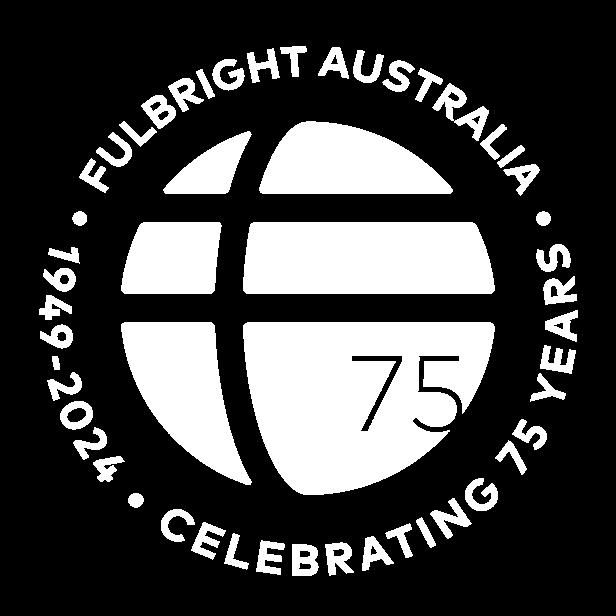
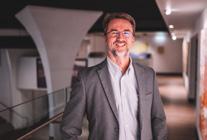
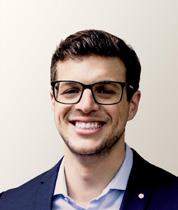
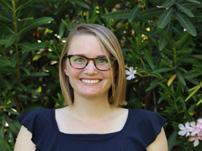
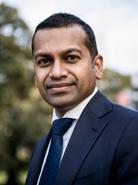
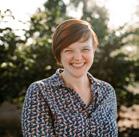
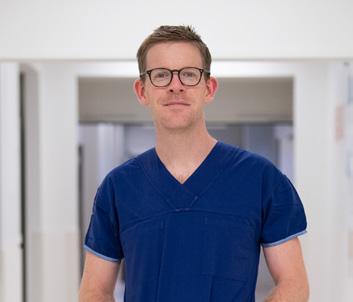
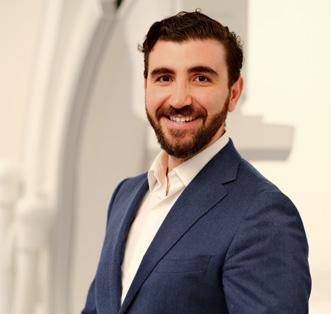
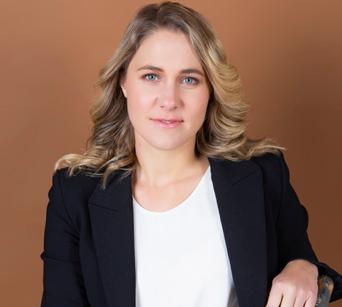
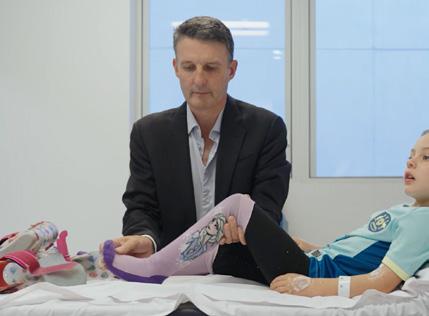
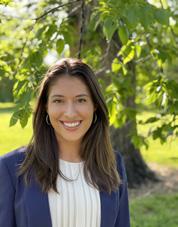
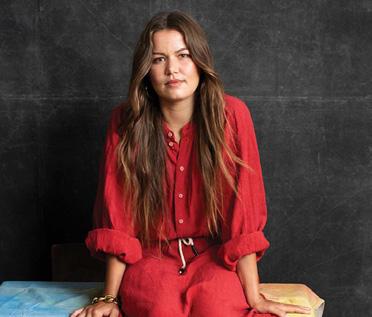
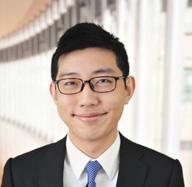
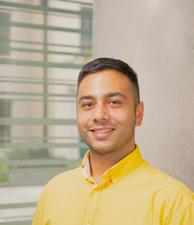
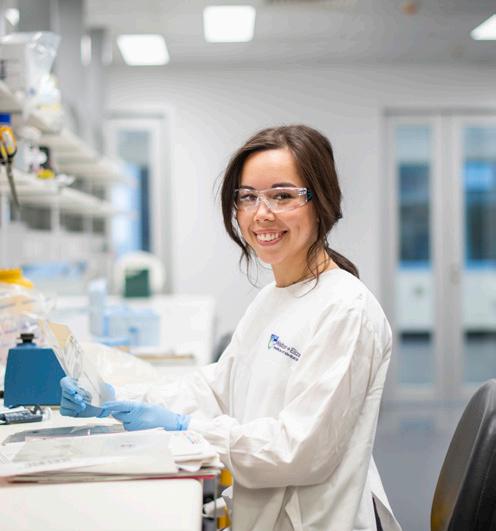
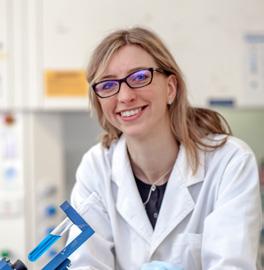

















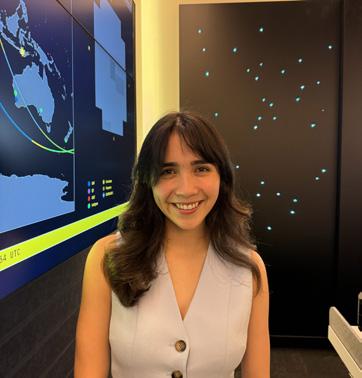
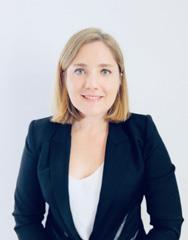
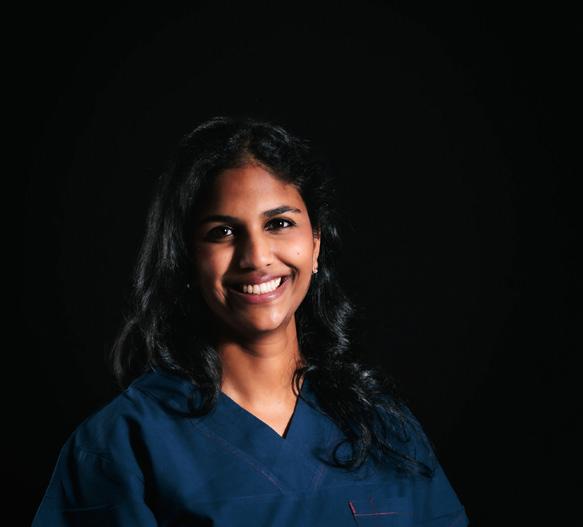
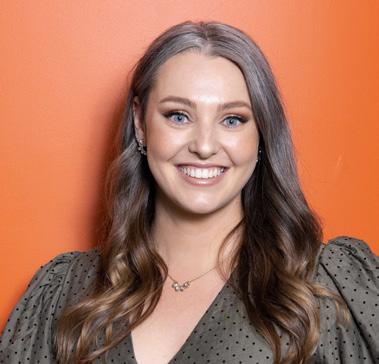
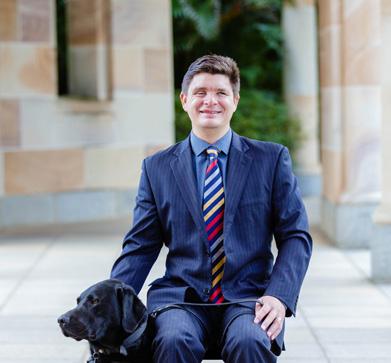
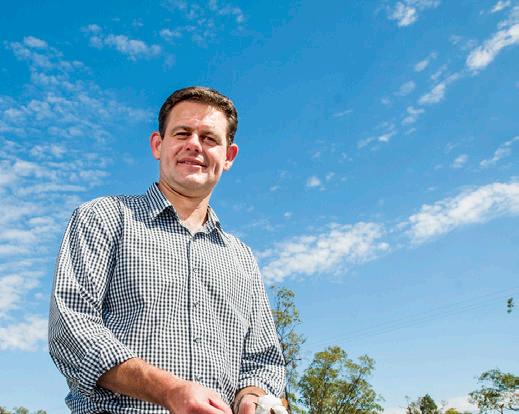
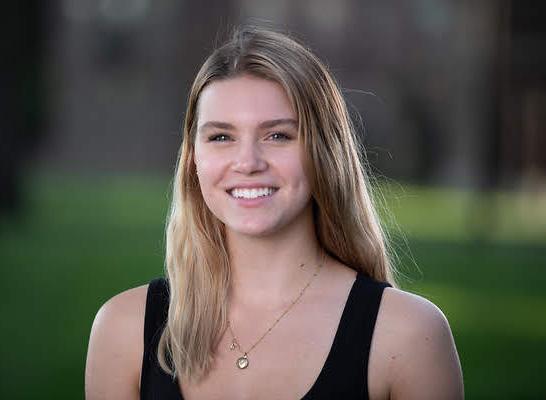
“I have thought of everything I can think of, and the one thing that gives me some hope is the ethos that underlies the educational exchange program. That ethos, in sum, is the belief that international relations can be improved, and the danger of war significantly reduced, by producing generations of leaders, especially in the big countries, who through the experience of educational exchange, will have acquired some feeling and understanding of other peoples’ cultures--why they operate as they do, why they think as they do, why they react as they do—and of the differences among these cultures. It is possible—not very probable, but possible—that people can find in themselves, through intercultural education, the ways and means of living together in peace. ....Man’s struggle to be rational about himself, about his relationship to his own society and to other peoples and nations involves a constant search for understanding among all peoples and all cultures--a search that can only be effective when learning is pursued on a worldwide basis.”
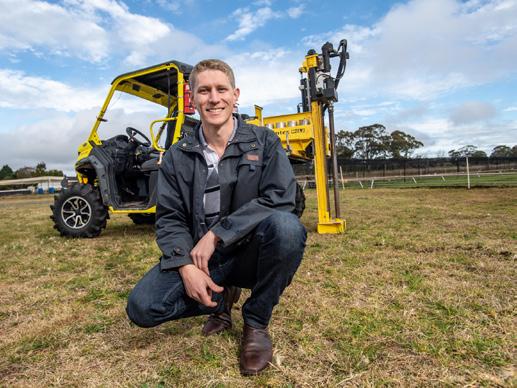
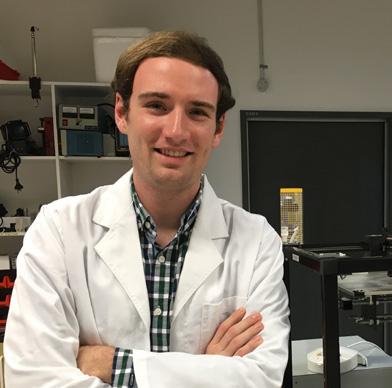
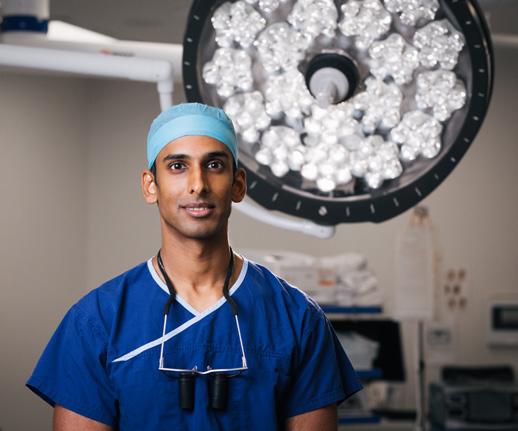
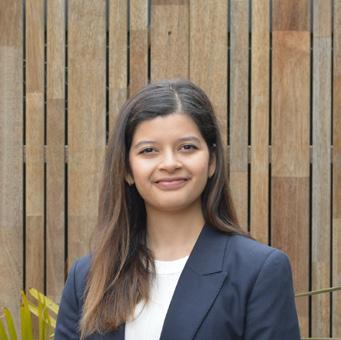
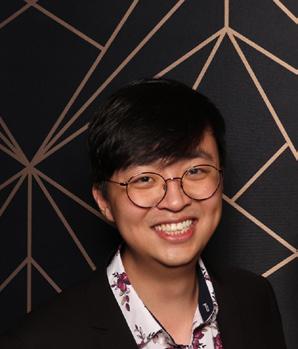
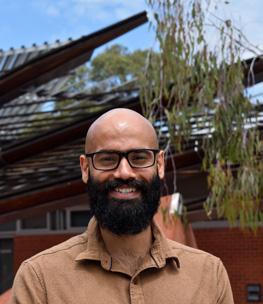
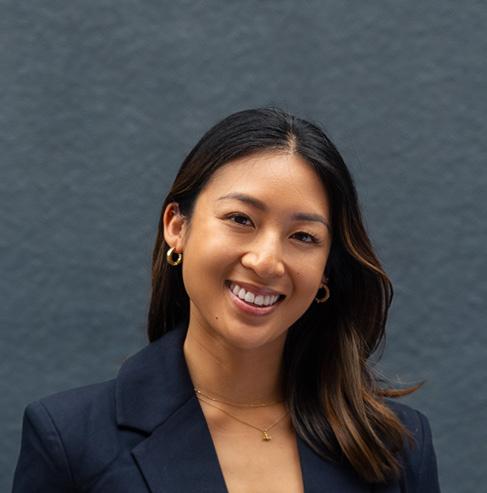
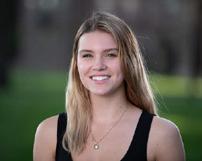

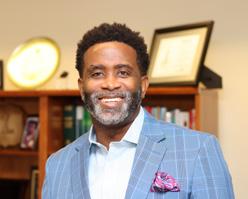
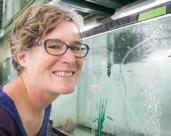
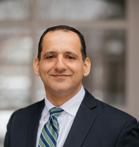

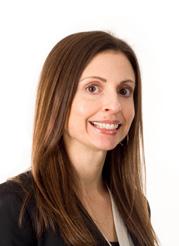
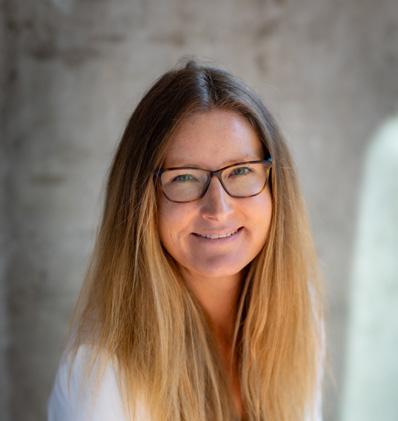
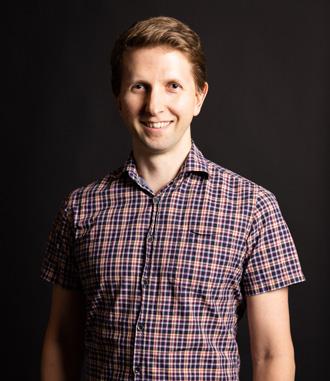
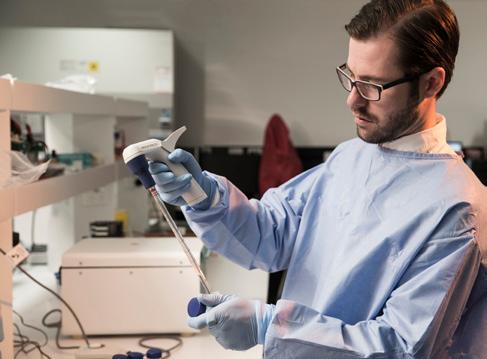

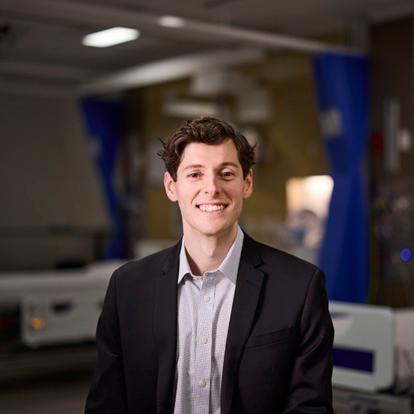

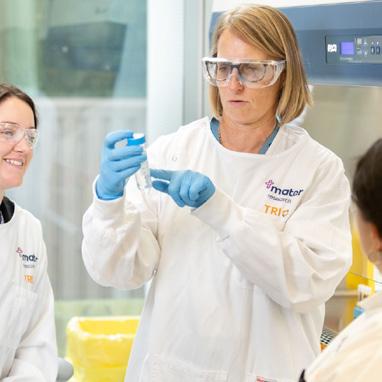
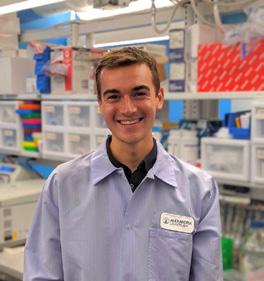
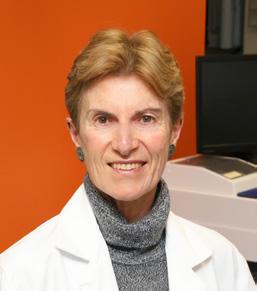
- Senator J. William Fulbright, The Fulbright Program: A History
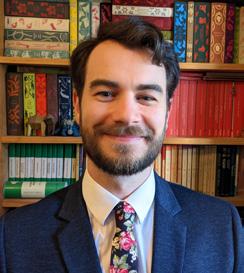
HONORARY CO-CHAIR (AUSTRALIA)
The Hon. AnthonyAlbanese Prime Minister of Australia
Professor Brian P. Schmidt AC FAA FRS (Chair)
Professor, Research School of Astronomy and Astrophysics
The Australian National University
Karen Sandercock
First Assistant Secretary
Department of Education, Australian Government
Professor Carolyn Evans Vice-Chancellor, Griffith University
Elizabeth Le Bas
Assistant Secretary, United States Branch, Department of Foreign Affairs and Trade, Australian Government
Dennis Richardson, AO,AC
Secretary (Ret.), Department of Defence
Australian Government
EXECUTIVE
Dr. Varuni Kulasekera Executive Director
Iroshani Rathnayake Administrative Assistant FINANCE
Brendan Greenwood
Finance and Business Manager
Darianna Rubio Assistant Accountant
HONORARY CO-CHAIR (UNITED STATES)
Her Excellency Caroline Kennedy
United States Ambassador to Australia
Jeff Anderson (Treasurer)
Minister–Counselor for Public Affairs
U.S. Embassy, Canberra
Christine Elder
Consul General
U.S. Consulate, Sydney
Sara James
Broadcast Journalist and Author
National Strategy Director, American Chamber of Commerce in Australia
Professor Harlene Hayne
Vice-Chancellor, Curtin University
David Hallberg
Artistic Director
The Australian Ballet
SCHOLARSHIPS PROGRAM
Tara Whitfield Partnerships Manager
Tamara Manson Program Manager
Kristine Kong Program Officer
Saki Kimura
Program Officer
COMMUNICATIONS
Alex Maclaurin
Communications and Marketing Manager
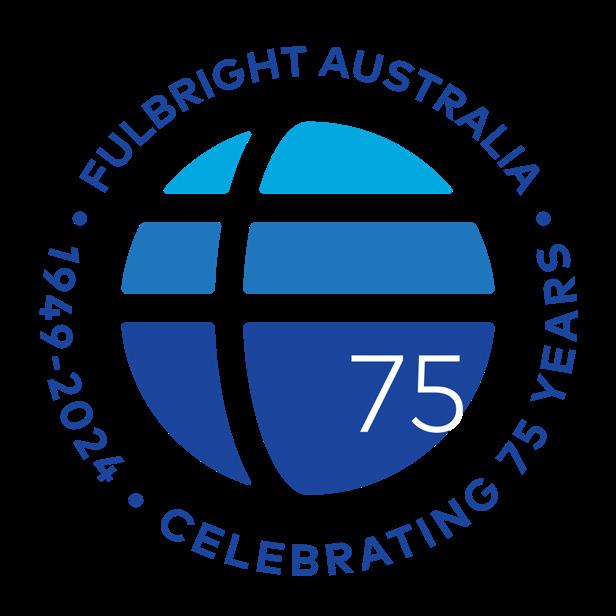
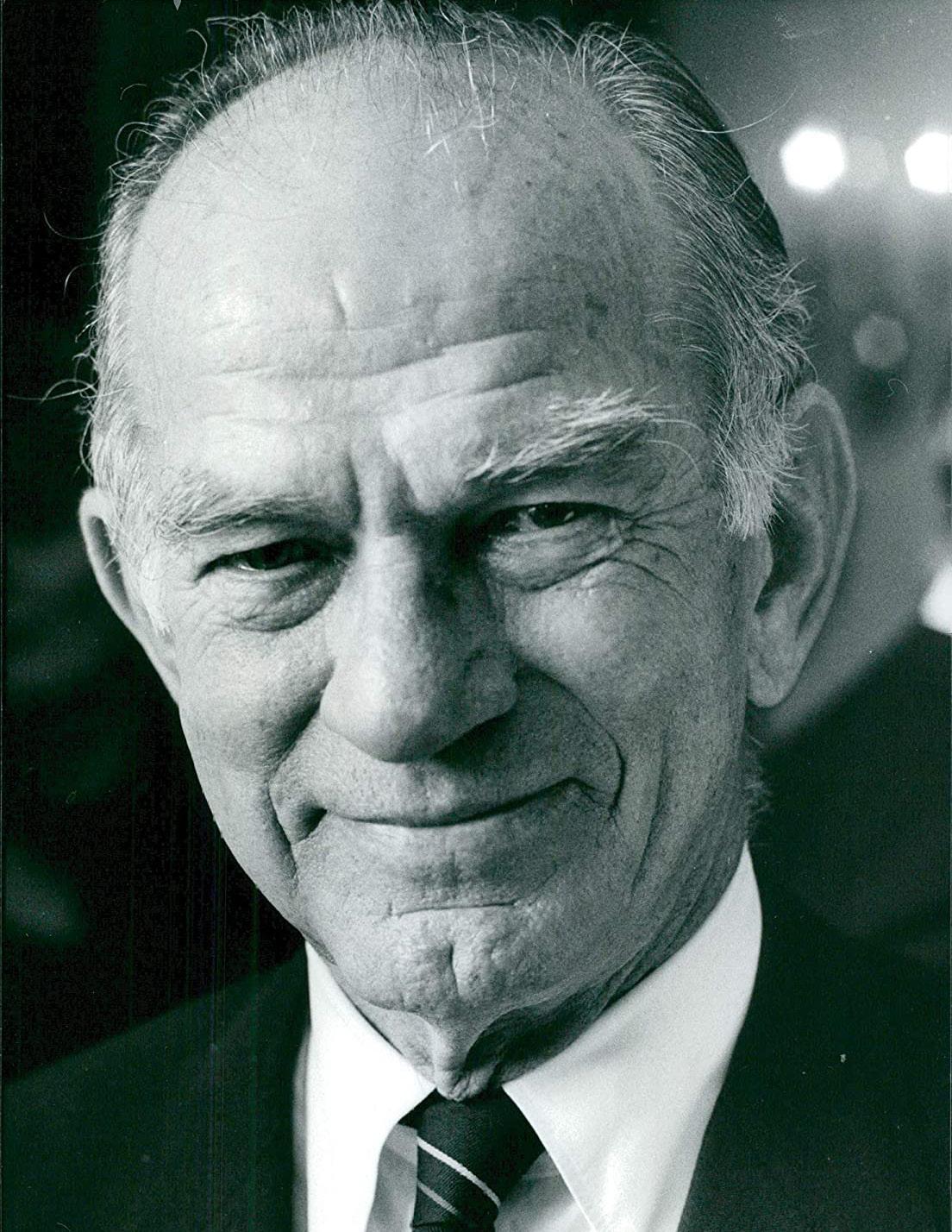
"The essence of intercultural education is the acquisition of empathy—the ability to see the world as others see it, and to allow for the possibility that others may see something we have failed to see, or may see it more accurately. The simple purpose of the exchange program … is to erode the culturally rooted mistrust that sets nations against one another. The exchange program is not a panacea but an avenue of hope.”
The Fulbright Program is the flagship foreign exchange scholarship program of the United States of America, aimed at increasing binational collaboration, cultural understanding, and the exchange of ideas.
Created in the aftermath of WWII, the program was established by Senator J. William Fulbright in 1946 with the ethos of turning ‘swords into ploughshares’, whereby credits from the sale of surplus U.S. war materials were used to fund academic exchanges between host countries and the U.S.
Since its establishment, the Fulbright Program has grown to become the largest educational exchange program in the world, operating in over 150 countries. In its seventy-nine-year history, more than 500,000 students, academics, and professionals have received Fulbright Scholarships to study, teach, or conduct research, and promote bilateral collaboration and cultural empathy.
Fulbright Australia encourages binational collaboration and knowledge-exchange between Australia and the United States through a program of competitive, merit-based scholarships. The Australian program is unique, thanks to a diverse list of sponsors from the higher education, not-for-profit, government, and private sectors. This generous funding enables students, professionals, and academics of all disciplines to study, conduct research, and collaborate on projects of significant global import.
Since its inception in 1949, Fulbright Australia has awarded over 5,000 scholarships to Australian and American candidates, promoting individual and institutional interconnectivity, fostering cultural empathy, and creating countless enduring bilateral linkages.
As the leading scholarship program between Australia and the United States, the Fulbright name is synonymous with academic excellence, thought leadership, and mutual understanding, and reflects the uniquely deep relationship between Australia and the United States.
• When people hear the term “Fulbright Scholar”, they will associate it with academic and professional excellence
• The term “Fulbright Scholar” will be recognised as shorthand for thought leadership.
• The Fulbright Scholarship Program will invoke a strong and productive relationship between Australia and the United States.
• Future leaders will see Fulbright as a pathway to excellence and recognition, a conduit for cultural exchange, and an opportunity to make a lasting contribution to the Australian-American relationship.
PROGRAM: Promote academic and professional excellence
PARTNERSHIPS: Foster strategic relationships to maximise sponsor opportunities
PROFILE: Advance Fulbright’s influence and impact
PERFORMANCE: Cultivate best practice
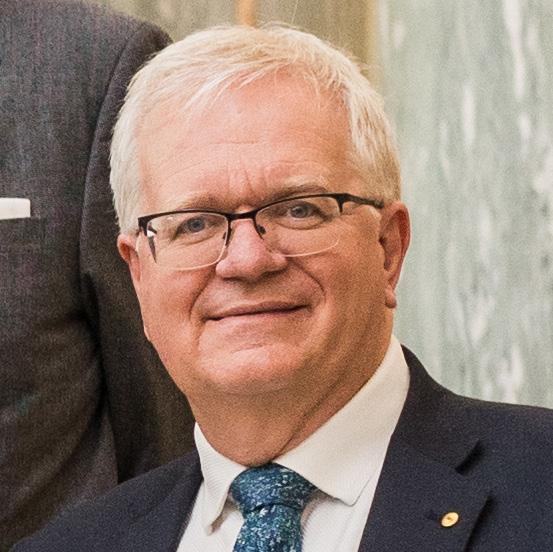
"Of all the joint ventures in which we might engage, the most productive, in my view, is educational exchange. I have always had great difficulty— since the initiation of the Fulbright scholarships in 1946—in trying to find the words that would persuasively explain that educational exchange is not merely one of those nice but marginal activities in which we engage in international affairs, but rather, from the standpoint of future world peace and order, probably the most important and potentially rewarding of our foreign-policy activities.”
- Sen. J.W. Fulbright
This conviction—that educational exchange is not peripheral, but essential—has guided the Fulbright Program for nearly eight decades. In our 75th year in Australia, it remains as urgent and relevant as ever.
This year has been a significant one for the Commission. We hosted the Fulbright East Asia Pacific Regional Conference in Sydney—the first time in 18 years that Australia has welcomed this international gathering. It was a timely reminder of the deep, shared commitment across our region to strengthening mutual understanding through research, dialogue, and collaboration.
At home, the Fulbright Australia Board has focused on ensuring that our foundation is as strong as our mission.
A NOTE FROM THE EXECUTIVE DIRECTOR
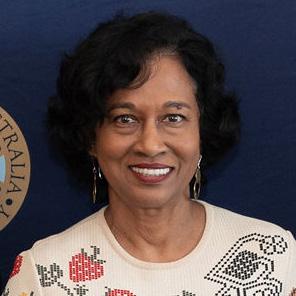
In 2024, the Fulbright Program in Australia celebrated a landmark year—one defined by renewal, recognition, and global connection.
As we marked the 75th anniversary of Fulbright in Australia, we took the opportunity not only to reflect on a rich legacy, but to reassert the value and urgency of international exchange in today’s world.
This milestone was made even more special by our hosting of the Fulbright East Asia Pacific Regional Conference in Sydney—the first time in 18 years that this important gathering has been held in Australia. Welcoming delegates from across the region, we were proud to showcase the strength and diversity of the Fulbright network, and to reaffirm Australia’s role as a leader in advancing academic diplomacy and regional cooperation.
Sound governance underpins every successful institution. In 2024, we undertook a comprehensive review of our governance structures to ensure they are fit for purpose—not only for today’s challenges, but for the decades to come. This included refining our approach to financial oversight, succession planning, and strategic decision-making, with an eye to long-term stability and impact.
Amid ongoing economic volatility, we have maintained a careful balance between ambition and sustainability. With prudent financial stewardship and continued support from our partners, we’ve preserved the scale and quality of our scholarships while adapting to rising costs. Our small but highly capable team—led by Executive Director Dr Varuni Kulasekera—continues to deliver a large, nationally visible program that remains one of the most active in the global Fulbright network.
I would like to thank my fellow Board members for their commitment and counsel throughout this milestone year. Their expertise will strengthen our work as we enter a new chapter.
To our university and government partners, sponsors, alumni, and supporters—thank you for believing in the transformative power of educational exchange. It is through this shared belief, and our collective investment in it, that Fulbright Australia continues to serve as a powerful instrument of peace, cooperation, and understanding.
Professor Brian P. Schmidt, AC, FAA, FRS Chair, Board of Directors Australian-American Fulbright Commission
Throughout the year, we have continued to build on this momentum. Our scholars and alumni are driving positive change across every field—from astrophysics and health, to public policy, education, and the arts. Their achievements reflect not only individual excellence but the power of collaboration across borders.
We’ve also taken important steps to expand our outreach and create new pathways for impact. These efforts are anchored in a renewed sense of purpose—one that honours Fulbright’s founding ideals while looking ahead to the future we want to help shape.
As we close this anniversary year, we do so with gratitude for all who have contributed to Fulbright’s journey—and with confidence in the generations to come who will carry it forward.
Dr Varuni Kulasekera Executive Director Fulbright Australia
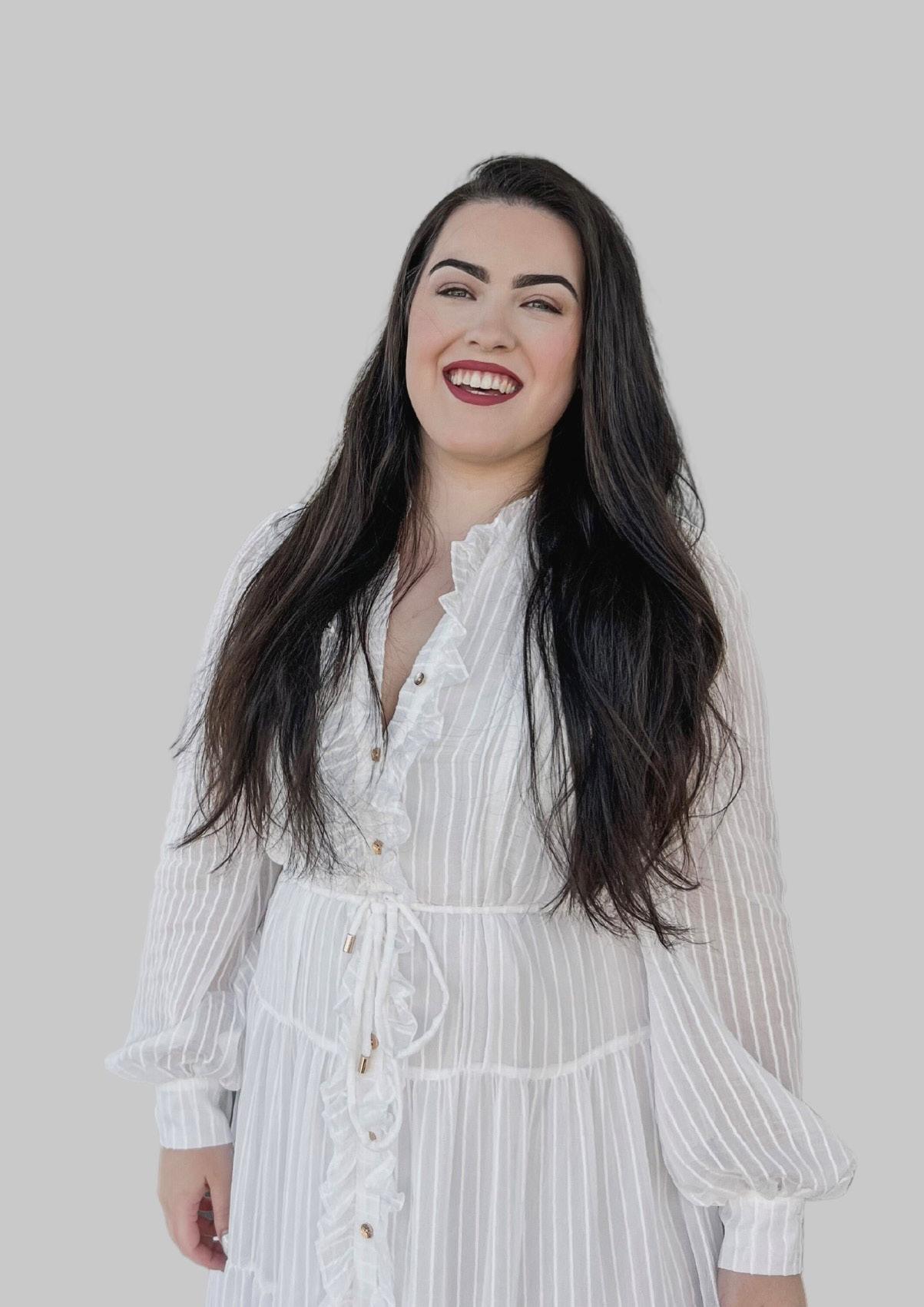
The Fulbright Program has an outstanding global reputation, owing to our high standard for applicants, our enduring history of social impact, and our 75-year commitment to facilitating life-changing exchange opportunities to scholars from all academic backgrounds. What sets Fulbright apart from other exchange programs is our commitment to facilitating academic and professional exchanges that specifically address issues of bilateral impact and foster meaningful collaboration between Australia and the U.S.
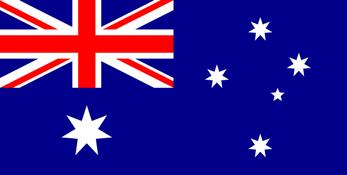
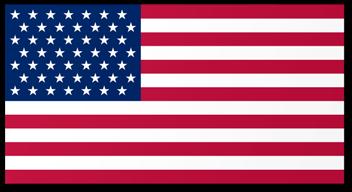
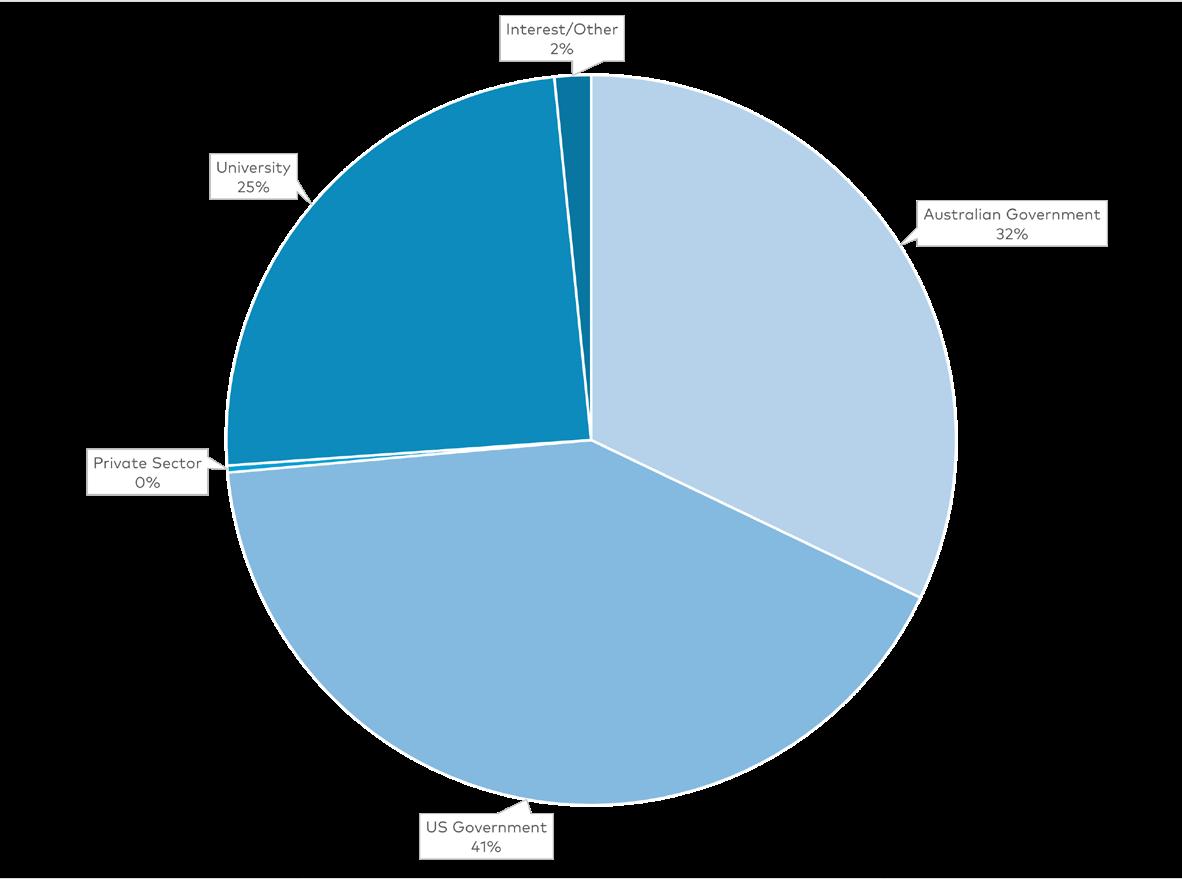
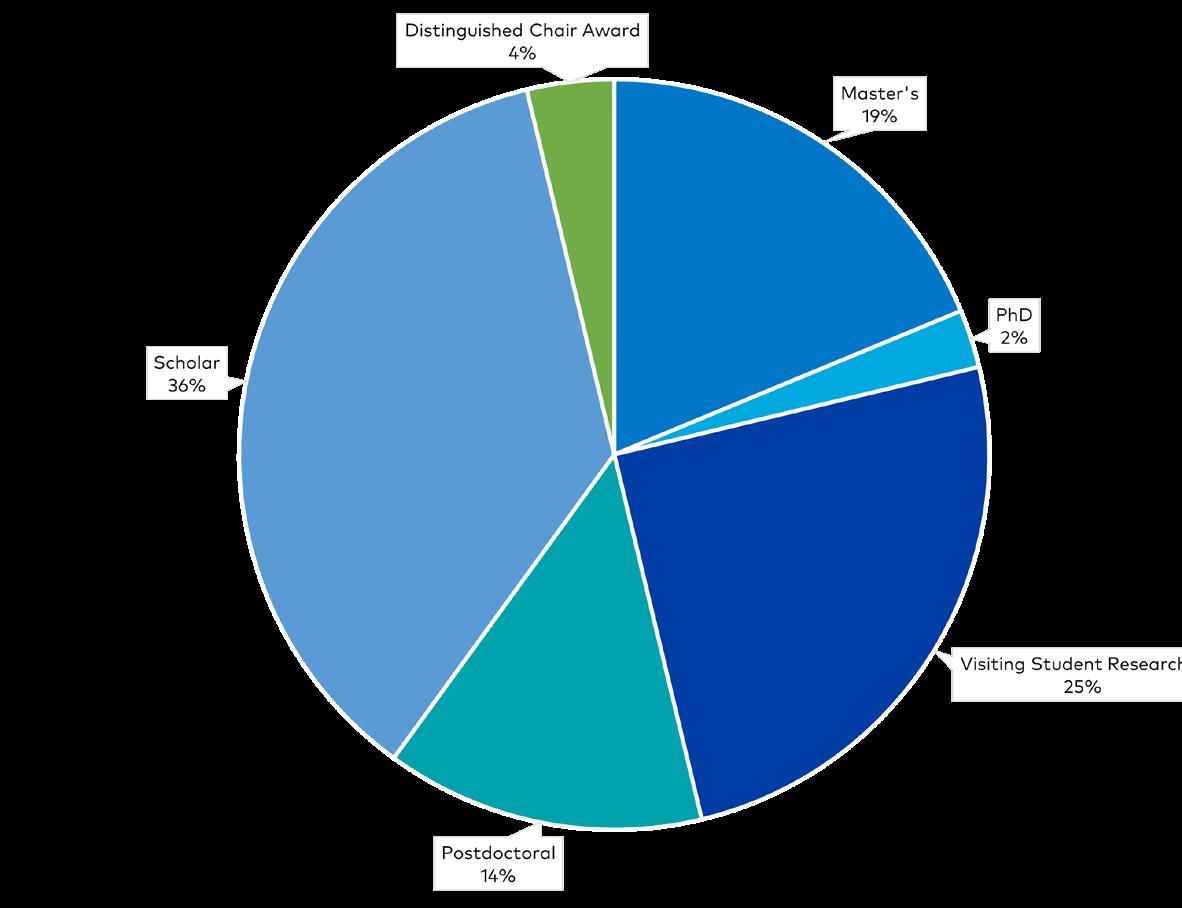


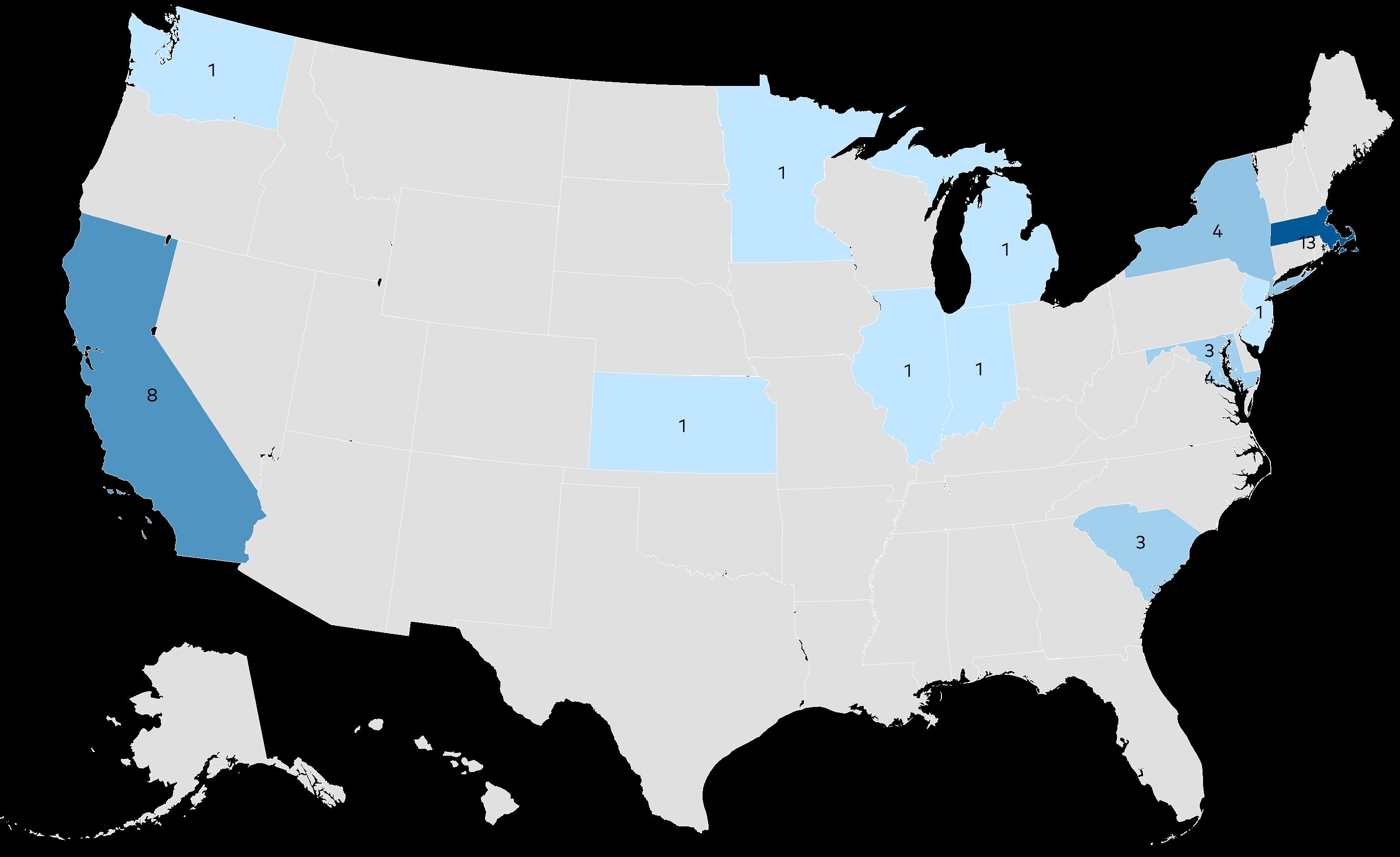
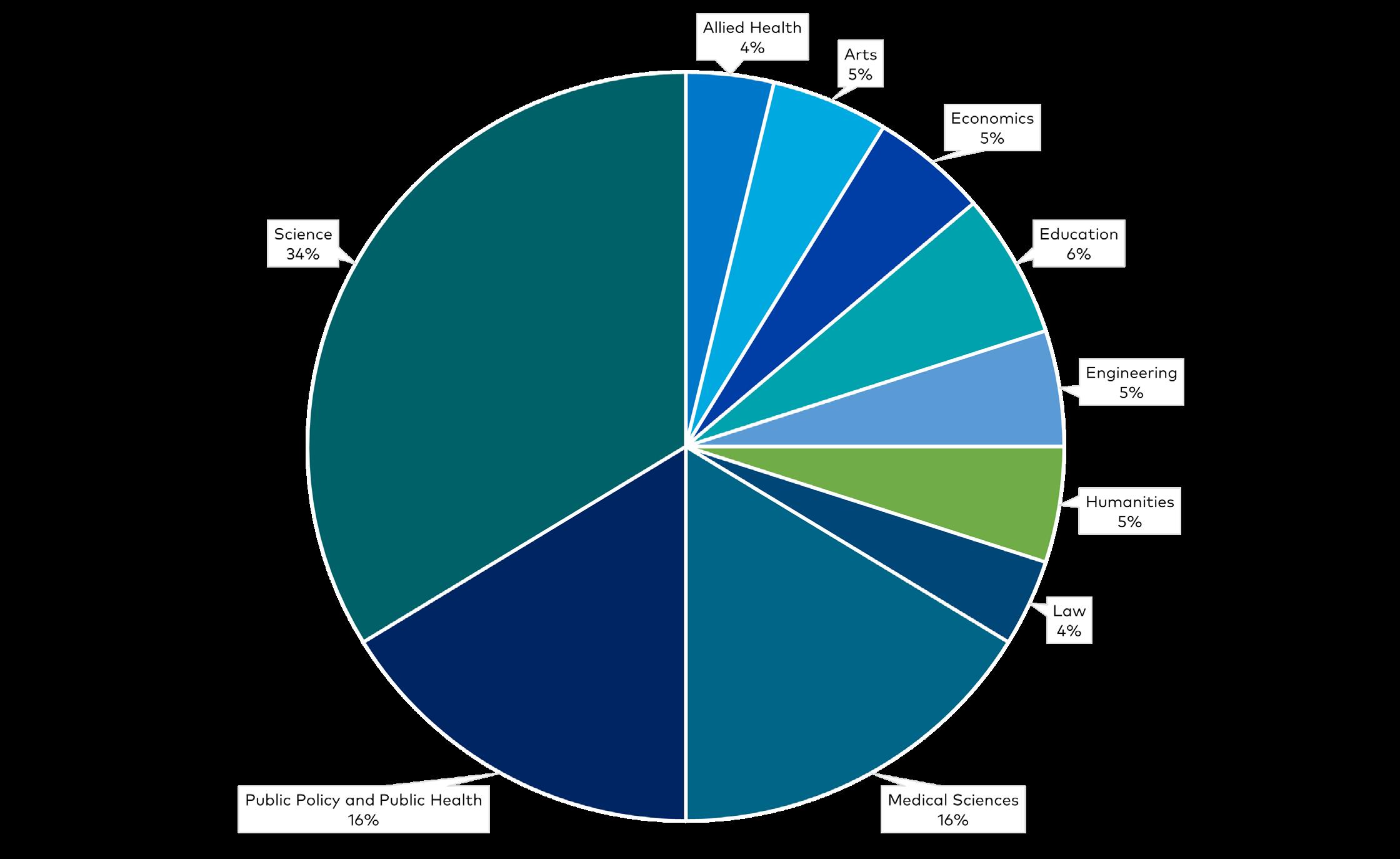



General Category (Degree)
Brendon O'Connor (Chair)
The United States Studies Centre
Julie McIntyre
The University of Newcastle
Ryan Naylor
The University of Sydney
Maria Lurighi
The University of Tasmania
General Category (Scholar)
Sharon Bell (Chair)
The Australian National University
Leon Barmuta
The University of Tasmania
Aiden Warren
RMIT University
STATE COMMITTEES
New South Wales
Lesley Hitchens (Chair)
University of Technology Sydney
Nigel Andrew
Southern Cross University
Sara Moron Polanco
The University of Sydney
Eden Robertson
UNSW
Northern Territory
Dominic Upton (Chair)
Charles Darwin University
Alan Anderson
Charles Darwin University
Joanna Minkiewicz
NT Department of Education
Alaric Fisher
NT Department of Environment
Kate Golebiowska
Charles Darwin University
Maryanne McKaige (State Secretary)
Queensland
Kaye Basford (Chair)
University of Queensland
David Klyne
University of Queensland
Brydie-Leigh Bartleet
Griffith University
Geoff Cockfield
University of Southern Queensland
Michelle Norman (State Secretary)
Queensland University of Technology
South Australia
Anton Middelberg (Chair)
The University of Adelaide
Jennifer McKay
University of South Australia
Rodrigo Praino
Flinders University
Benjamin Sparkes
The University of Adelaide
Rosie Wilkes (State Secretary)
The University of Adelaide
Tasmania
Richard Eccleston (Chair)
University of Tasmania
Vanessa Adams
University of Tasmania
Courtney Webber
Arts Tasmania
James Riggall
University of Tasmania
Trudi Steedman (State Secretary)
University of Tasmania
Victoria
Aiden Warren (Chair)
RMIT University
Yee-Fui Ng
Monash University
Matthew Clarke
Deakin University
Swee Mak
RMIT University
Kelly Nichol (State Secretary)
Western Australia
Simon McKirdy (Chair)
Murdoch University
Flavia Di Pietro
Curtin University
Wesley Moss
University of Western Australia
Deborah Leavitt
WA Department of Education
Julie Ann Pooley
Edith Cowan University
Allison Hymus (State Secretary)
Murdoch University
SPONSORED AWARD COMMITTEES
Fulbright Future Scholarship (funded by The Kinghorn Foundation) - Visiting Student Researchers
Michael Fahey (Chair)
Monash University
Prasanga Samarasinghe
The Australian National University
Diane Fatkin
Victor Chang Cardiac Research Institute
Fulbright Future Scholarship (funded by The Kinghorn Foundation) - PhD
Michael Breadmore (Chair)
University of Tasmania
Ranjana Srivastava
Monash Health
Julian Berengut
UNSW
Todd Oliynyk
Monash University
Fulbright Future Scholarship (funded by The Kinghorn Foundation) - Postdoctoral
Andrew Young (Chair)
CSIRO
Menna Jones
University of Tasmania
Peter Stanwell
The University of Newcastle
Fatemeh Salehi
Macquarie University
Fulbright Future Scholarship (funded by The Kinghorn Foundation) - Scholar
Nigel Andrew (Chair)
Southern Cross University
Dominick Ng
Google Australia
Andrea O'Connor
The University of Melbourne
Sarah Johnson
The University of Newcastle
Fulbright Distinguished Chair in Agriculture and Life Sciences (funded by Kansas State University)
John Leslie (Chair)
Kansas State University
Garry Myers
University of Technology Sydney
Simon McKirdy
Murdoch University
Fulbright Professional Coral Sea Scholarship (Business/Industry)
April Palmerlee (Chair)
American Chamber of Commerce in Australia
Vinita Godinho
Financial Resilience Australia
Larry Lopez
Australian Venture Consultants
Fulbright Professional Scholarship in AustralianAmerican Alliance Studies (funded by the Department of Foreign Affairs and Trade)
Clare O'Neill (Chair)
Australian Army
Mara Bird
U.S. Embassy, Canberra
David Butler
Department of Foreign Affairs and Trade
Fulbright Postdoctoral Scholarship (funded by Monash University)
Matthew Gillespie (Chair)
Monash University
Nathan Eva Monash University
Michael Fahey Monash University
Fulbright Anne Wexler Scholarship in Public Policy (funded by the Department of Education)
April Palmerlee (Chair)
American Chamber of Commerce in Australia
Heather Kettle
Department of Education
John Rees
University of Technology Sydney
William Frangia
Fulbright Alumnus
Fulbright Postdoctoral (Vice-Chancellor’s Fellow) Scholarship (funded by RMIT University)
Swee Mak (Chair)
RMIT University
Christine Grove
RMIT University
Shruti Nirantar
RMIT University
Aiden Warren
RMIT University
Fulbright Indigenous Scholarship (funded by the National Indigenous Australians Agency)
Michael Donovan (Chair)
La Trobe University
Maggie Walter
University of Tasmania
Adam Davids CareerTrackers
Fulbright Anne Wexler Scholarship in VET (funded by the Department of Education)
Louise Robinson (Chair)
Swinburne University
Heather Kettle
Department of Education
Anitza Geneve
TAFE QLD
Fulbright Scholar Award (funded by Florida Polytech)
Mustapha Achoubane (Chair)
Florida Polytechnic University
Alex Frino
University of Notre Dame Australia
Fulbright Postgraduate Scholarship (co-funded by Rice University)
Joey Talghader (Chair)
University of Minnesota
Julie McIntyre
The University of Newcastle
Seiichi Matsuda
Rice University
GENERAL CATEGORY
Student - Arts/Journalism
Maria Lurighi
University of Tasmania
Anna Raupach
The Australian National University
Student - Biology
Nigel Andrew
Southern Cross University
Lynea Witczak Oldfather
University of California, Davis
Paul Gribben
UNSW
Student - Engineering/Aerospace
Prasanga Samarasinghe
The Australian National University
Harry Robertson
The University of Sydney
Aaron Pereira
The University of Adelaide
Student - Medical Sciences
Jamie Bellinge
The University of Western Australia
Aria Ahmed-Cox
UNSW
Student - Psychology/Sociology
Sibylle Schwab
University of Wollongong
Andrew Page
Western Sydney University
Student - Environmental Sciences
Vanessa Adams
University of Tasmania
Salvador Zarco-Perello
Murdoch University
Diane Kelly
University of Massachusetts
Lachlan Jones
University of Queensland
General Category (Postdoctoral)
Brydie-Leigh Bartleet (Chair)
Griffith University
Donna Hancox
Queensland University of Technology
James Riggall
University of Tasmania
General Category (Scholar)
Brydie-Leigh Bartleet
Griffith University
Jolyon Ford
The Australian National University
SPONSORED AWARD COMMITTEES
Fulbright Don DeBats Distinguished Chair in Politics and Public Policy (funded by Flinders University)
Rodrigo Praino
Flinders University
Vincent Bulone
Flinders University
Emma Thomas
Flinders University
Fulbright Distinguished Chair in Cyber Information Influence (funded by the University of Adelaide)
Michael Webb
The University of Adelaide
Justin Fidock
Defence Science and Technology
Clare Sullivan
The University of Adelaide
Fulbright Distinguished Chair in Science, Technology, and Innovation (funded by CSIRO)
Melissa Straffon
CSIRO
Madison Paton
Cerebral Palsy Alliance
Fulbright Distinguished Chair in Entrepreneurship and Innovation (funded by RMIT University)
Swee Mak
RMIT University
Anne-Laure Mention
RMIT University
Lisa Given
RMIT University
Fulbright Future Scholarship (funded by The Kinghorn Foundation)
Veena Sahajwalla
UNSW
Iain Suthers
UNSW
Robert Shellie
University of Tasmania
Fulbright Scholar Award (funded by University of Canberra)
Paul Magee
University of Canberra
Jennifer Albert
University of Canberra
Fulbright Scholar Award (funded by University of Technology Sydney)
Garry Myers
University of Technology Sydney
John Rees
University of Technology Sydney
Fulbright Scholar Award (funded by University of Wollongong)
Paul Di Pietro
University of Wollongong
Jennifer Baker
University of Wollongong
Fulbright Scholar Award (funded by the Regional Universities Network of Australia)
Alec Webb
Regional Universities Network of Australia
Courtney Meyers
Texas Tech University
Ross Young University of the Sunshine Coast
John Bell University of Southern Queensland
Fulbright Scholar Award (funded by Curtin University)
Flavia Di Pietro
Curtin University
Gretchen Benedix
Curtin University
Matthew Becker
California State University Long Beach
Fulbright Anne Wexler Scholarship in Public Policy (funded by the Department of Education)
Dayle Stanley
The Australian National University
Vinuri Dissanayake
Fulbright Alumna
Jenny Christmass
Department of Education
Fulbright Postdoctoral Scholarship (funded by The University of Newcastle)
Joey Pegler
The University of Newcastle
Julie McIntyre
The University of Newcastle
Juanita Todd
The University of Newcastle
Fulbright Postdoctoral Scholarship (funded by Deakin University)
Matthew Clarke
Deakin University
Amanda Keddie
Deakin University
Thomas Kelemen
Kansas State University
Fulbright Postgraduate Scholarship (funded by Western Sydney University)
Michael Baker
Western Sydney University
Thuy Dinh
Western Sydney University
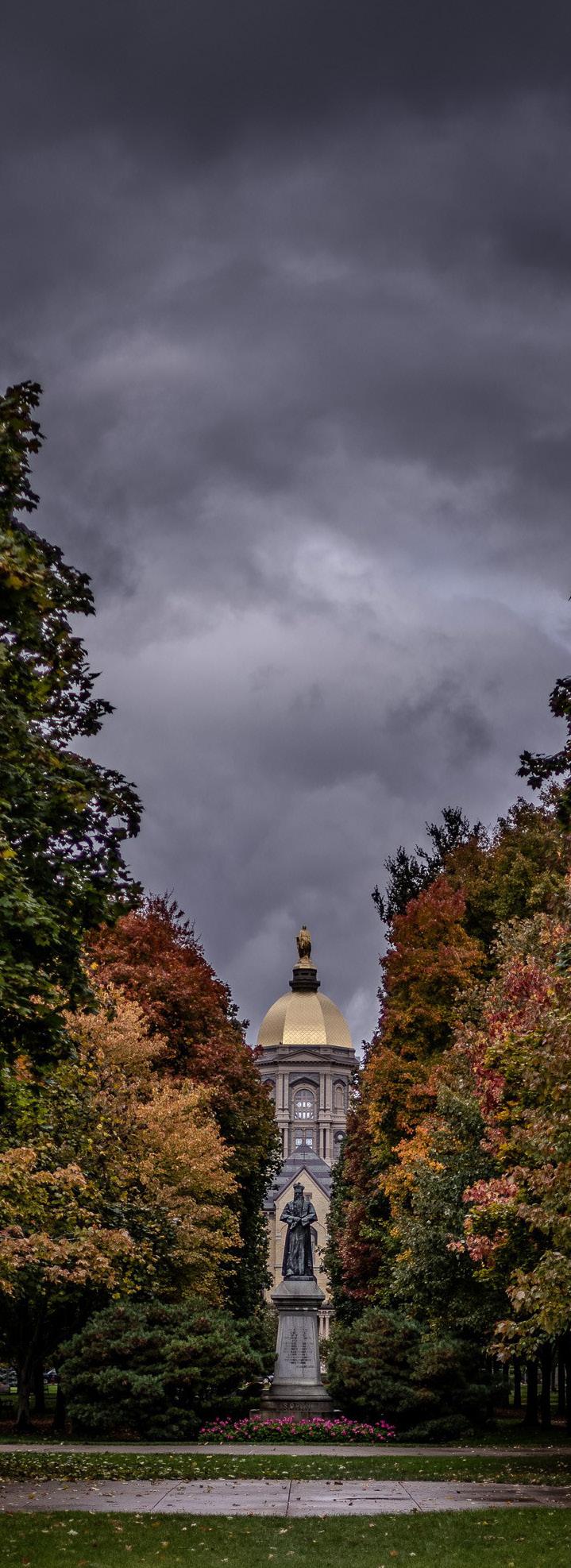
The Fulbright Distinguished Chair Scholarships are the most prestigious awards within the Fulbright Visiting Scholar Program. All awardees are recognised as eminent figures in their fields, with world-leading research and professional credentials. The Australian-American Fulbright Commission currently administers four of the approximately forty Distinguished Chair Scholarships on offer around the world.

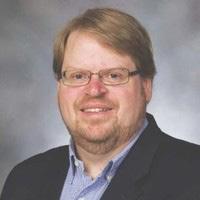
PROFESSOR CHRIS BRONK PHD
Fulbright Distinguished Chair in Cyber Information Influence
Funded by The University of Adelaide
Home: University of Houston
Host: The University of Adelaide
Field: Politics of Information

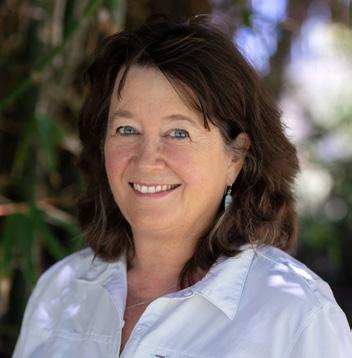
PPROFESSOR KARIN OLSON HOAL
Fulbright Distinguished Chair in Science, Technology, and Innovation
Funded by CSIRO
Home: Cornell University
Host: CSIRO
Field: Geology and Mineral Resources

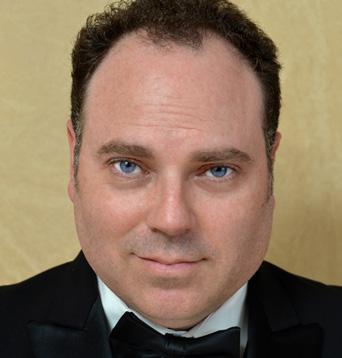
PROFESSOR AARON FELLMETH
Fulbright Distinguished Chair in Applied Public Policy (Democratic Resilience)
Funded by Flinders University
Home: Arizona State University
Host: Flinders University
Field: International Law

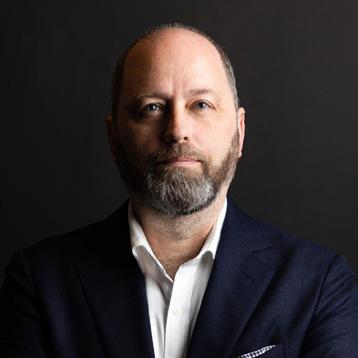
PROFESSOR GARRY MYERS FASM FRSB
Fulbright Distinguished Chair in Agriculture and Life Sciences
Funded by Kansas State University
Home: University of Technology Sydney
Host: Kansas State University
Field: RNA Vaccines in Agriculture
The purpose of my Fulbright project was to collaboratively explore opportunities to use managed aquifer recharge (MAR) and water banking in Australia and the US to increase water security in the face of increasing water scarcity.
My primary collaboration involved working with Dr. Declan Page and my host institution, CSIRO, to examine the current state of MAR and water banking in Australia and to identify how the experience, success, and scale of operations in the US—particularly in California—could be leveraged to address concerns held by stakeholders, water managers, land councils, and policymakers in Australia.
One key issue identified by Dr. Page and colleagues is that while numerous sites around Australia are amenable to MAR and water banking, adoption and implementation of these practices as tools to enhance water security and resilience to drought have been limited.
In partnership with Dr. Page and Dr. Michele Akeroyd (Deputy Director, Drought Resilience Mission), along with Dr. Constantin Seidl and Professor Sarah Wheeler (University of Adelaide), and the Goulburn Murray Climate Alliance, we developed and delivered three workshops in early April in Victoria (Shepparton, Wangaratta, and Echuca) to explore MAR and water banking opportunities. These workshops, held under the banner of the Integrated Water Management Forum, brought together multiple stakeholders, including representatives from the Rural City of Wangaratta, Campaspe Shire Council, Murrindindi Shire Council, Goulburn Broken Catchment Management Authority, Goulburn Murray Water, North East Water, and Goulburn Valley Water. I presented at each workshop and participated in in-depth discussions with attendees. We are now convening a debrief meeting to determine next steps for potential pilot projects in these regions.
A second major outcome was a full-day workshop I co-developed at the University of Adelaide, where I also presented on California’s experience with MAR and water banking. This session included seniorlevel water and policy managers from New South Wales, Northern Territory, South Australia, Western Australia, Queensland, and Victoria, and focused on sharing experiences, successes, and challenges in implementing MAR. Follow-up meetings are being scheduled, with the aim of developing best-practice national guidelines for MAR policy, legislation, and regulation, supported by examples and templates.
2023 Fulbright Distinguished Chair in Science, Technology and Innovation, Funded by CSIRO
Additionally, we hope to work with participants to develop a national vision for MAR and water banking in Australia, which will include:
(i) an economic assessment of MAR opportunities nationally—for both urban and irrigation water supply;
(ii) a case for funded processes in each state to articulate their own vision for MAR in highly prospective areas; and
(iii) a detailed assessment of the economic and environmental requirements for implementation.
Beyond these key outcomes, I contributed to additional projects including:
(i) two grant proposals submitted to CSIRO’s Request for Proposals (RFP) under their Drought Resilience Mission Funds; and
(ii) a proposal to the Limestone Coast Landscape Board to evaluate opportunities for a more robust water market.
I am also collaborating on three research projects at the University of Adelaide, and have accepted an invitation to serve on the Advisory Board for the One Basin CRC, managed by Flinders University. This Centre holds a 10-year grant to investigate water banking as a strategy for enhanced drought resilience in Australia.
Finally, I gave seminars to the South Australia Chapter of the Australasian Agricultural and Resource Economics Society (AARES) and the University of Adelaide; the Water Security Group at CSIRO; the AARES Annual Meetings; and a graduatelevel public policy course at the University of Adelaide. I also provided a seminar to Year 10 students from Glenunga International High School and served as a mentor for the CSIRO Drought Mission Forum Workshop.
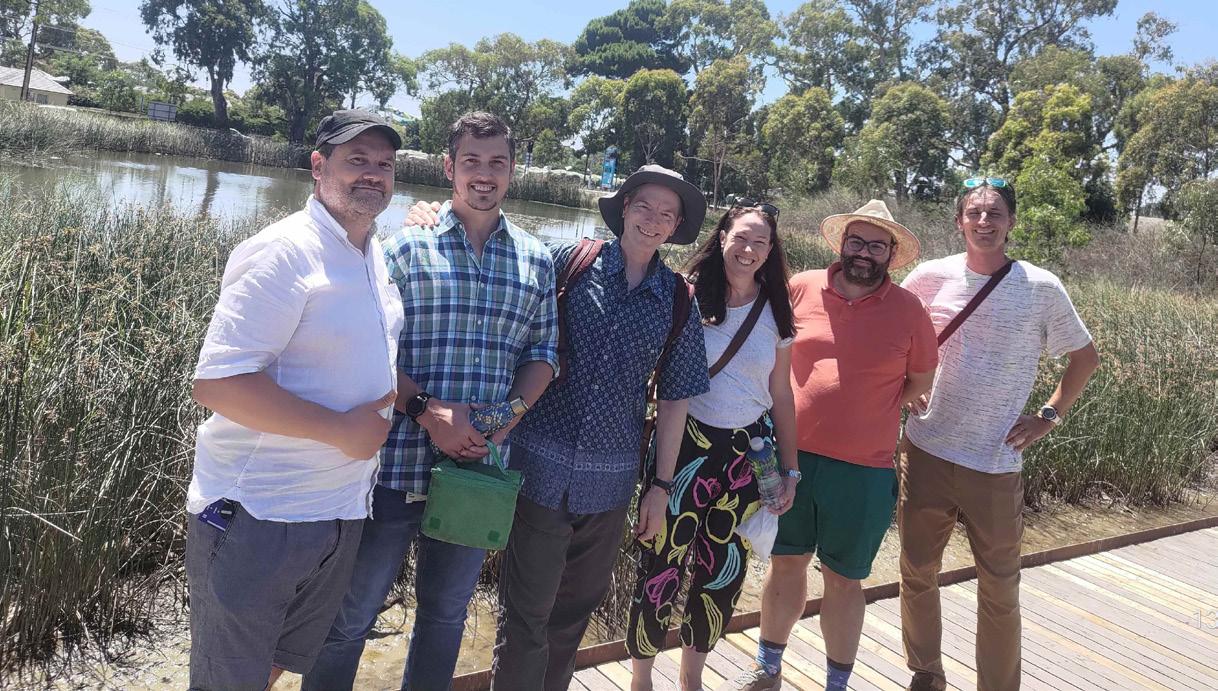
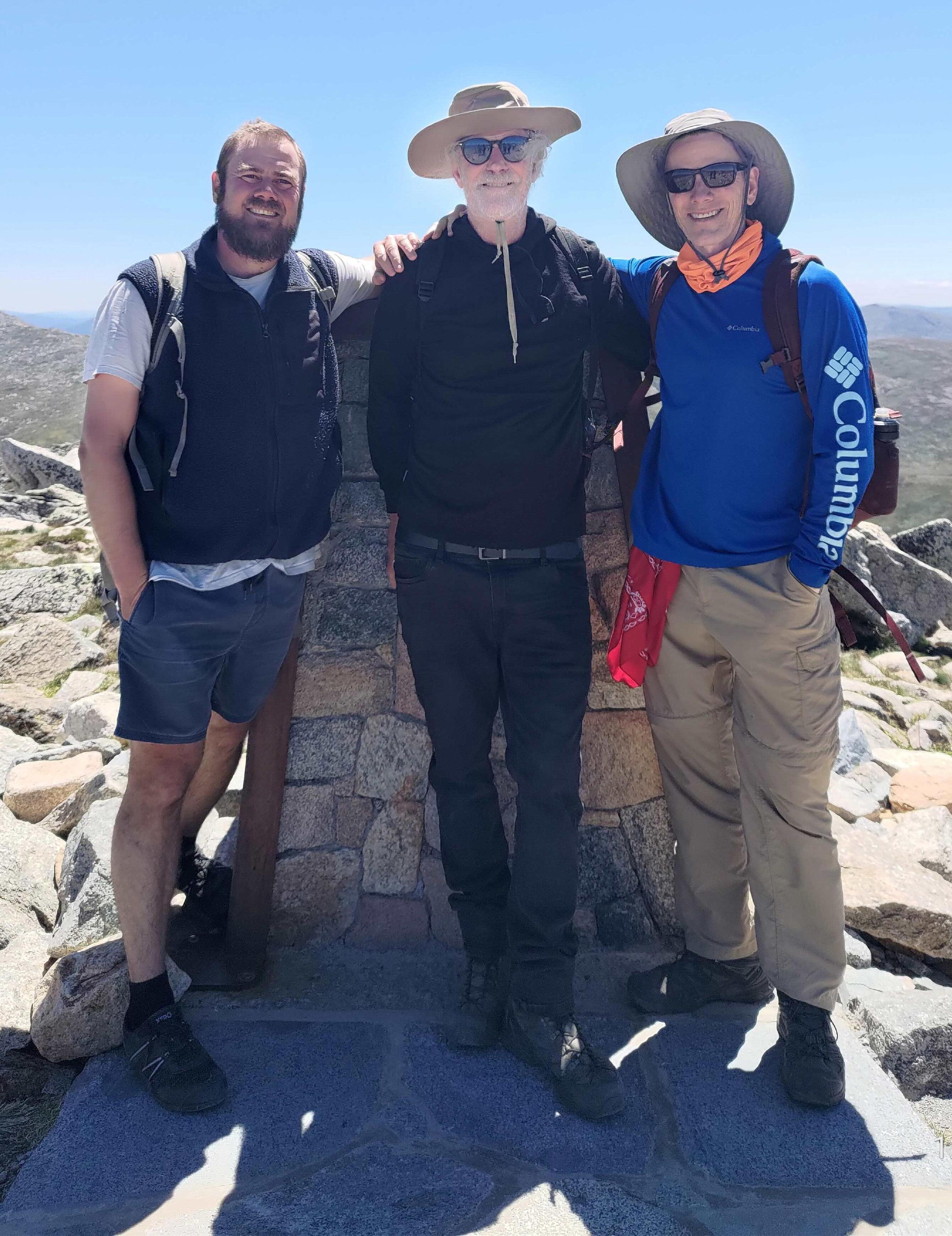
Thanks to the exceptional generosity of The Kinghorn Foundation, the Fulbright Future Scholarships now represent more than half of the awards offered by the Australian-American Fulbright Commission.
Now available across all scholarship categories for Australian and American applicants, these awards are available to those who propose to undertake study or research in areas that will positively impact the lives, livelihoods, well-being and prosperity of Australians.
Fulbright Future projects aim to advance cutting edge applied science, kick start business collaborations that foster job creation or further the development of impact-driven emergent technologies.

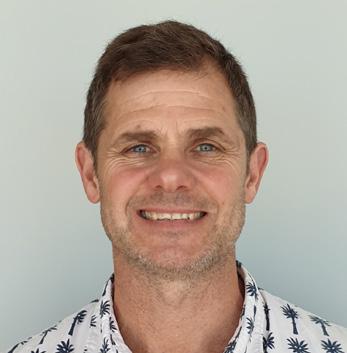
PROFESSOR PAUL GRIBBEN
Fulbright Future Scholarship
Funded by The Kinghorn Foundation
Home: University of New South Wales
Host: Northeastern University
Field: Marine Ecology

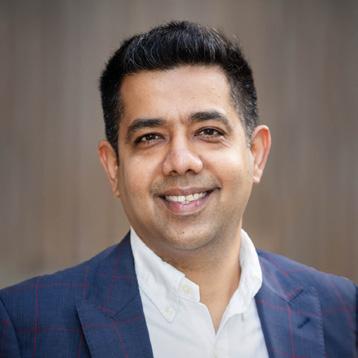
ASSOCIATE PROFESSOR AMIRALI POPAT
Fulbright Future Scholarship
Funded by The Kinghorn Foundation
Home: The University of Queensland
Host: Harvard University
Field: Nanomedicine
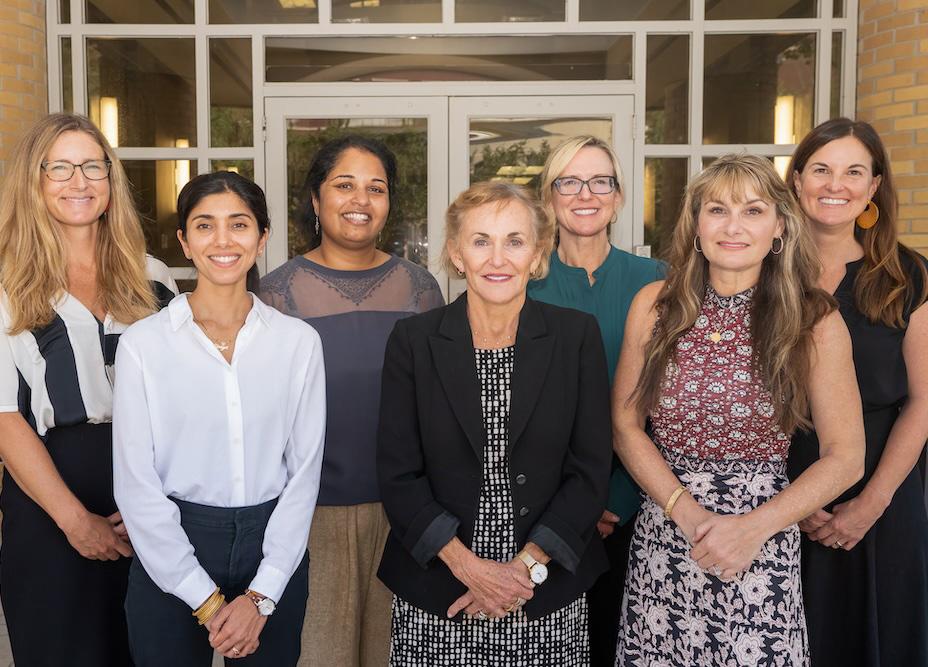

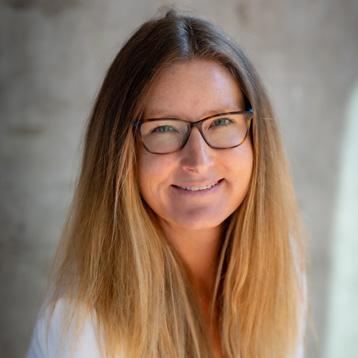
ASSOCIATE PROFESSOR LOUISE MEWTON
Fulbright Future Scholarship
Funded by The Kinghorn Foundation
Home: The University of Sydney
Host: Medical University of South Carolina
Field: Medical Sciences
2024 Fulbright Future Scholar Funded by the Kinghorn Foundation
The research aim of my project was to conduct a series of studies focused on improving our understanding of the impacts of prenatal alcohol exposure on:
• a) neurodevelopmental outcomes,
• b) psychological and behavioural outcomes, and
• c) substance use outcomes across the critical adolescent period.
In collaboration with the team at my host institution, I have completed the analyses for these studies and expect to publish the findings in highimpact, peer-reviewed journals soon.
My strategic aim was to gain in-depth knowledge of recruitment, assessment, and data management procedures for the landmark Adolescent Brain Cognitive Development (ABCD) Study. I achieved this by attending fortnightly meetings with the site coordinators and research team at the Medical University of South Carolina (MUSC), participating in an ABCD assessment as a mock participant, and establishing collaborations with Principal Investigators at other ABCD sites.

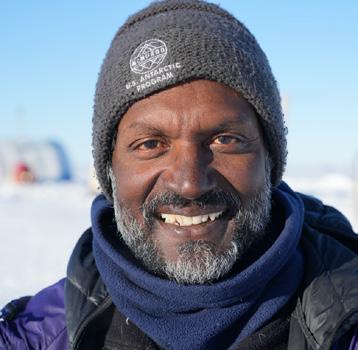
PROFESSOR SRIDHAR ANANDAKRISHNAN
Fulbright Future Scholarship
Funded by The Kinghorn Foundation
Home: Pennsylvania State University
Host: University of Tasmania
Field: Glaciology

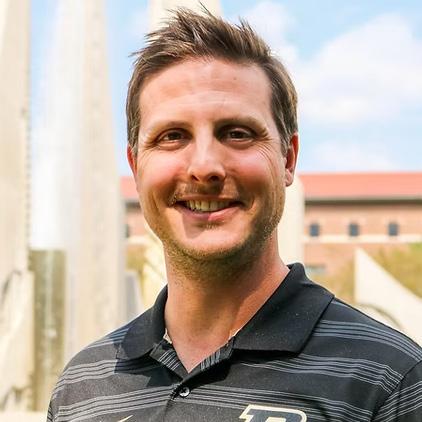
PROFESSOR DANIEL FLAHERTY
Fulbright Future Scholarship
Funded by The Kinghorn Foundation
Home: Purdue University
Host: University of New South Wales
Field: Antibiotic Drug Discovery
A key opportunity was attending the annual ABCD meeting in San Diego in November, where I initiated a collaboration with the site investigators at the University of California San Diego (UCSD), which hosts the ABCD Study Coordinating Centre and Data Analytics Centre. At this meeting, I was also able to meet investigators from all 29 ABCD sites across the US, as well as funding partners from the National Institutes of Health. These experiences have positioned me to advise on how Australian researchers could initiate a longitudinal, populationrepresentative study of adolescent neurobiological, psychological, and behavioural development— an urgently needed initiative to inform policies, interventions, and programs that support optimal adolescent development in the Australian context.
My professional development aim was to strengthen my technical expertise in neuroimaging by leveraging the considerable expertise and state-of-the-art facilities available at MUSC. I achieved this by observing neuroimaging sessions, including the full ABCD neuroimaging protocol, at MUSC’s Centre for Biomedical Imaging.


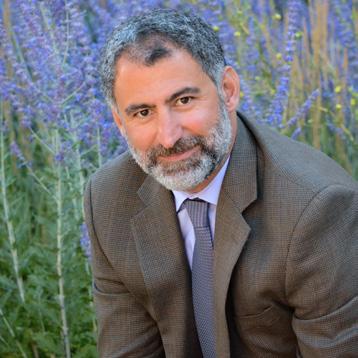
PROFESSOR SAMAN ARYANA
Fulbright Future Scholarship
Funded by The Kinghorn Foundation
Home: University of Wyoming
Host: University of New South Wales
Field: Energy and Geosciences


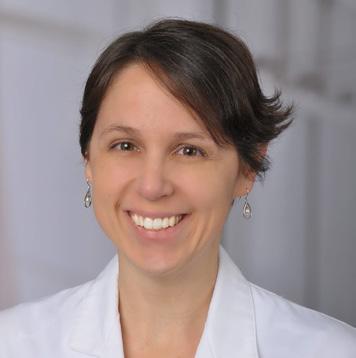
DR. LAUREN SOUTHERLAND
Fulbright Future Scholarship
Funded by The Kinghorn Foundation
Home: The Ohio State University
Host: Australian Commission on Safety and Quality in Healthcare
Field: Medicine
I also underwent the full neuroimaging procedure myself, which was an invaluable exercise in gaining the participant’s perspective in such studies. As a result, I am now confident in my technical capacity to advise on the incorporation of neuroimaging into the extensive portfolio of epidemiological and clinical trial research conducted at my home research centre. This represents an important new research direction for the centre and aligns with national and international priorities to understand and improve brain health.
Professionally, one of the most exciting aspects of my Fulbright experience was the opportunity to present my work to international audiences. During my exchange, I delivered eight presentations to international experts, including leaders in my field—opportunities that were made possible by the Fulbright Program. Another highlight was attending the Australian Fulbright Commission’s 75th Anniversary celebration in Washington, D.C., in October with my MUSC host, Professor Lindsay Squeglia. It was a great honour to participate in this celebration.

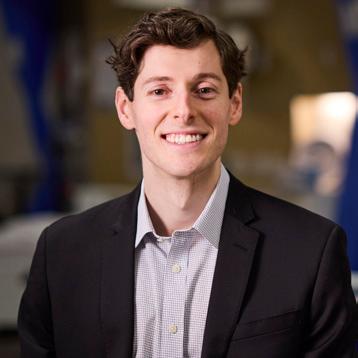
DR STEPHEN BACCHI
Fulbright Future Scholarship
Funded by The Kinghorn Foundation
Home: Royal Adelaide Hospital / SA Health
Host: Massachusetts General Hospital / Harvard Medical School
Field: Medicine

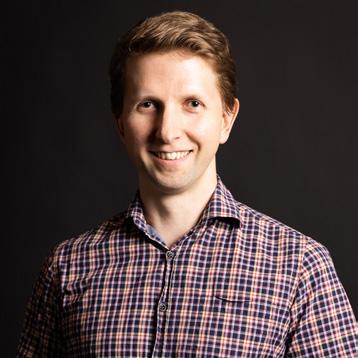
DR FREDERICK MARLTON
Fulbright Future Scholarship
Funded by The Kinghorn Foundation
Home: University of Technology Sydney
Host: Stanford University
Field: Materials Chemistry

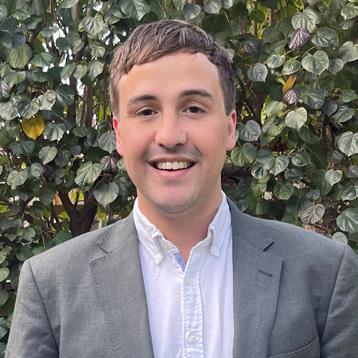
DR JAMIE BELLINGE
Fulbright Future Scholarship
Funded by The Kinghorn Foundation
Home: Sir Charles Gairdner Hospital / The University of Western Australia
Host: Massachusetts General Hospital / Harvard Medical School
Field: Nuclear Medicine

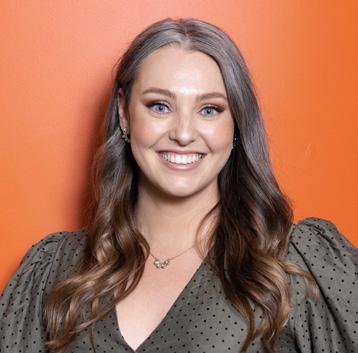
DR MADISON PATON
Fulbright Future Scholarship
Funded by The Kinghorn Foundation
Home: Cerebral Palsy Alliance Research Institute/ Monash University
Host: Duke University
Field: Medical Sciences



SALEEM AMEEN
Fulbright Future Scholarship
Funded by The Kinghorn Foundation
Home: University of Tasmania
Host: Massachusetts Institute of Technology
Field: Artificial Intelligence in Medicine

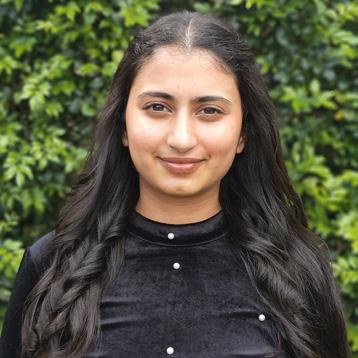
KESHAVI JAGDISH CHARDE
Fulbright Future Scholarship
Funded by The Kinghorn Foundation
Home: University of New South Wales
Host: University of California, Los Angeles
Field: Quantum Computing

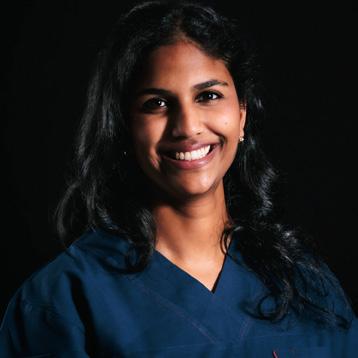
DR SIREESHA KONERU
Fulbright Future Scholarship
Funded by The Kinghorn Foundation
Home: The University of Sydney / Sydney Local Health District
Host: Mayo Clinic
Field: Colorectal Surgery

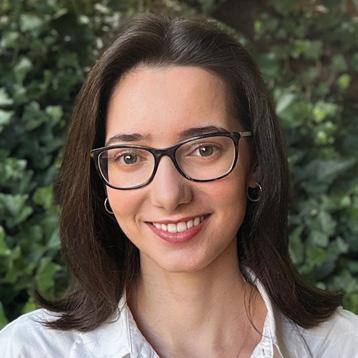
SOPHIA GRACE RIDOLFO
Fulbright Future Scholarship
Funded by The Kinghorn Foundation
Home: The Australian National University
Host: Harvard University
Field: Astronomy and Astrophysics

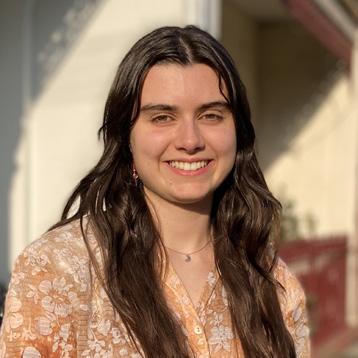
CHIARA CEMENTON
Fulbright Future Scholarship
Funded by The Kinghorn Foundation
Home: Synergetics Consulting Engineers
Host: Stanford University
Field: Mechanical Engineering


MADELEINE GORDON
Fulbright Future Scholarship
Funded by The Kinghorn Foundation
Home: The Australian National University
Host: Stevens Institute of Technology
Field: Computer Science

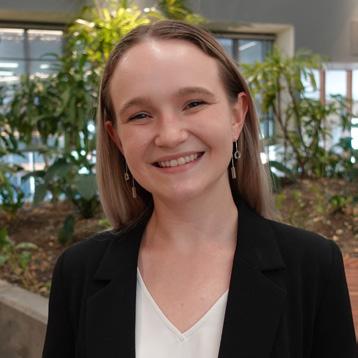
LAURA A. MILTON
Fulbright Future Scholarship
Funded by The Kinghorn Foundation
Home: Queensland University of Technology
Host: University of Washington
Field: Biomedical Engineering

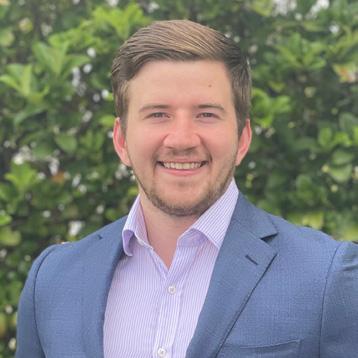
HARRY ROBERTSON
Fulbright Future Scholarship
Funded by The Kinghorn Foundation
Home: The University of Sydney
Host: Harvard University
Field: Computer Science / Bioinformatics

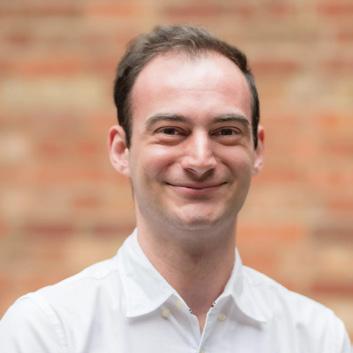
SHABAN BARNEY SULEJMAN
Fulbright Future Scholarship
Funded by The Kinghorn Foundation
Home: The University of Melbourne
Host: City University of New York
Field: Physics / Meta-optics

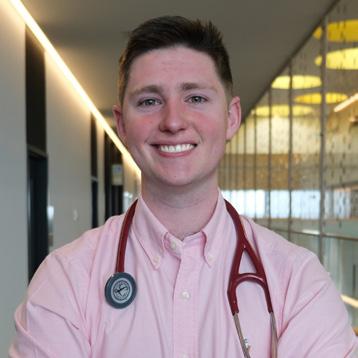
DR JAMES OLIVER TOWNSEND
Fulbright Future Scholarship
Funded by The Kinghorn Foundation
Home: NSW Health
Host: Harvard University
Field: Translational Medicine


CAITLIN ROSE TEDESCO
Fulbright Future Scholarship
Funded by The Kinghorn Foundation
Home: University of New South Wales
Host: National Institute on Drug Abuse Intramural Research Program
Field: Behavioural Neuroscience

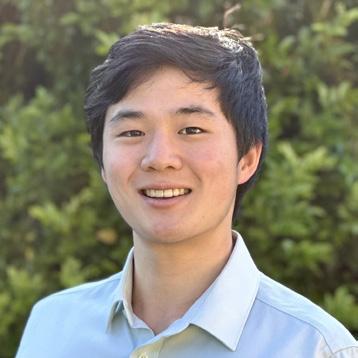
BILL HAIDE ZHU
Fulbright Future Scholarship
Funded by The Kinghorn Foundation
Home: University of New South Wales
Host: Albert Einstein College of Medicine
Field: Neuroscience
Thanks to the exceptional generosity of our university, government and institutional partners, Fulbright Australia offers a number of sponsored awards in specialty fields. These programs are designed to contribute to various priority research areas, bringing bilateral collaboration to the sponsor institution, and their associated networks.

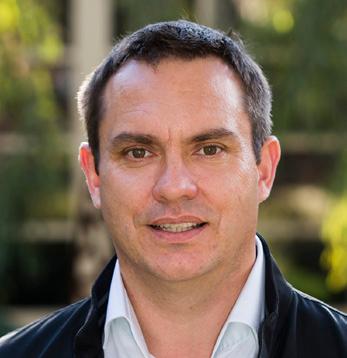
PROFESSOR RAYMOND LOVETT
Fulbright Indigenous Scholarship
Funded by the National Indigenous Australians Agency
Home: The Australian National University
Host: Harvard University
Field: Public Health

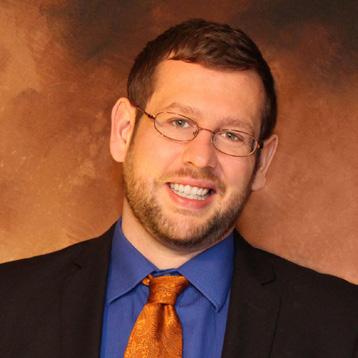
DR. ANDREW AULT
Fulbright Scholar Award
Funded by the University of Wollongong
Home: University of Michigan
Host: University of Wollongong Field: Chemistry

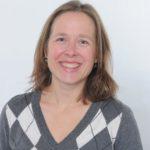
DR. STEPHANIE CASEY
Fulbright Scholar Award
Funded by the University of Canberra
Home: Eastern Michigan University
Host: University of Canberra
Field: STEM Education

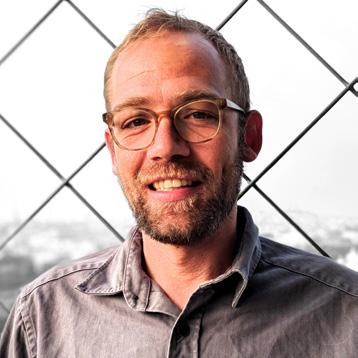
DR. JEFFREY JACQUET
Fulbright Scholar Award
Funded by Curtin University
Home: Ohio State University
Host: Curtin University
Field: Sociology

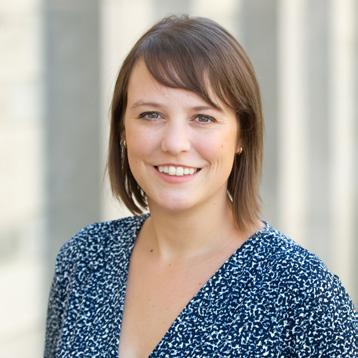
PROFESSOR BRIELLE STARK
Fulbright Scholar Award
Funded by the University of Technology Sydney
Home: Indiana University Bloomington
Host: University of Technology Sydney
Field: Speech, Language and Hearing Sciences

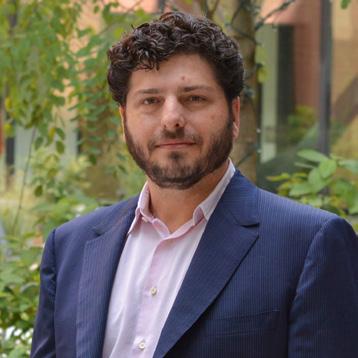
PROFESSOR DAVID F. FELDON PHD
Fulbright Scholar Award
Funded by The University of Newcastle
Home: Utah State University
Host: The University of Newcastle
Field: Education

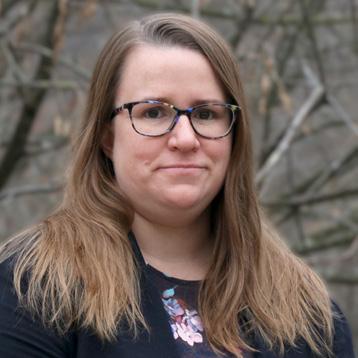
DR. HILLARY SMITH
Fulbright Scholar Award
Funded by the University of Wollongong
Home: Swarthmore College
Host: University of Wollongong
Field: Materials Science

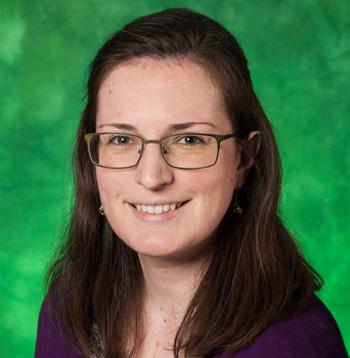
DR. ELYSE ZAVAR
Fulbright Scholar Award
Funded by the Regional Universities Network of Australia
Home: University of North Texas
Host: University of the Sunshine Coast/ University of New England
Field: Geography
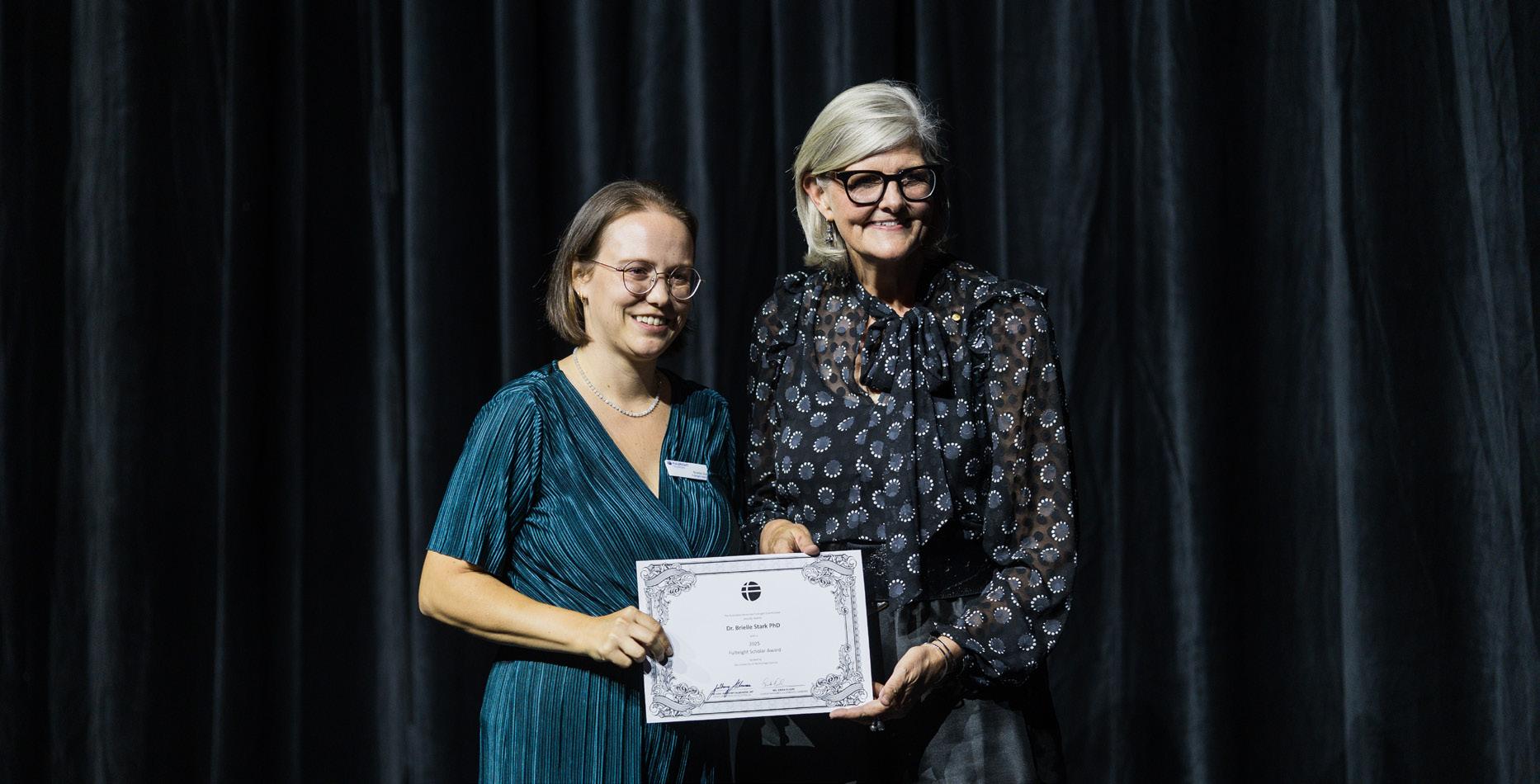

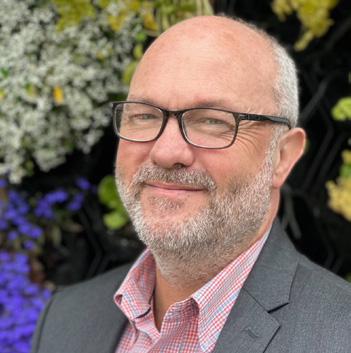
PAUL BOYS
Fulbright Professional in Vocational Education & Training
Funded by the the Department of Education
Home: TAFE Gippsland
Host: California State University
Field: Vocational Education and Training

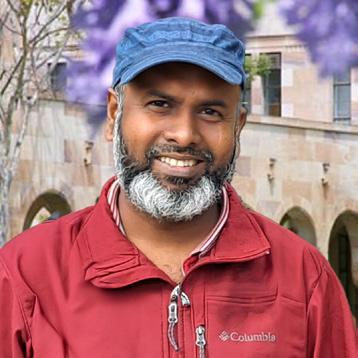
DR DEWAN MOSTAFIZUR RAHMAN
Fulbright Professional Coral Sea Scholarship (Business/Industry)
Home: The University of Queensland
Host: The University of Michigan
Field: Business / Finance
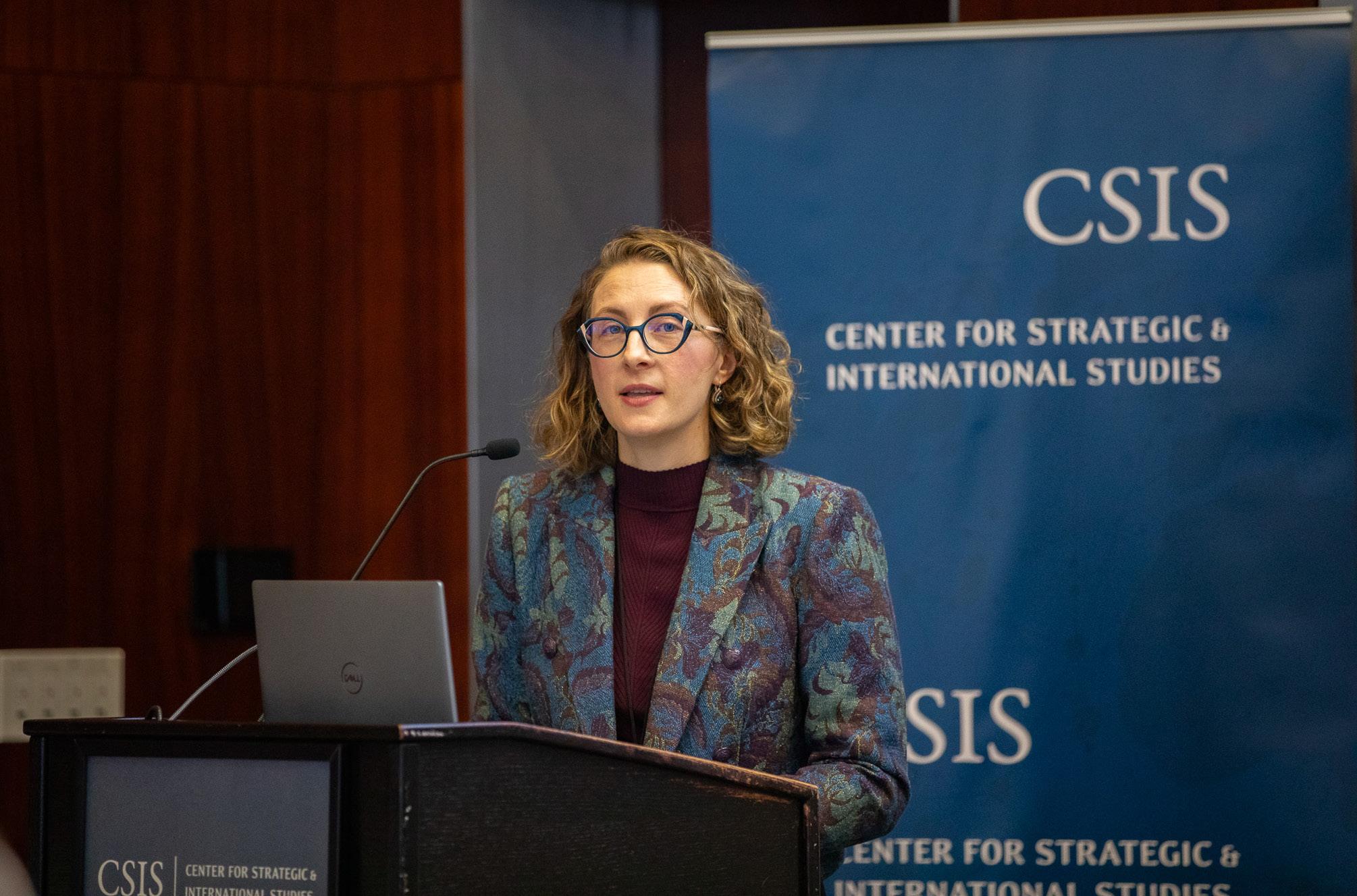


DAYLE STANLEY
Fulbright Professional Scholarship in AustralianAmerican Alliance Studies
Funded by the Department of Foreign Affairs & Trade
Home: The Australian National University
Host: Center for Strategic & International Studies
Field: National Security & Strategic Policy
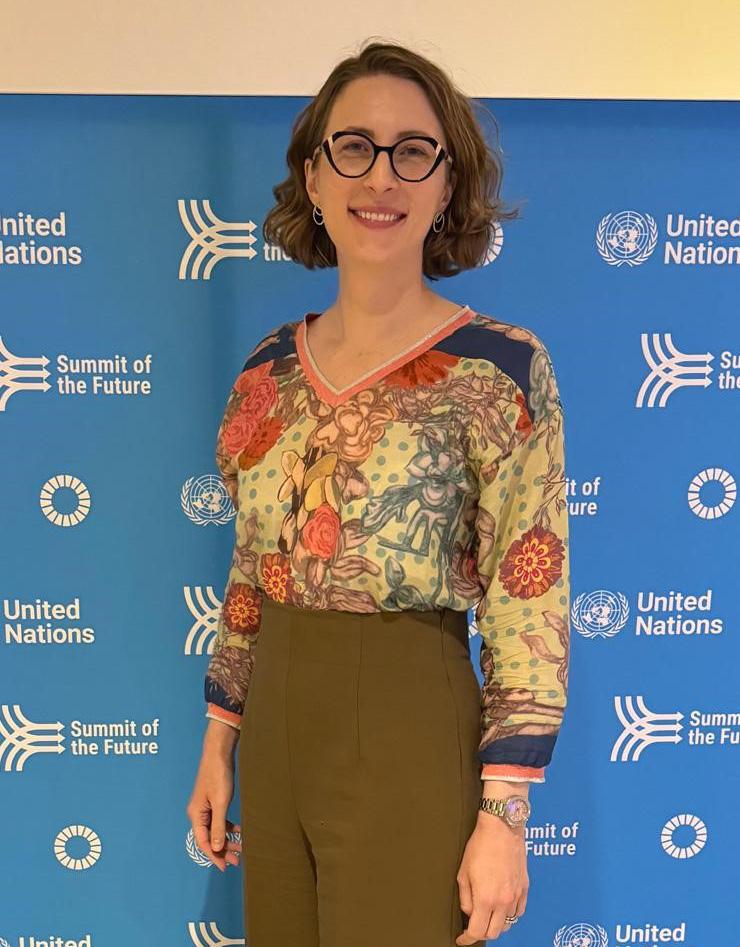
2024 Fulbright Professional Scholar in AustralianAmerican Alliance Studies
Funded by the Department of Foreign Affairs & Trade
Bringing together the U.S. and Australian strategic foresight communities has been an incredibly rewarding experience.
After four months, I feel I’ve only just scratched the surface—there is so much we can learn from one another, with many similarities and shared opportunities for collaboration. The enduring challenge remains: how do we balance the demands of immediate, day-to-day work with the long view necessary to develop sound, future-ready policy?
Within the U.S. Government, there is a passionate and diverse community of futures practitioners. This community meets monthly as part of the Federal Foresight Community of Interest, which includes current and former government officials, as well as private sector experts. I had the opportunity to present at their December 2024 meeting, where I shared insights from the Australian context and highlighted some of the parallel challenges we face.
Foresight teams in the U.S. Government range from newly established groups, such as the one at the Federal Emergency Management Agency (FEMA), to long-standing bodies like the U.S. Government Accountability Office, Army Futures Command, and Air Force Futures. One particularly creative unit, known as the “Skunkworks” within Air Force Futures, encourages its "Woodland Creature" team members to develop wild and unconstrained ideas—an approach that invites innovation in long-term strategic thinking.
However, there have been cycles of rise and decline in foresight capabilities across government. Several practitioners noted the difficulty of gaining traction with senior decision-makers and evaluating the impact of their work.
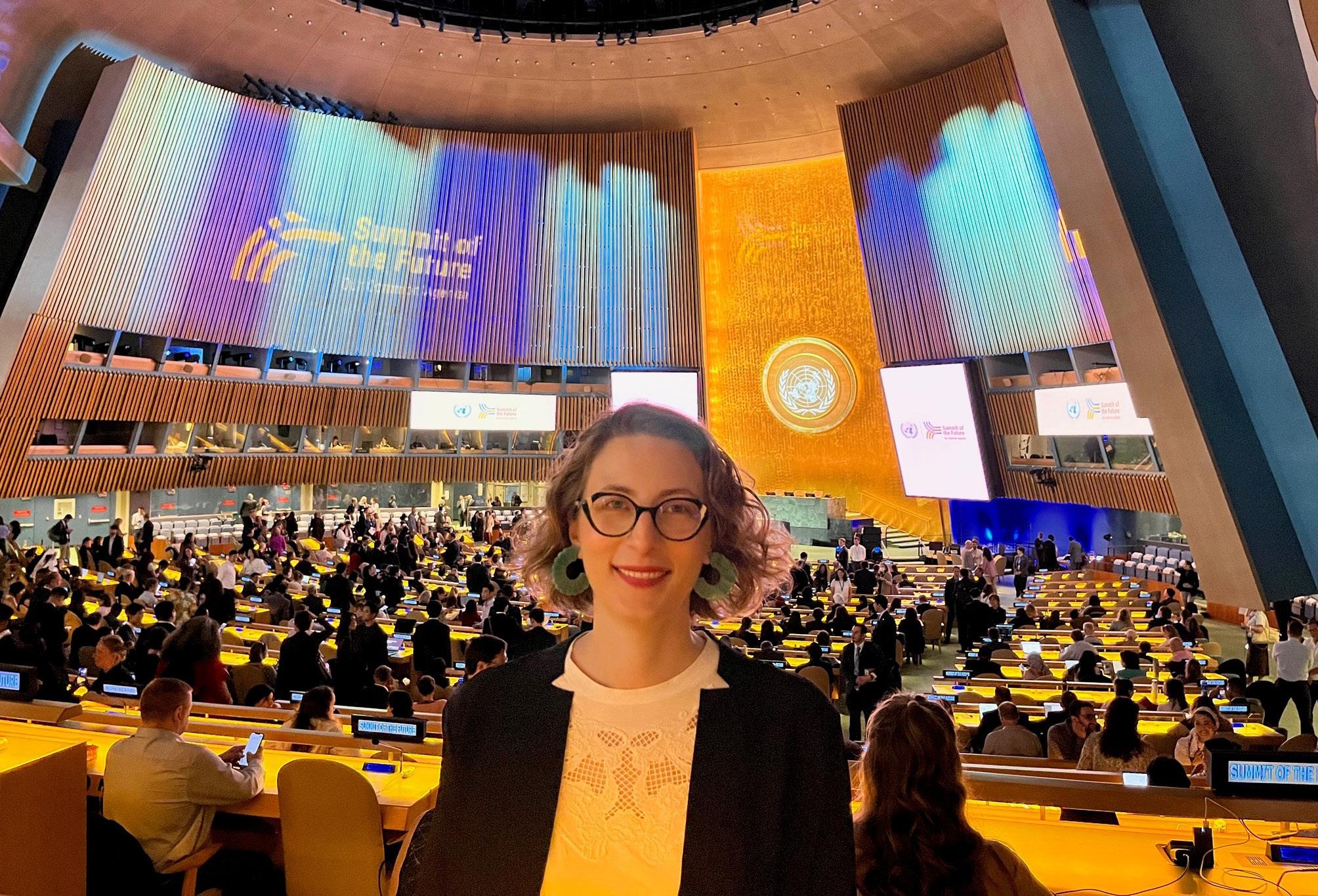
The Continuing Resolution process also restricts forward budget planning, which hampers futures thinking. In response, Robin Champ, Suzette Brooks Masters, and Kara Cunzeman have founded the Federal Foresight Advocacy Alliance, which is calling for the establishment of a U.S. Federal Office of Strategic Foresight. Their case statement is compelling and well worth reading, though, anecdotally, views are mixed about whether the proposal will gain traction in Congress.
CSIS Futures
At the Center for Strategic and International Studies (CSIS), we delivered the Fall Global Foresight Course in collaboration with futurist Peter Scoblic, who is currently working on a new book about the history of decisionmaking. The course was attended by an international cohort eager to explore global megatrends and scenario development.
CSIS also leads a Congressional Foresight Initiative and is in the process of mapping foresight capabilities across the U.S. Government—a report set to be released publicly in 2025. I plan to replicate this survey in Australia to enable a comparative analysis.
Ongoing Collaboration
My scenario planning workshop, “Future-proofing the American-Australian Alliance: Exploring Opportunities and Challenges Together in Southeast Asia and the Pacific,” brought together U.S. experts to explore four alternative 2040 scenarios. Participants considered the risks, opportunities, and mutual expectations of each country in those potential futures, concluding with a set of actions we can take together to prepare for what lies ahead.

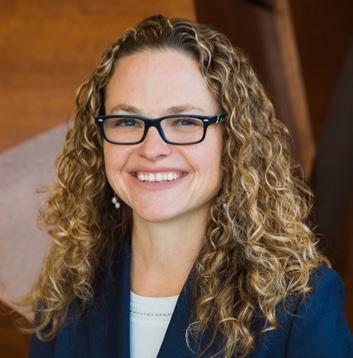
DR. JACEY CERDA JD, MPH, DVM
Fulbright Postdoctoral Scholarship
Funded by the the Regional Universities Network of Australia
Home: Colorado State University
Host: Federation University
Field: Wildlife Conservation

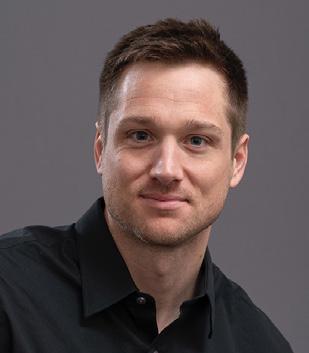
DR. LUCAS GRIFFIN
Fulbright Postdoctoral Scholarship
Funded by Deakin University
Home: University of South Florida
Host: Deakin University
Field: Eco-physiology
The workshop will be replicated in Canberra in February 2025, with CSIS Australia Chair and Senior Adviser Charles Edel in attendance. Charles and I aim to publish a comparative analysis of the insights from both workshops.
The CSIS Hess Center for New Frontiers and the Futures Hub at the National Security College are committed to an enduring, collaborative relationship—sharing methodologies, testing ideas, serving as sounding boards, and contributing to each other’s executive education programs.
There is much to learn from each other, and collaborate on, in the Australia-American foresight space and I am looking forward to continuing the work in 2025.
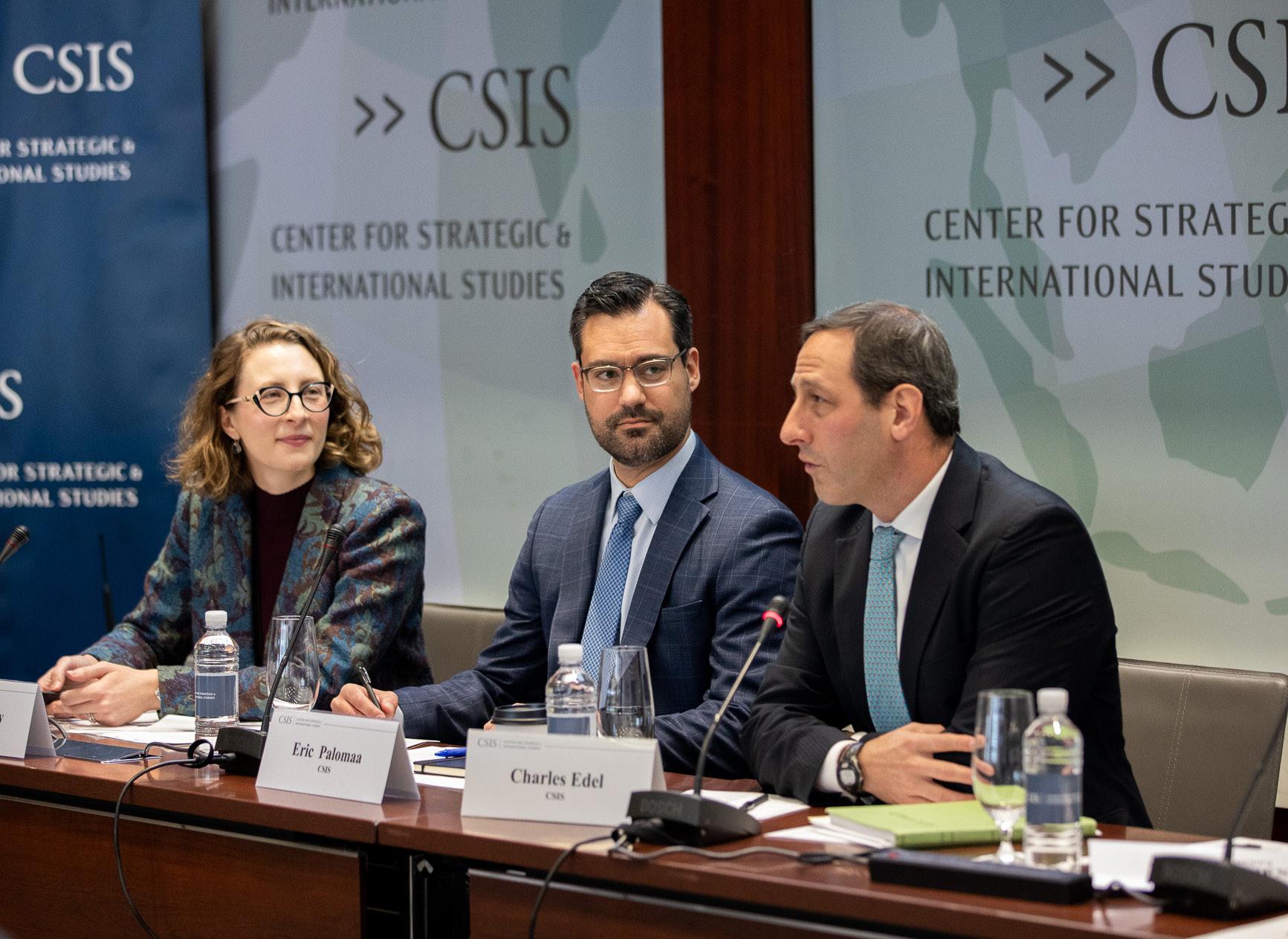

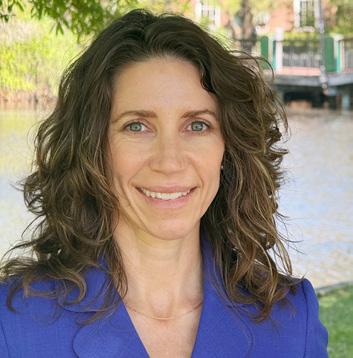
DR. EMILY GASPAR PHD
Fulbright Postdoctoral Scholarship
Funded by Deakin University
Home: Coastal Carolina University
Host: Deakin University
Field: Disability Justice in Higher Education


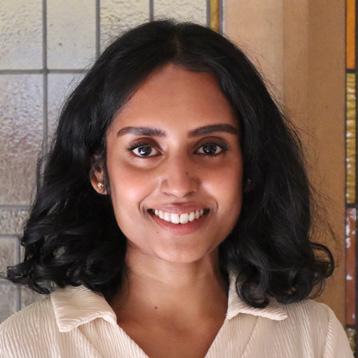
DR NIRO KANDASAMY
Fulbright Postdoctoral Scholarship
Funded by Monash University
Home: The University of Sydney
Host: Georgetown University
Field: History
POSTGRADUATE STUDENT CATEGORY (AUSTRALIA)

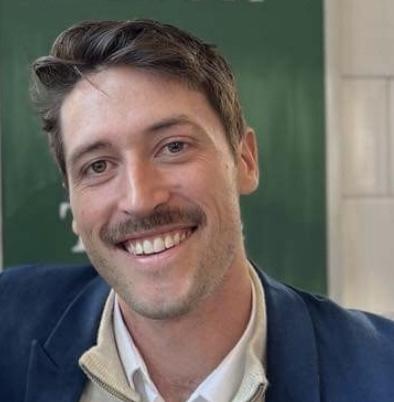
NED TALBOT
Fulbright Anne Wexler Scholarship in Public Policy
Funded by the Department of Education
Home: Department of Foreign Affairs and Trade
Host: Johns Hopkins University
Field: International Relations

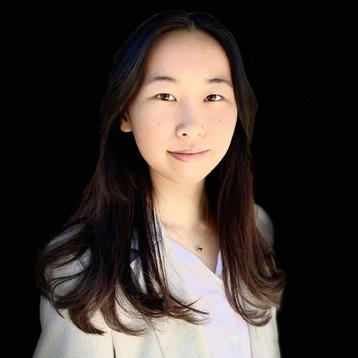
KYRA LEE
Fulbright Postgraduate Scholarship
Funded by Western Sydney University
Home: University of Puget Sound
Host: Western Sydney University
Field: Neuromorphic Engineering

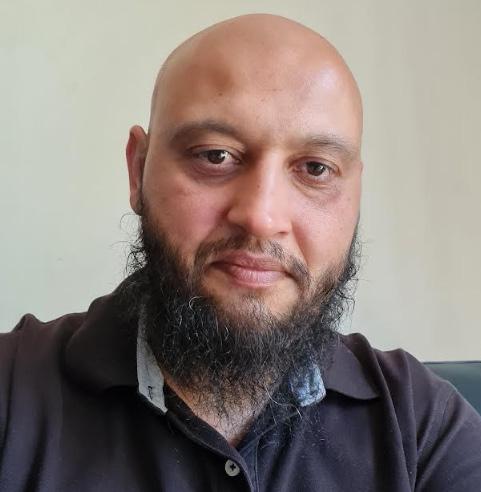
DR BABAR SHABBIR
Fulbright Postdoctoral Scholarship (ViceChancellor’s Postdoctoral Research Fellowship)
Funded by RMIT University
Home: Monash University
Host: University of Illinois Urbana-Champaign
Field: X-Ray Detectors
POSTGRADUATE STUDENT CATEGORY (U.S.)

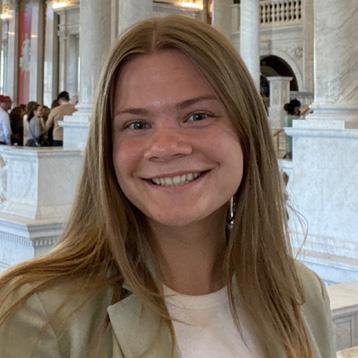
LAYREN MCDANNOLD
Fulbright Anne Wexler Scholarship in Public Policy
Funded by the Department of Education
Home: Susquehanna University
Host: The University of Queensland
Field: Public Policy

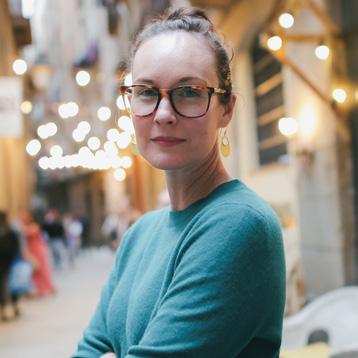
ARTIS HENDERSON
Fulbright-National Geographic Award
Home: Columbia University
Host: Geological Survey of Western Australia
Field: Finance
Fulbright State/Territory Scholarships have been established for each State and Territory in Australia. These scholarships are supported by State/ Territory governments, companies, universities, and private donors. Their aim is to encourage research relevant to the State, and assist the building of international research links between each State and U.S. research institutions.
POSTDOCTORAL CATEGORY (AUSTRALIA)

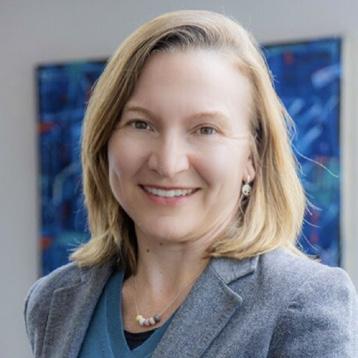
DR GABI MOCATTA
Fulbright Tasmania Scholarship
Funded by the University of Tasmania and the State Government of Tasmania
Home: University of Tasmania
Host: George Mason University/Uniersity of Colorado-Boulder
Field: Climate Change Communication

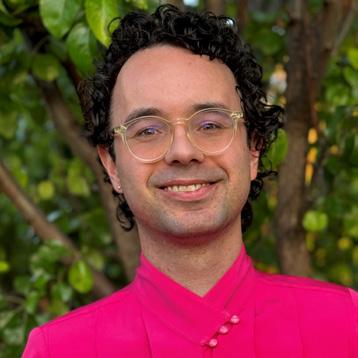
JOSHUA ADAM BELPERIO
Fulbright South Australia Scholarship
Funded by Flinders University, the University of Adelaide, and the Government of South Australia
Home: The University of Adelaide
Host: New York University
Field: Musical Theatre Writing

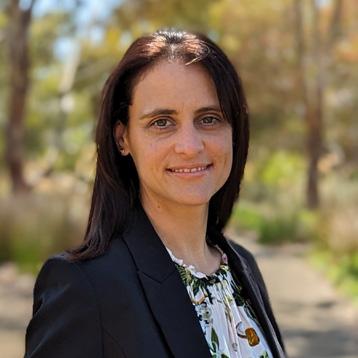
EMILY EGLITIS
Fulbright South Australia Scholarship
Funded by Flinders University, the University of Adelaide, and the Government of South Australia
Home: University of South Australia
Host: University of South Carolina
Field: Public Health
POSTGRADUATE STUDENT CATEGORY (AUSTRALIA)

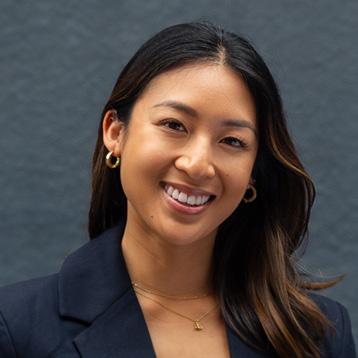
BELINDA GIA LINH AN
Fulbright Sir John Carrick New South Wales Scholarship
Funded by the State Government of New South Wales
Home: Royal Hospital for Women
Host: Harvard University
Field: Medicine / Education

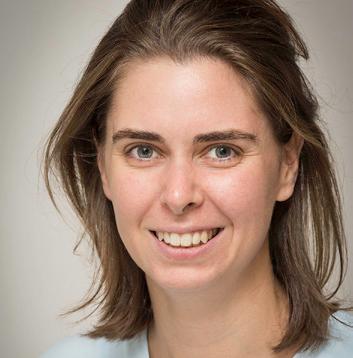
DR VICTORIA ROSE VALENTINA COX
Fulbright Northern Territory Scholarship
Funded by Charles Darwin University and the Northern Territory Government
Home: Menzies School of Health Research
Host: Harvard University
Field: Global Health Dermatology

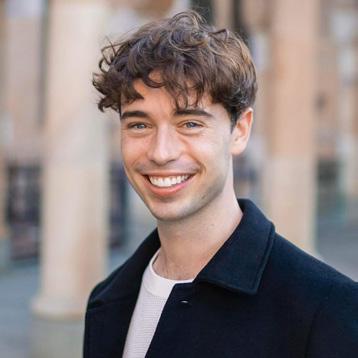
KIERAN GIBSON
Fulbright Queensland Scholarship
Funded by the State Government of Queensland
Home: The University of Queensland
Host: University of California, San Diego
Field: Behavioural Economics

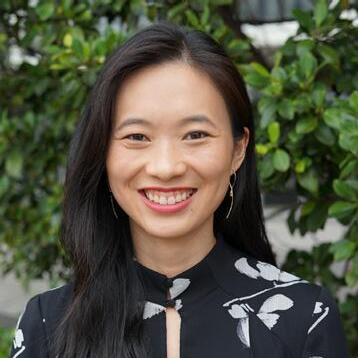
DR CHRISTINA GUO
Fulbright Victoria Scholarship
Funded by the State Government of Victoria
Home: The University of Melbourne
Host: Johns Hopkins University
Field: Public Health

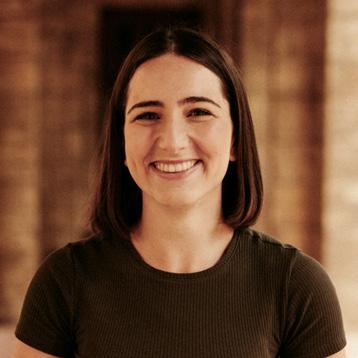
DR BRITTANY SUANN
Fulbright Western Australia Scholarship
Funded by the State Government of Western Australia
Home: Perth Children's Hospital / University of Western Australia
Host: Harvard T.H. Chan School of Public Health
Field: Public Health
Fulbright General Category Scholarships are the original Fulbright awards funded by the Australian and United States governments. Available for Australians and Americans across three categories--Postgraduate, Postdoctoral, and Scholar--these awards have formed the backbone of the Fulbright Program in Australia for close to 75 years.
SCHOLAR CATEGORY (AUSTRALIA)


PROFESSOR ANDREW PAGE Fulbright Scholar Award
Home: Western Sydney University
Host: Center for Mind and Culture / Boston University
Field: Epidemiology
SCHOLAR CATEGORY (U.S.)

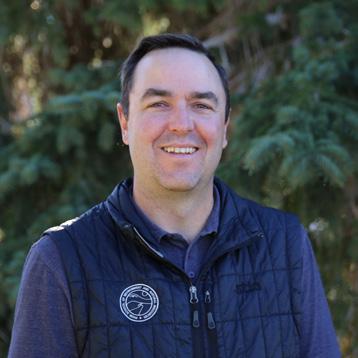
PROFESSOR DREW BENNETT Fulbright Scholar Award
Home: University of Wyoming
Host: CSIRO
Field: Environment and Natural Resources

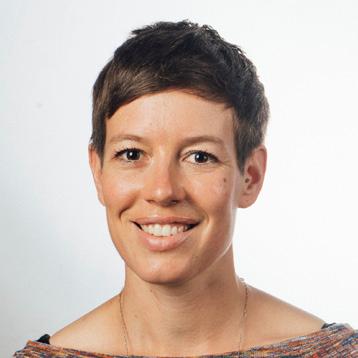
DR ANNA MADELEINE RAUPACH Fulbright Scholar Award
Home: The Australian National University
Host: University of Southern California
Field: Media Arts

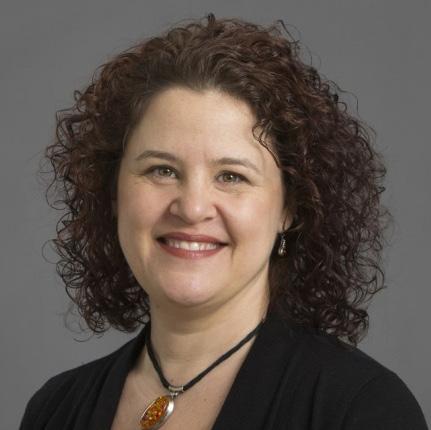
ERIN EMERY-TIBURCIO PHD, ABPP Fulbright Scholar Award
Home: Rush University Medical Center
Host: The University of Queensland
Field: Geropsychology


DR. ERIN HOWIE Fulbright Scholar Award
Home: University of Arkansas
Host: Curtin University Field: Exercise Science and Public Health

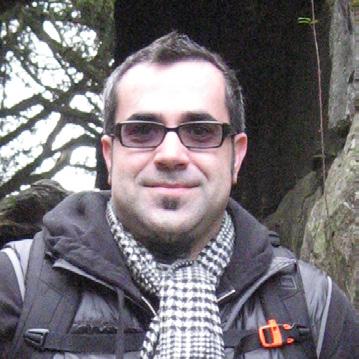
DR. JASON M. PITTMAN Fulbright Scholar Award
Home: University of Maryland Global Campus
Host: The University of Adelaide Field: Cyber Information Influence

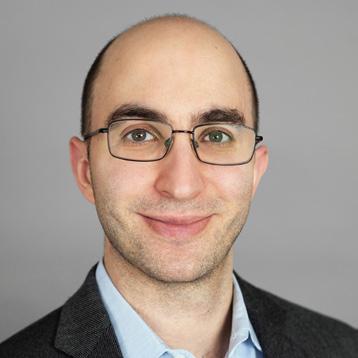
DR. JASON SCHULMAN Fulbright Scholar Award
Home: Jewish Theological Seminary
Host: Sydney Jewish Museum Field: History


PROFESSOR LAUREN WILLIS Fulbright Scholar Award
Home: Loyola Marymount University Law School
Host: The University of Melbourne
Field: Law

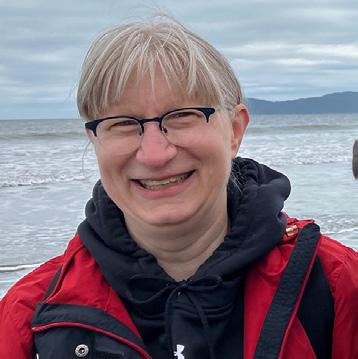
DR. DIANE A. KELLY Fulbright Scholar Award
Home: University of Massachusetts, Amherst Host: The University of Adelaide Field: Functional Morphology

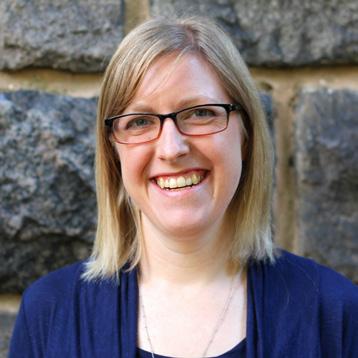
PROFESSOR KERRI A. PRATT Fulbright Scholar Award
Home: University of Michigan
Host: CSIRO Field: Chemistry

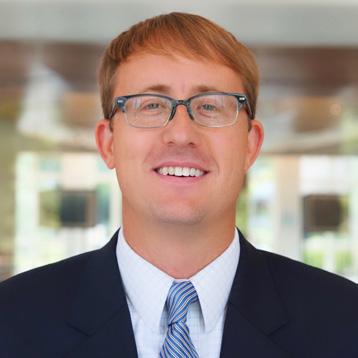
PROFESSOR BRIAN A. SILVEY Fulbright Scholar Award
Home: University of Missouri
Host: The University of Melbourne Field: Music Education
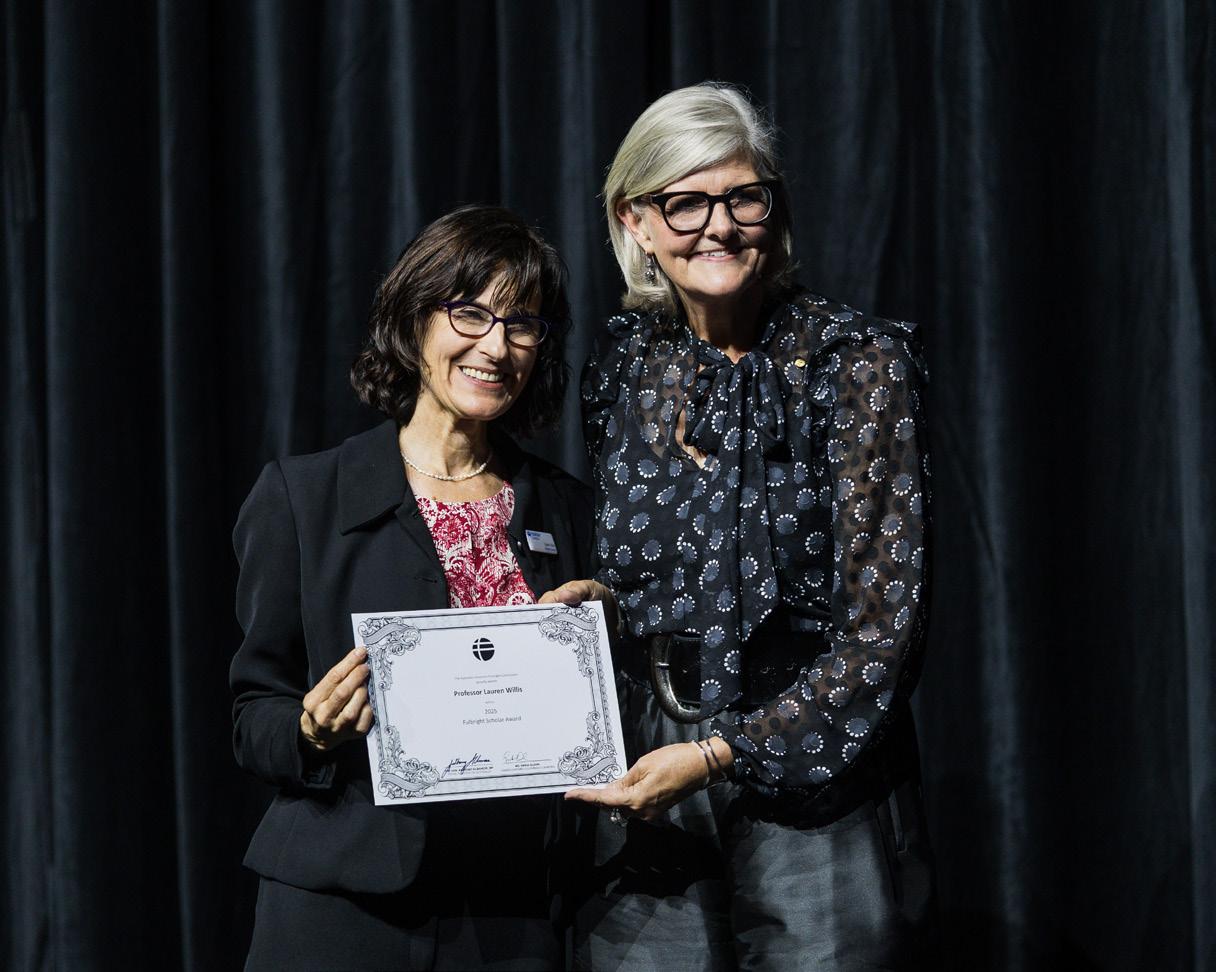

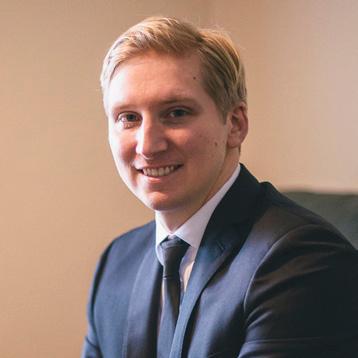
DR DAVID PREECE
Fulbright Postdoctoral Scholarship
Home: Curtin University
Host: Stanford University
Field: Psychology

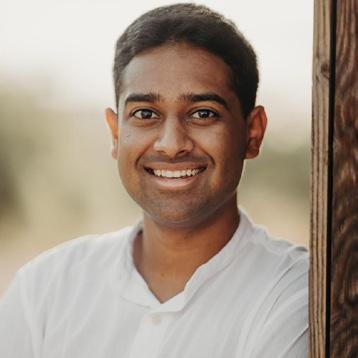
DANIEL JOHN
Fulbright Postgraduate Scholarship
Home: University of California, San Diego
Host: The University of Sydney
Field: Biomaterials/Oncology

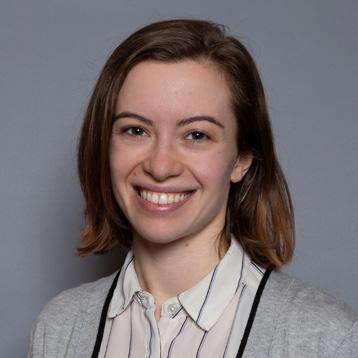
NATALIE MCGOWAN
Fulbright Postgraduate Scholarship
Home: Northeastern University
Host: The University of Sydney Field: Public Health

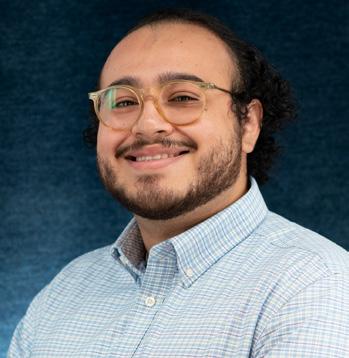
ADRIAN PORTALES
Fulbright Postgraduate Scholarship
Home: Harvard University
Host: University of New South Wales
Field: Quantum Engineering

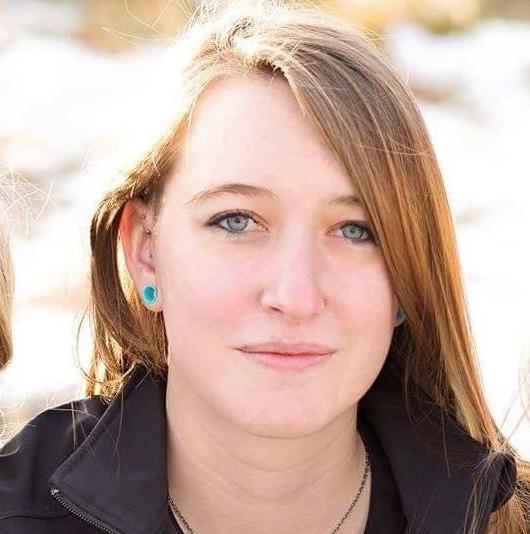
GWENDOLYNN HUMMEL MS
Fulbright Postgraduate Scholarship
Home: Baylor College of Medicine
Host: The University of Western Australia
Field: Medical Science

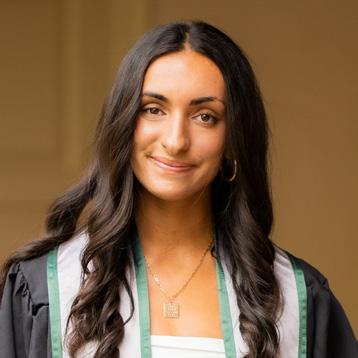
TARA KERR
Fulbright Postgraduate Scholarship
Home: The College of William & Mary
Host: James Cook University
Field: Marine Ecology

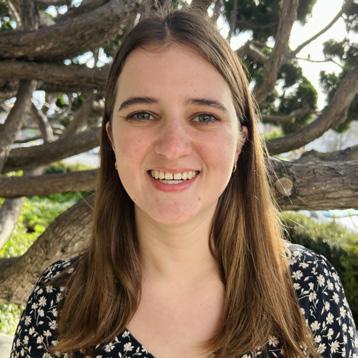
NELIA PERRY
Fulbright Postgraduate Scholarship
Home: Pomona College
Host: Australian Museum
Field: Biodiversity and Wildlife Genomics


ALEXANDRA ROSENTHAL
Fulbright Postgraduate Scholarship
Home: University of Virginia
Host: Swinburne University of Technology
Field: Astrophysics

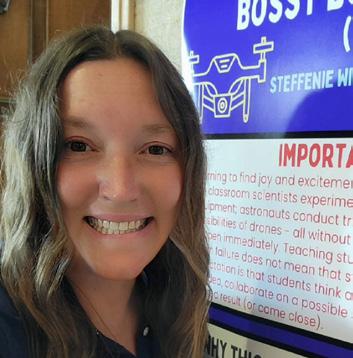
DR. STEFFENIE WILLIAMS
Fulbright Postgraduate Scholarship
Home: University of Wisconsin - Madison
Host: The University of Queensland
Field: Play-Based Learning
POSTGRADUATE STUDENT CATEGORY (AUSTRALIA)

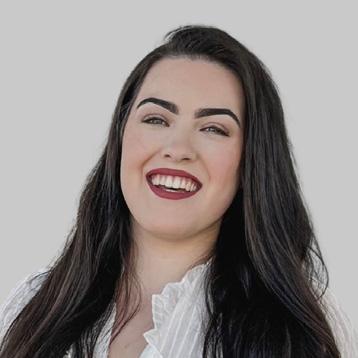
DANA BADCOCK
Fulbright Postgraduate Scholarship
Home: University of Tasmania
Host: Indiana University
Field: Contemporary Voice

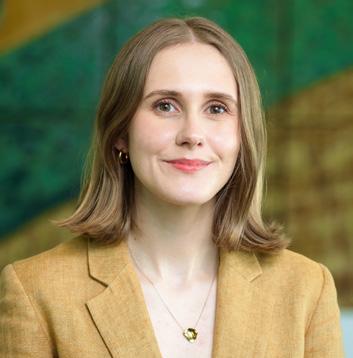
JUSTINE LANDIS-HANLEY
Fulbright Postgraduate Scholarship
Home: The University of Sydney
Host: Columbia University
Field: Investigative Journalism

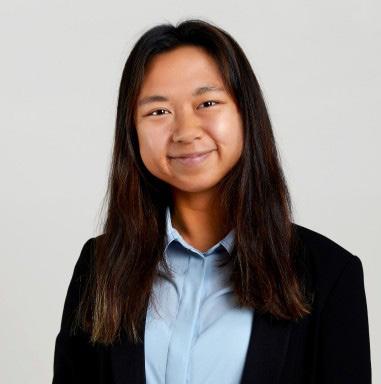
EMILY ZHAO
Fulbright Postgraduate Scholarship
Home: Duke University
Host: University of New South Wales
Field: Renewable Energy

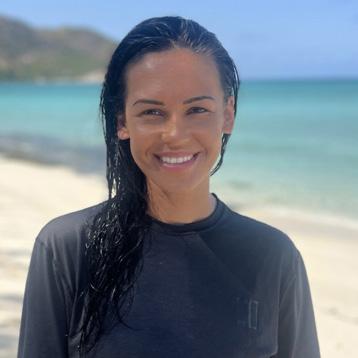
DANIELLE KAMPERS
Fulbright Postgraduate Scholarship
Home: Australian Institute of Marine Science
Host: University of California, San Diego
Field: Environmental Science

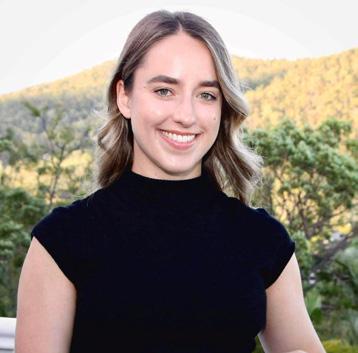
GRACE ELIZABETH MANAHAN
Fulbright Postgraduate Scholarship
Home: Griffith University
Host: Georgetown University
Field: National Security Law
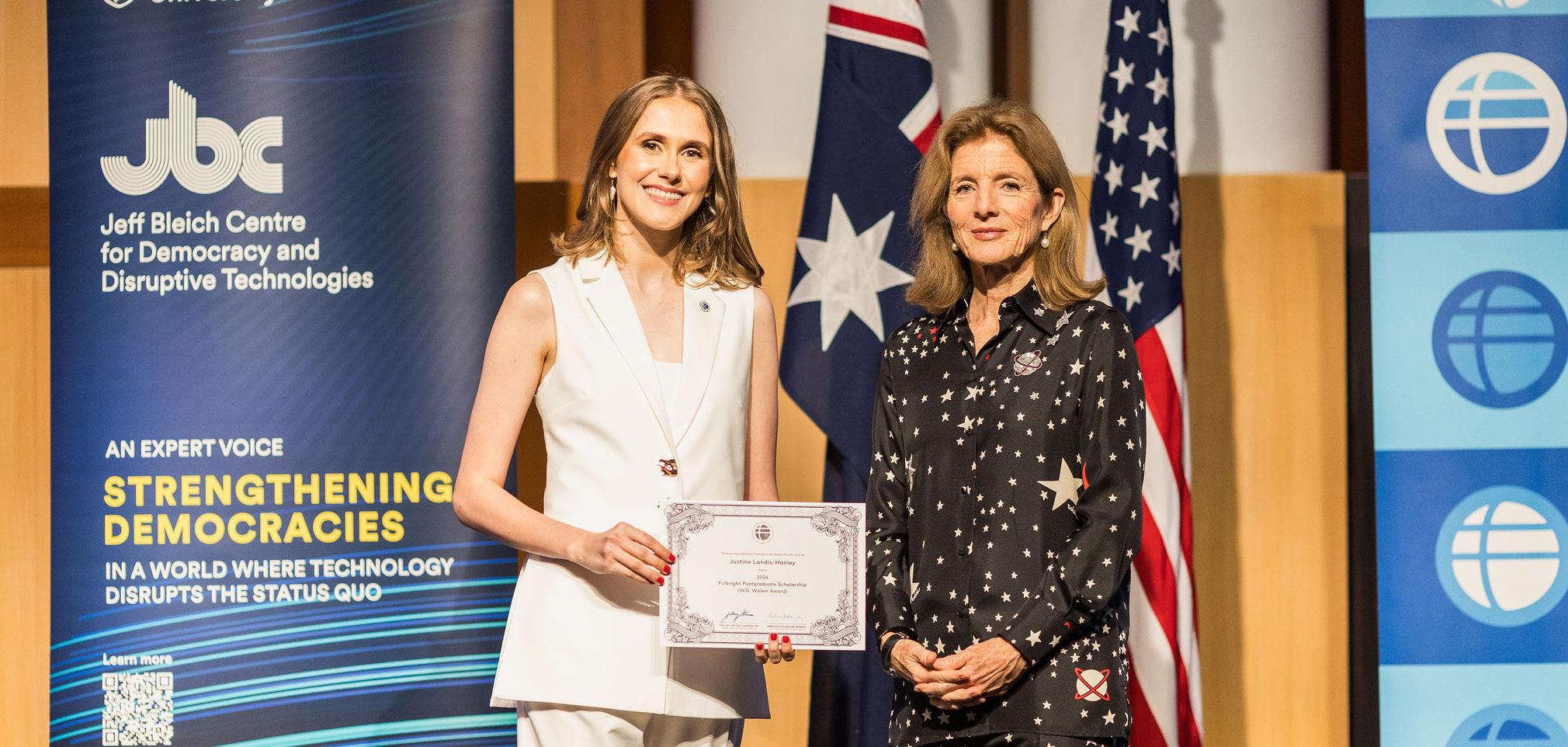
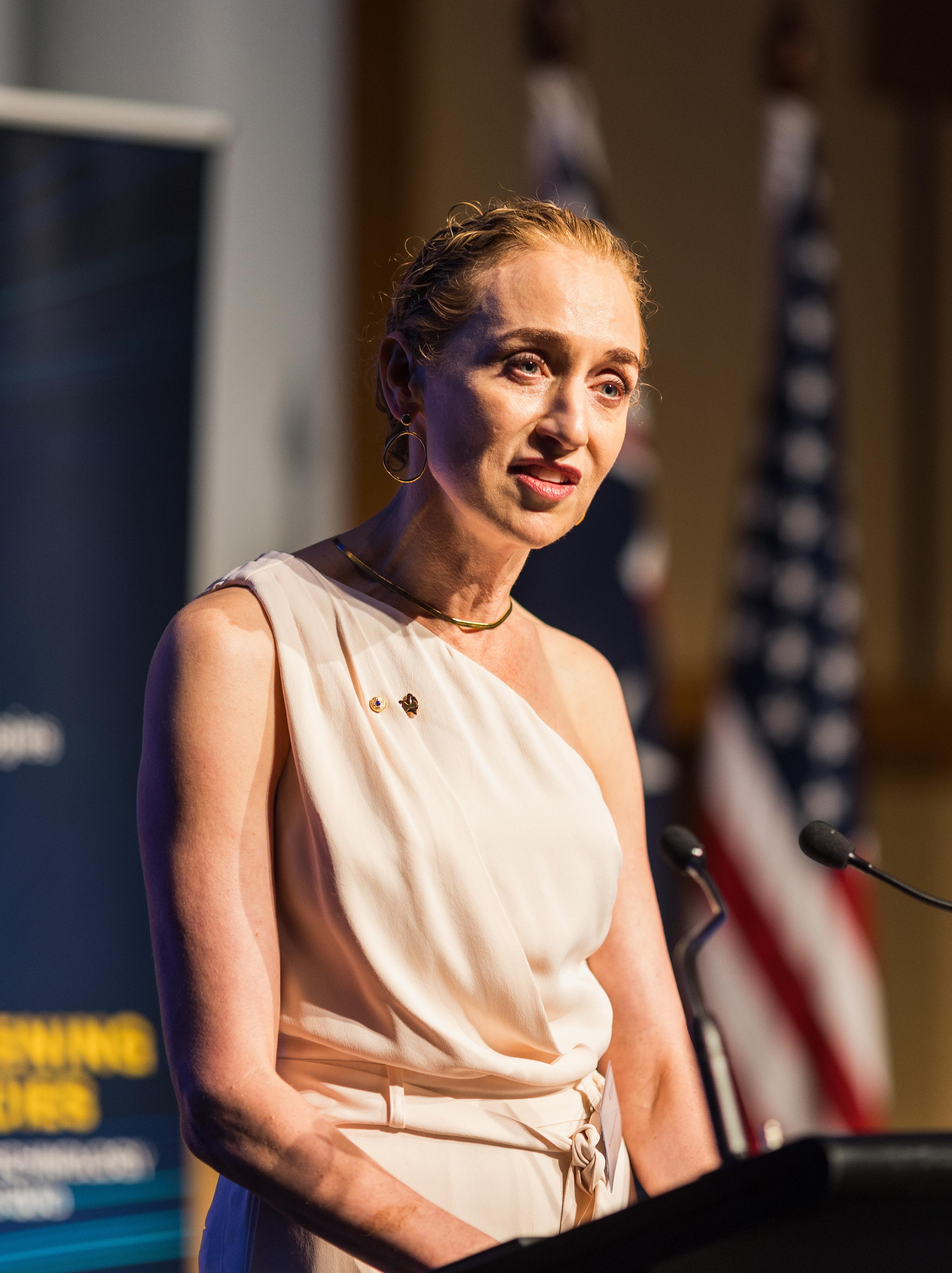
Professor Georgina Long AO 2024 Australian of the Year, Melanoma Researcher, and Fulbright
Fulbright Scholars are, by definition, thought leaders and cultural ambassadors. In order to advance Fulbright’s influence and impact, we must highlight the success stories of our awardees and alumni to showcase the contributions they make to their fields, and the wider community. We aim to achieve this through diverse, engaging events and high-quality publications.
In December 2024, Fulbright Australia hosted the East Asia Pacific Regional Executive Directors' Conference in Sydney -- the first time Australia had hosted this gathering in nearly two decades. The event brought together leaders, staffers and stakeholders from Fulbright Commissions and U.S. Embassies across the region, as well as leaders from the Institute of International Education and the U.S. Department of State. The conference served as a platform to discuss shared challenges, exchange best practices, and explore opportunities for collaboration in academic and cultural exchange programs.
Key topics included enhancing scholar support services, expanding outreach to underrepresented communities, and fostering partnerships with regional institutions. The gathering underscored the collective commitment to advancing the Fulbright mission of mutual understanding through educational and cultural exchange.
The Sydney conference not only reinforced regional ties but also celebrated the enduring impact of the Fulbright Program in the Asia-Pacific, setting the stage for continued collaboration and innovation in the years ahead.
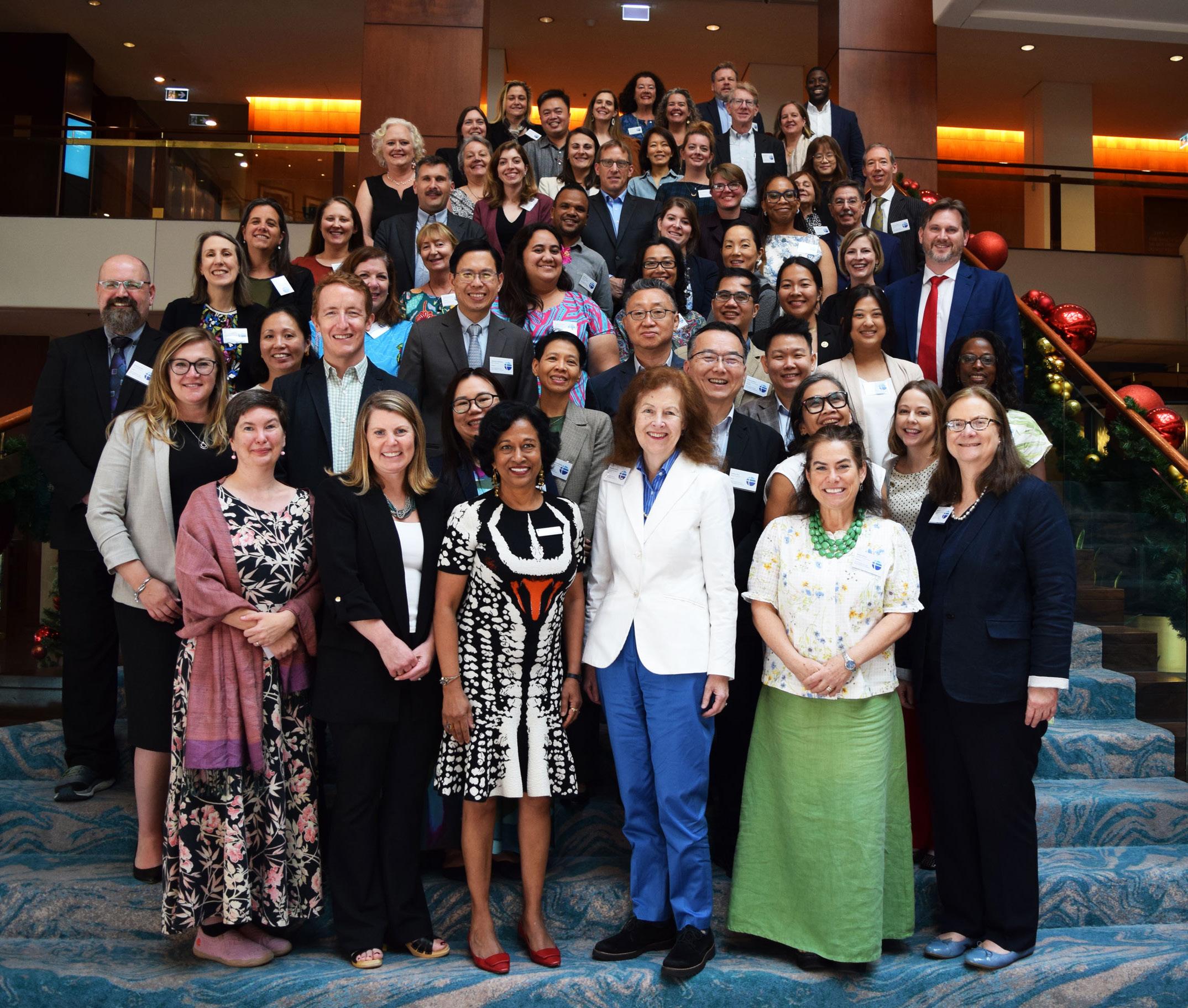

In 2024, the Australian-American Fulbright Commission proudly marked the 75th anniversary of the Fulbright Program in Australia—a milestone celebrating decades of academic excellence, cultural exchange, and enduring bilateral ties. Throughout the year, a series of commemorative events and initiatives brought together scholars, alumni, and supporters to honor the program's rich legacy and envision its future.
The anniversary was celebrated across Australia with events that highlighted the program's impact and fostered community engagement:
• Canberra (27 February 2024): The national celebrations kicked off with a landmark 75th Anniversary Gala Dinner at Parliament House, attended by scholars, alumni, dignitaries, and government representatives. The keynote address was delivered by 2024 Australian of the Year and Fulbright alumna Professor Georgina Long AO, whose words powerfully underscored the value of bilateral academic exchange in addressing the world’s greatest health and societal challenges. Earlier that week, U.S. Ambassador Caroline Kennedy hosted a formal reception at the U.S. Embassy in Canberra to honour the anniversary and reaffirm the shared commitment between Australia and the United States to fostering mutual understanding through education.
• Melbourne (9 May 2024): Hosted by the Australian Fulbright Alumni Association (AFAA) Victorian Chapter at RMIT University, this event featured reflections from Fulbright alumni and discussions on the program's future directions. The event featured remarks from Assistant Minister for Foreign Affairs, the Hon. Tim Watts
• Brisbane (14 November 2024): Griffith University and Fulbright Australia co-hosted a celebratory evening, providing a platform for alumni and scholars to connect and explore the program's ongoing contributions to cultural exchange.
• Sydney (19 November 2024): The AFAA New South Wales Chapter organized a gathering at the H.C. Coombs Centre, featuring remarks from Her Excellency the Honourable Margaret Beazley AC KC Governor of New South Wales together the Fulbright community to commemorate the program's 75-year journey.
The anniversary was also celebrated internationally:
• Washington, D.C. (18 October 2024): At the Australian Embassy, Ambassador Kevin Rudd, University of Houston Law Center Professor/Fulbright alum, Professor Renee Knake Jefferson, and Fulbright Anne Wexler Scholar, Vinuri Dissanayake delivered remarks honoring the program's legacy and its influence on public service.
• Fulbright Day: Australia (22 October 2024): An online panel discussion featured distinguished Fulbright Scholars, moderated by Emmy award-winning journalist and Fulbright Board member Sara James, reflecting on the program's achievements and future aspirations.
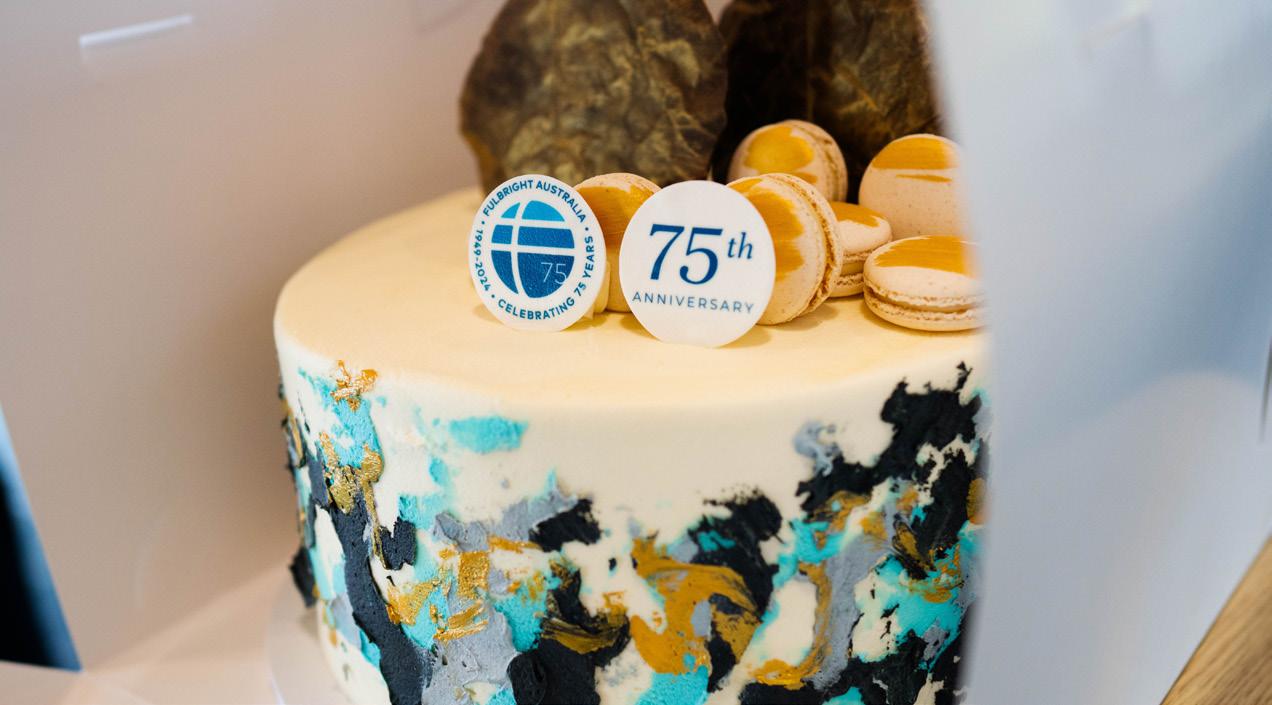
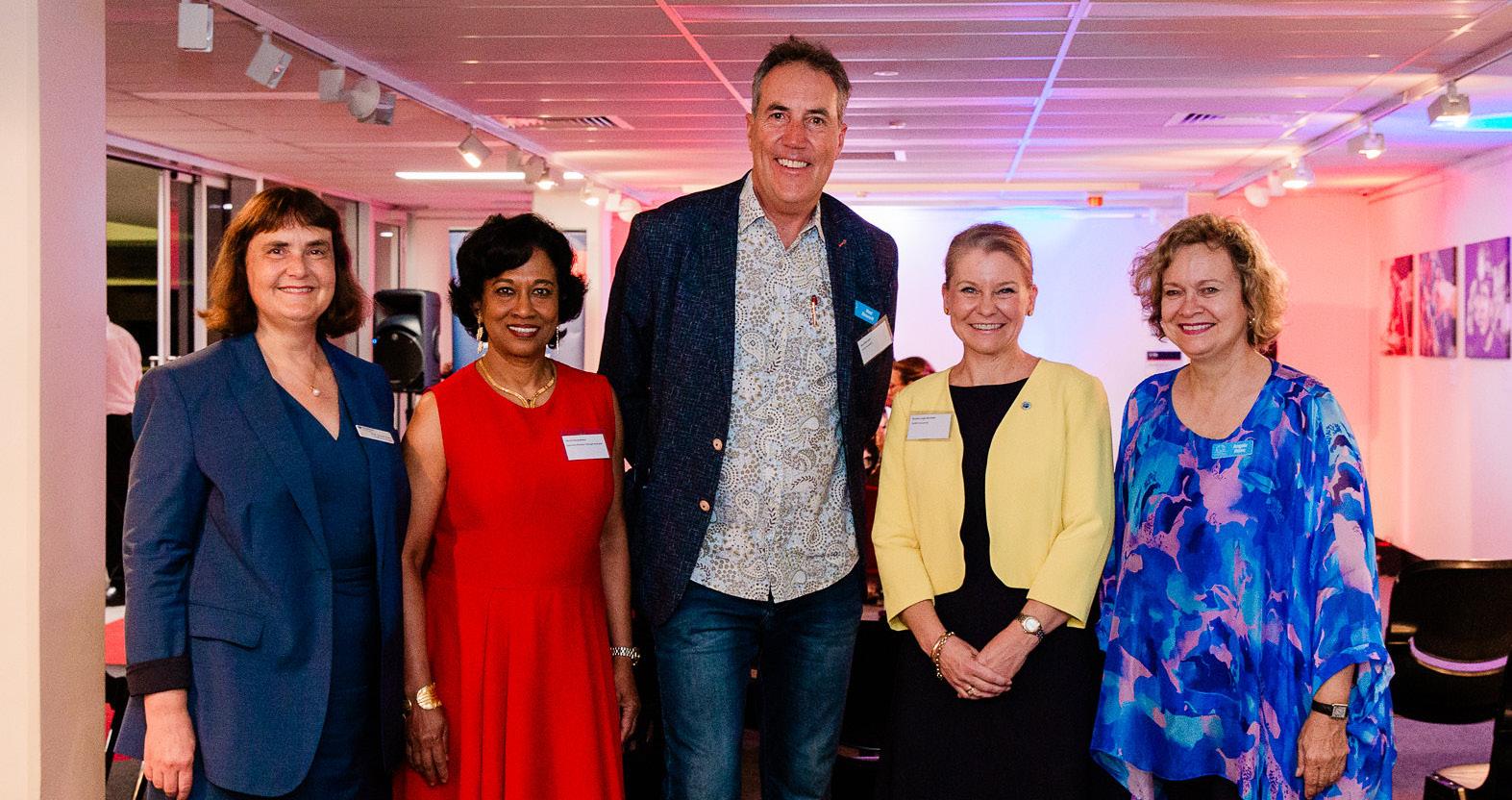

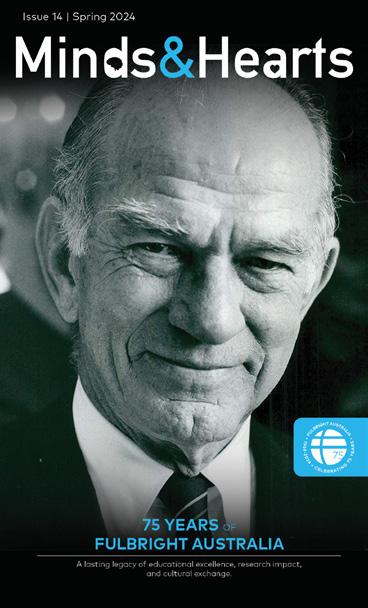
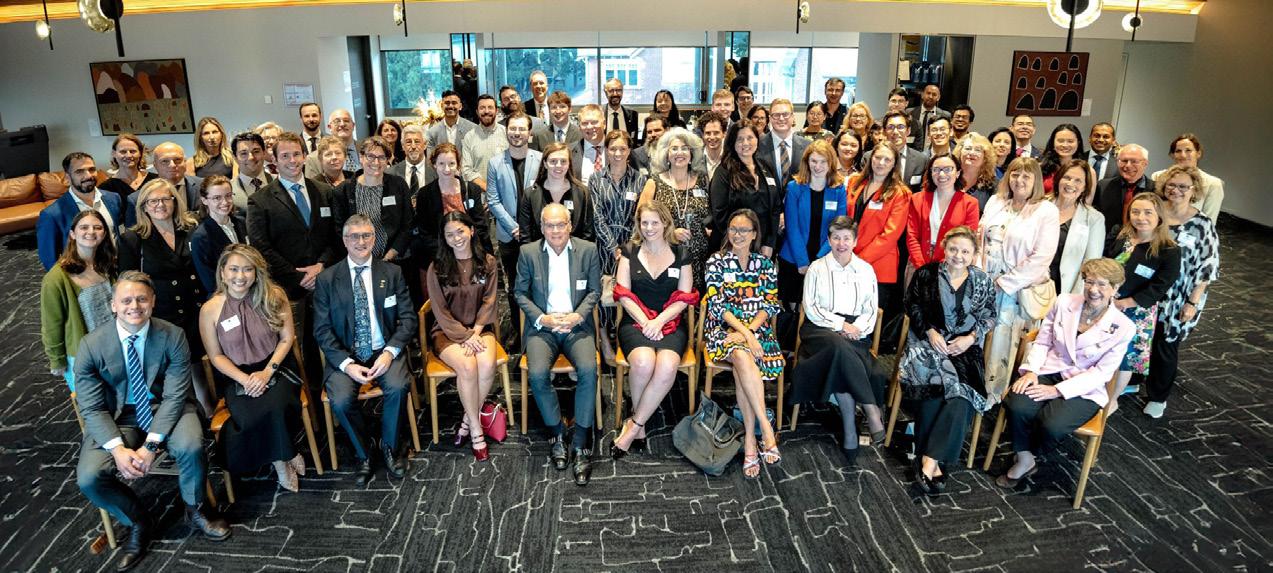
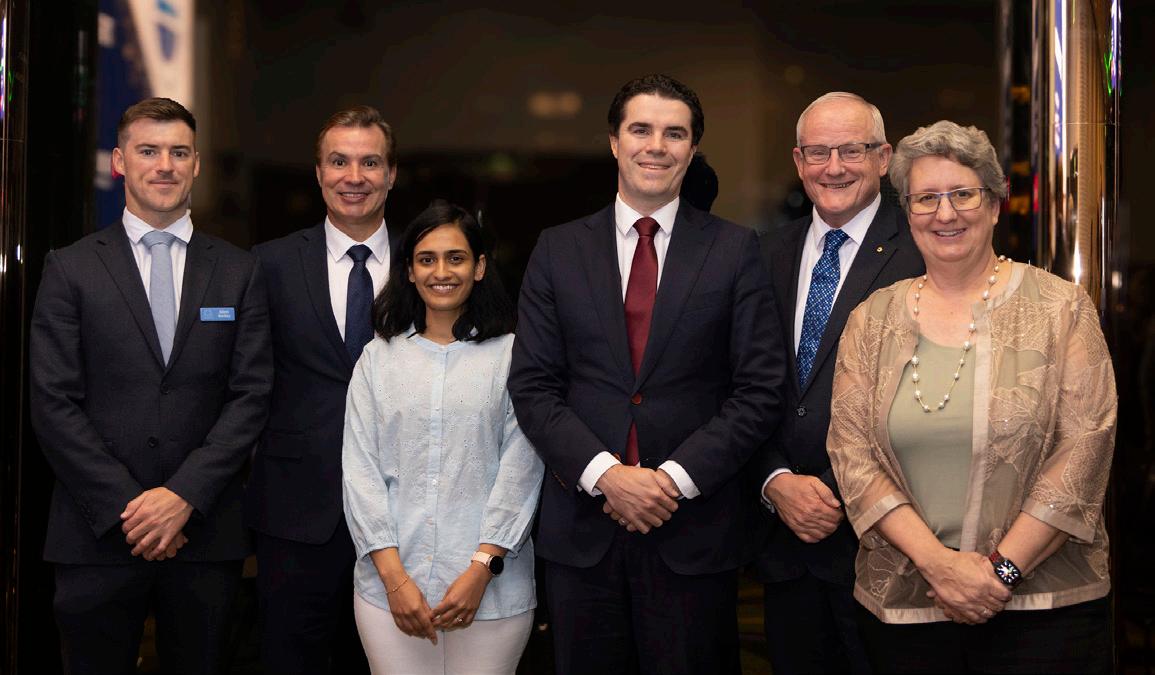

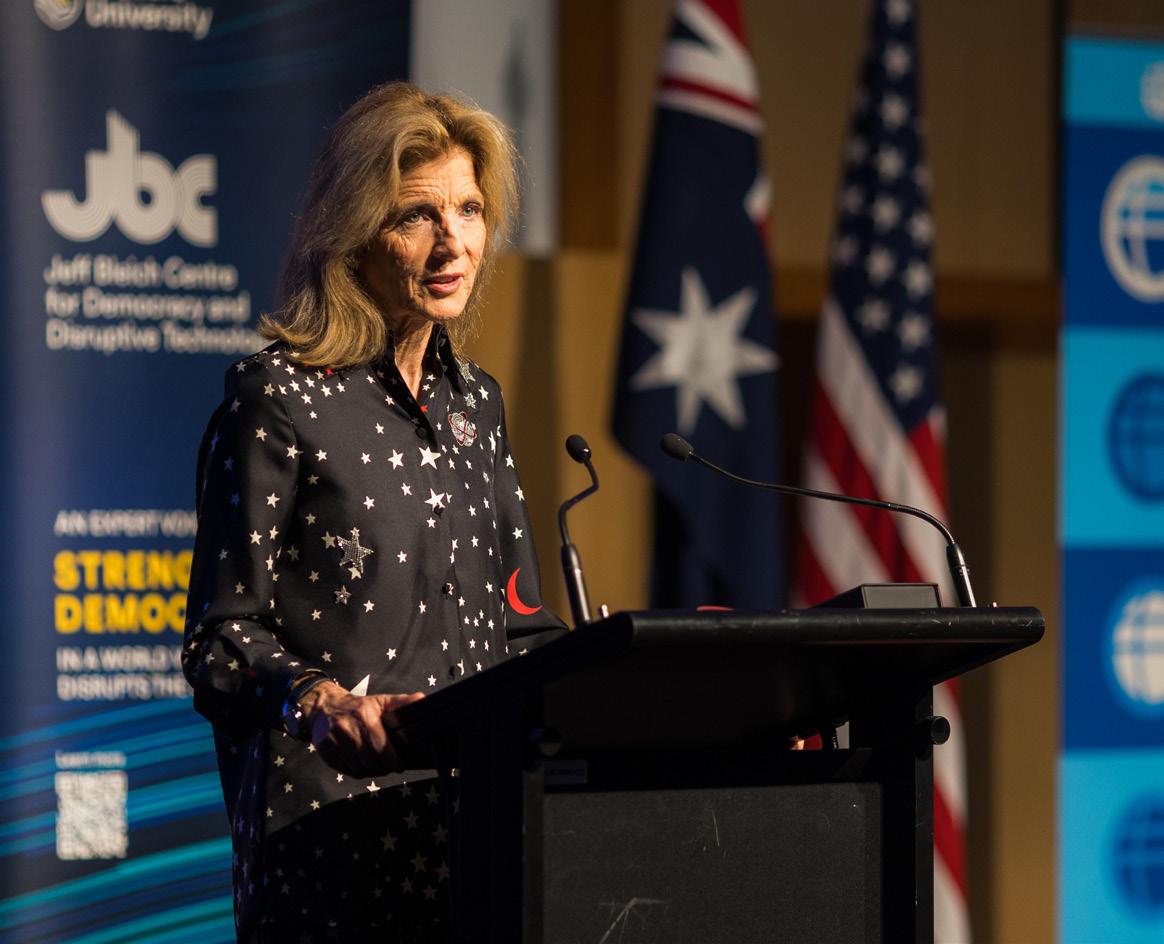

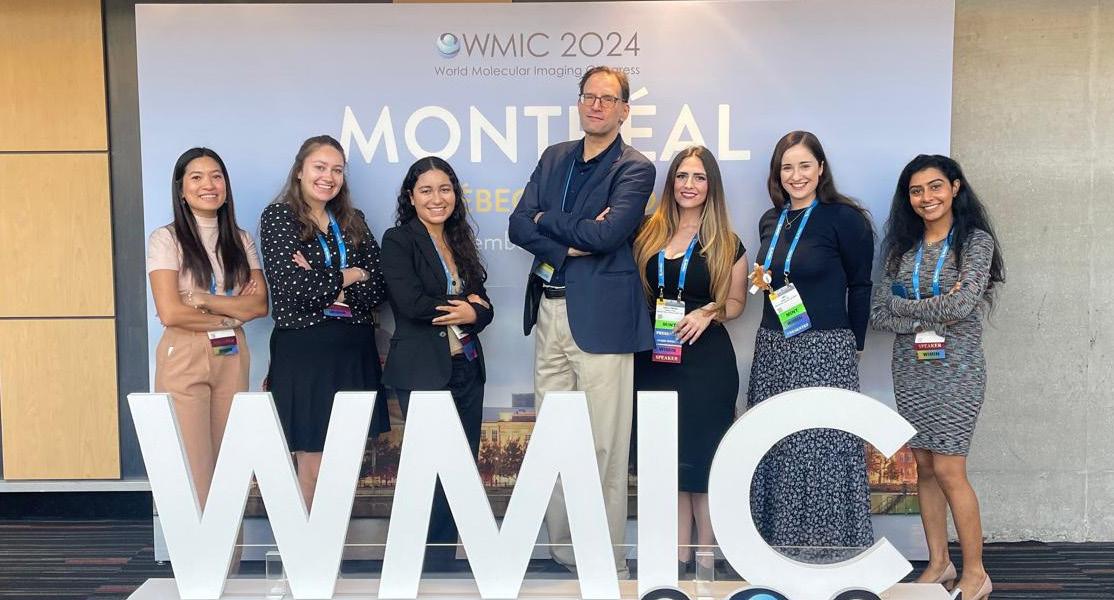
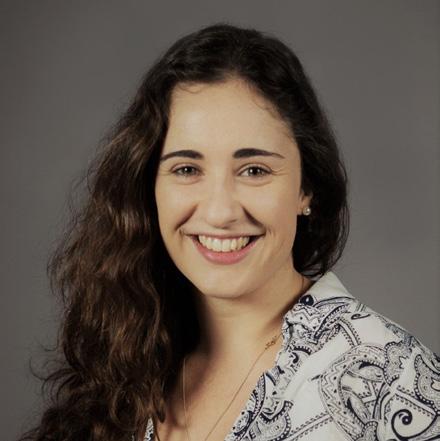
Dr Aria Ahmed-Cox PhD, 2023 Fulbright Future Scholar (Postdoctoral)
Home: Children’s Cancer Institute/UNSW
Host: Memorial Sloan Kettering Cancer Center
Field: Oncology, Cancer Research and Imaging
Brain cancers continue to have disproportionately poor survival rates among both children and adults. My Fulbright Future Scholarship at the Memorial Sloan Kettering Cancer Center, New York, focused on investigating the use of Cerenkov imaging and a copper-based nanoparticle labeled with the radioisotope copper-64 (⁶⁴Cu) to study nanomedicine delivery for brain cancers.
During this research, we discovered a unique subset of tumors across various cancer types, including breast and colorectal cancer as well as multiple myeloma, that demonstrated remarkable sensitivity to metal targeting. Cell lines derived from these tumors were linked to specific metastatic signatures, particularly favoring brain tropism.
This work leveraged cutting-edge imaging techniques and fostered collaboration across multiple disciplines, laying the groundwork for innovative therapeutic approaches to combat these aggressive tumors.
The findings of this research were presented at an international congress for molecular imaging, with support from the National Institutes of Health for travel.
The presentation attracted significant interest from scientists and clinicians, prompting the initiation of a multinational collaboration between the United States, Italy, and Australia to further explore the role of metal homeostasis in tumor growth and metastatic potential. These ongoing studies aim to develop therapeutic strategies targeting this subset of tumors.
Returning to Australia, I will drive this collaborative effort while working closely with US colleagues to enhance imaging capabilities, including the radioactive labeling of novel nanomedicines and Cerenkov imaging. These advancements are expected to enrich our understanding of tumor biology and improve drug delivery across diverse tumor environments.
Beyond the research, my Fulbright experience has significantly broadened my perspective, inspiring me to balance clinical training and research. While resuming my clinical work in Melbourne, I intend to deepen clinical and research connections in neuro-oncology, with a long-term goal to return to New York and further these collaborations. This scholarship has been instrumental in igniting new opportunities, advancing groundbreaking research, and shaping my career as a research clinician in neuro-oncology.
What did this experience mean to you and how has it impacted your life?
Though a common response, it is so for very good reason - my Fulbright truly has been a lifechanging experience. It is difficult to describe how fortunate I felt to have the opportunity to be immersed in cutting-edge cancer research at one of the finest institutions in the world, and to do so in New York City. Living in the “city that never sleeps” was a rollercoaster of experiences and growth that taught me balance in chaos. I enjoyed adapting to the small moments of joy and calm that comes with a normal life and routine; a Saturday morning Farmer’s market, Sunday dinners with friends, afternoons in Central Park; balanced amidst the rush and lights of Broadway, bustling tunnels in the MTA and busy street corners of Brooklyn.
It was both humbling and equally wonderful to navigate a new life and culture, whilst engaging those whom I met with the quintessential Australianisms that I grew up with, from Vegemite and pavlovas to nonchalant encounters with mobs of kangaroo and many a poisonous snake or Huntsman spider.
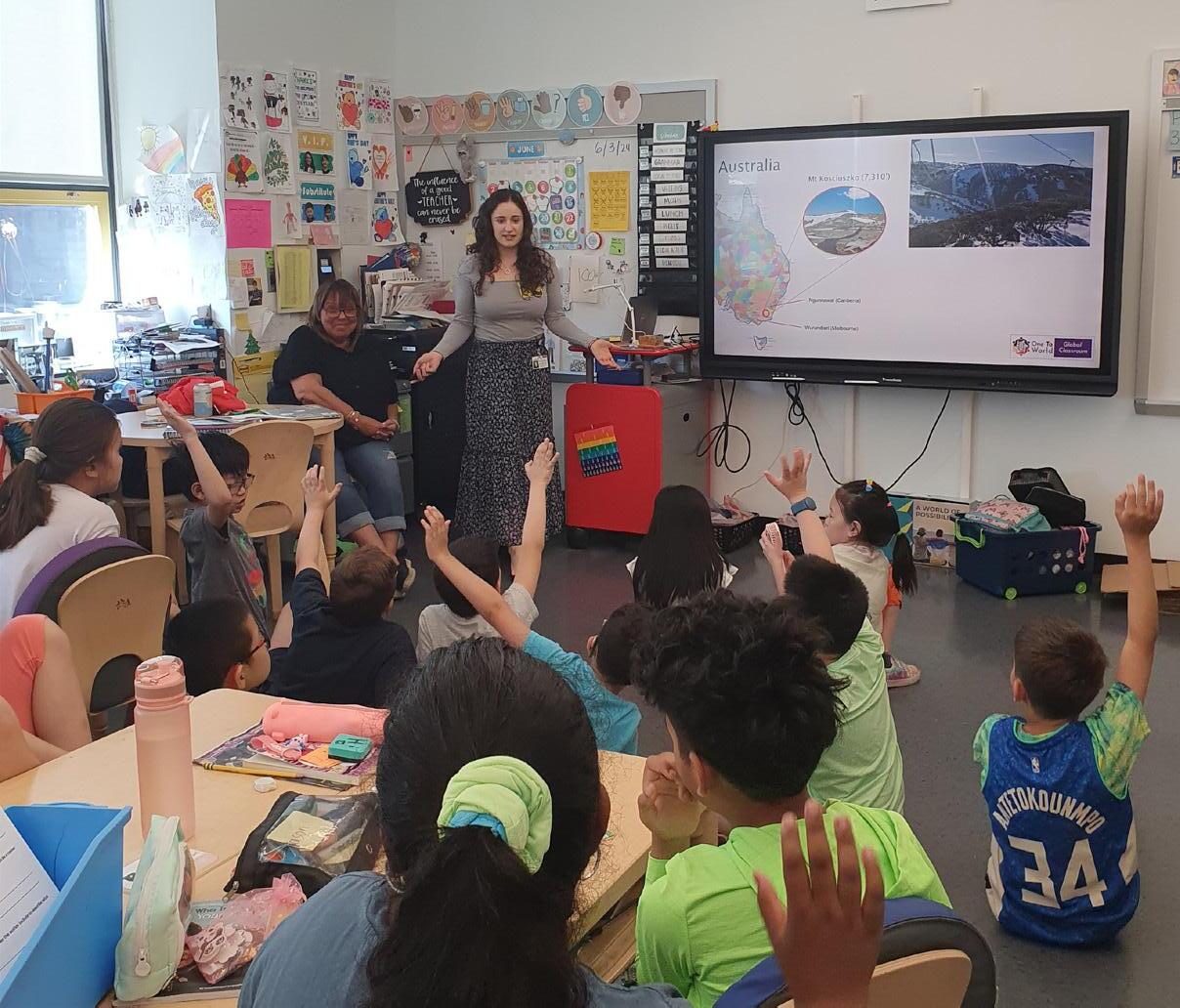
It was also a year of cultural milestones –including my first proper Halloween, and first Thanksgiving. The relationships I have made have brought an indelible richness to my life and made celebrating whilst away from family feel like a second home. Regardless of how long I stayed, it still felt so fast, and leaving was less a goodbye, and much more a promise to be back again soon.
The experience of my Fulbright program therefore feels like the beginning of something that, now started, can only continue to grow and will undoubtedly shape my personal and professional journey moving forward.
There were so many moments that collectively made my Fulbright experience an incredible year, and I will happily take the opportunity to highlight just a few.
It is hard to overstate how enriching the MSKCC community is. From the cutting-edge core facilities, training and resource access, first class seminars and global speakers (almost every day), to collaborative opportunities amongst researchers and clinicians alike – it is truly the environment to learn and be inspired by the latest scientific advances in cancer research and care. However, in this, an intrinsic passion for me has always been education: I love to learn and to teach and have done so in many forms (from one-on-one tutoring to lecturing) over nearly a decade. Arriving at MSK, I anticipated a steep learning curve and a good challenge in research. But a highlight in this year was the unexpected opportunity to supervise two incredible students (one undergraduate and one medical) as part of (several) summer student programs that MSK participates in annually. Sharing in my research training, and building skills in a research-based mentor-mentee relationship was a rewarding experience and definitely a highlight of engaging fully with the research and community of NYC.
On a similar theme, but slightly outside of my primary research focus at Sloan Kettering, I had the valuable opportunity to represent my host institution, Fulbright and a global cohort of women in STEMM (Science, Technology, Engineering, Medicine and Mathematics) during the inaugural NYC Soapbox Science.
I have known about Soapbox Science as a global grass roots outreach program for several years, and was incredibly excited and humbled to have been selected to speak and bring science into the community. So, there I found myself, on a sunny August afternoon in the Bandshell Plaza of Central Park, standing on a soapbox with a bubble gun (a visual prop and metaphor for nanomedicine) engaging members of the public and waxing lyrical about research and life as a scientist. As much as I could have done this anywhere else (including home in Australia), there was something truly magical about being able to be involved whilst abroad, and in New York City of all places.
Which brings me nicely to my final and probably most poignant highlight – as a multicultural city – the people I had the great privilege to meet on my Fulbright journey. From an Israeli climber working in Women’s Rights at the UN, a South African angel who knew the ins and outs of all things NYC Water, two of the finest ex-Phoenix turn NYC locals with the best girl (a Golden Lab), a Midwest rogue comedian, a Mexican Aussie now NYC resident with a warm heart and bright ideas, a Dutch genius who borderline lives in Central Park when not working and so many amazing researchers; I count myself unbelievably fortunate to have met so many wonderful people, all of whom continue to be dear friends.
What strategies did you use to connect with the local community?
Moving abroad alone to a new country requires strategies to acclimate and integrate. During my Fulbright interview, I shared my approach with humor and joy: climbing. Despite a mild fear of heights, I started bouldering four years ago, clinging to the wall more out of terror than skill.
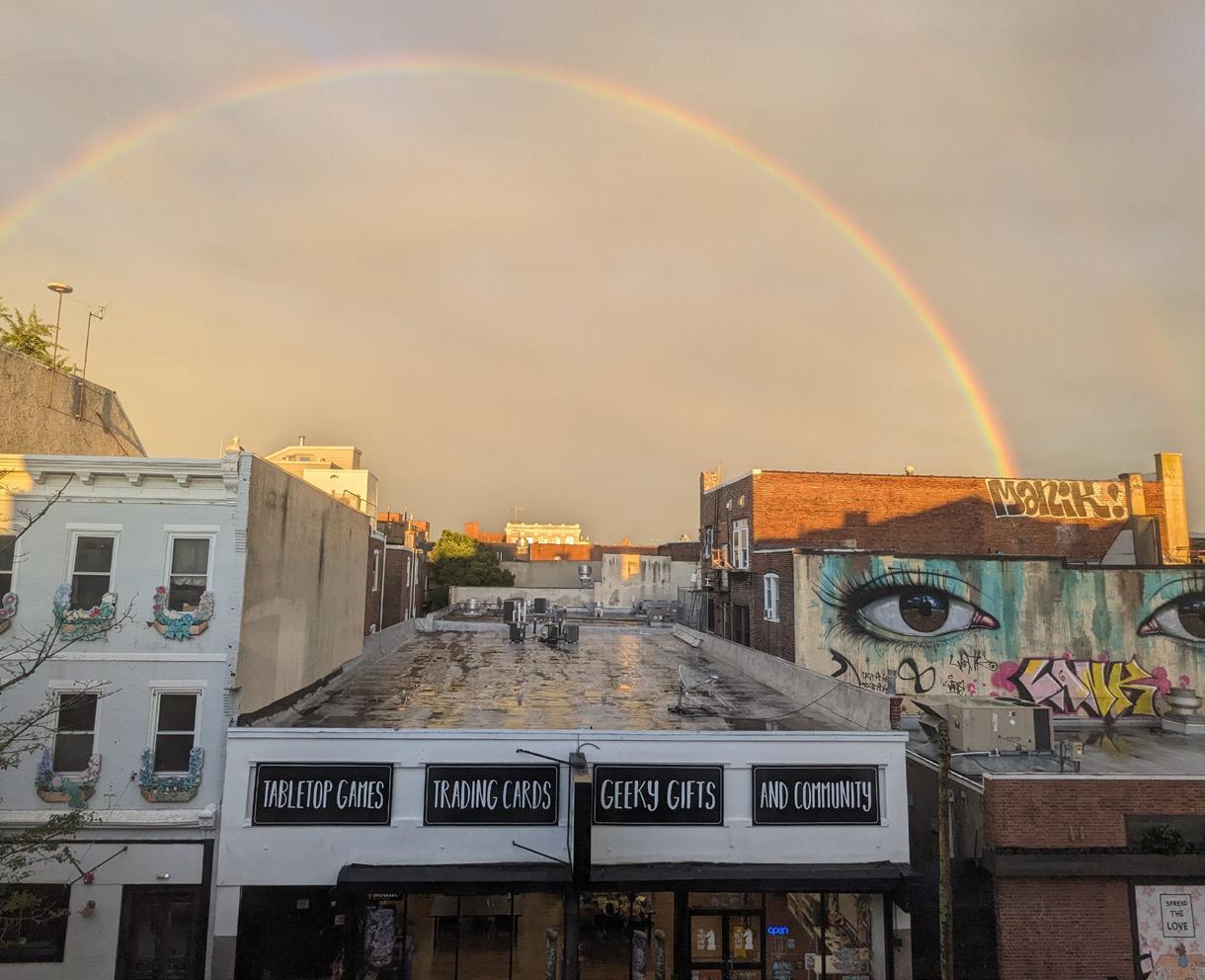
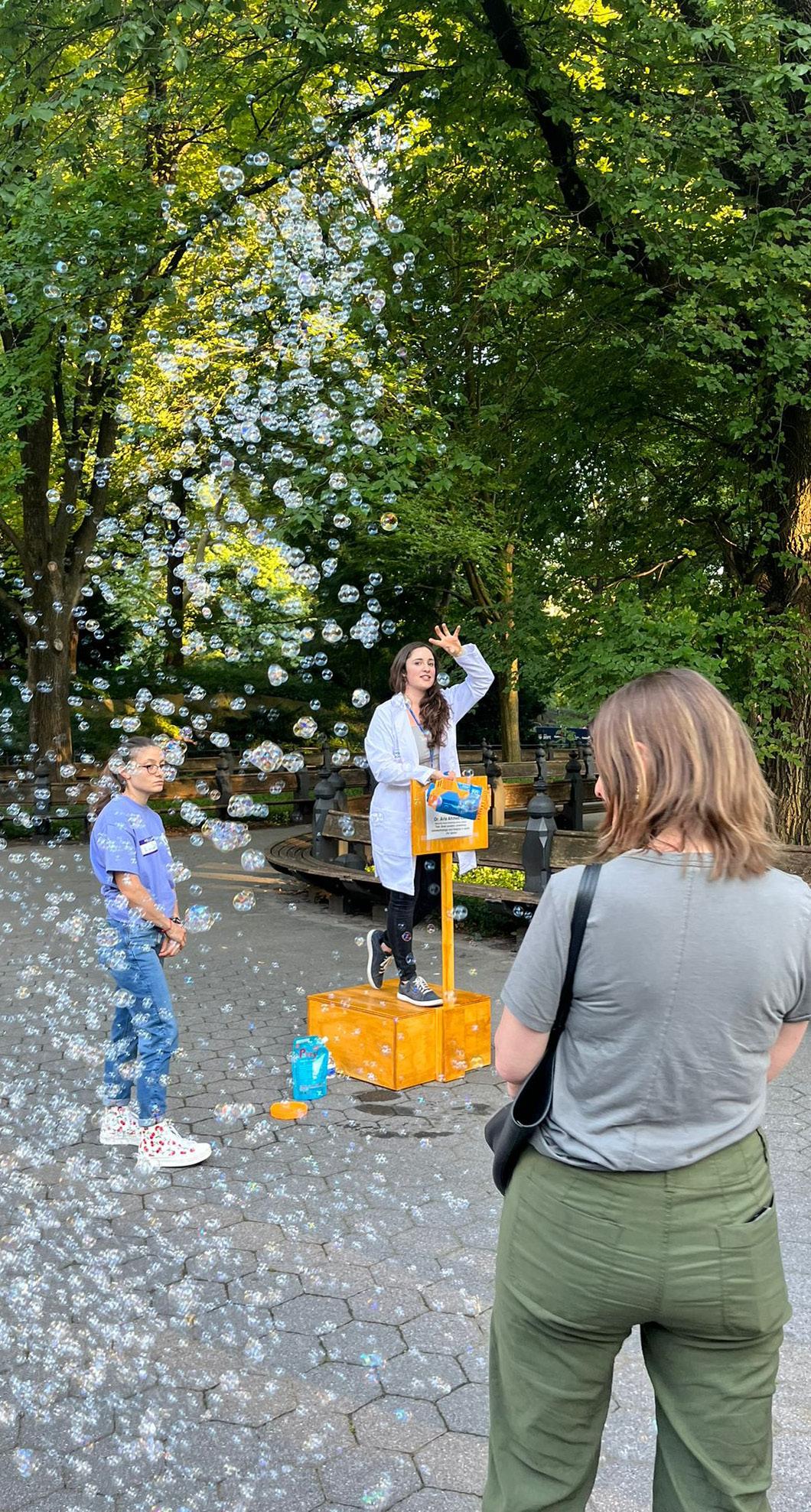
But the mix of fear, challenge, and growth quickly made it a key part of my social and physical routine. Naturally, one of my first stops in New York was a bouldering gym. The climbing community, as I rediscovered this year, is incredibly welcoming—bonded by a shared love of problem-solving and overcoming challenges. It gave me a support network and lasting friendships, essential during my time abroad.
Beyond climbing, I connected through the Fulbright network and One To World, joining cultural tours, meeting global scholars, and engaging with local schools to share Australian culture.
Public outreach opportunities, like representing women in STEMM at NYC’s inaugural Soapbox Science in Central Park, allowed me to share my research with diverse audiences. My approach to all these experiences was simple: be proactive, embrace authenticity, and make the most of every moment.
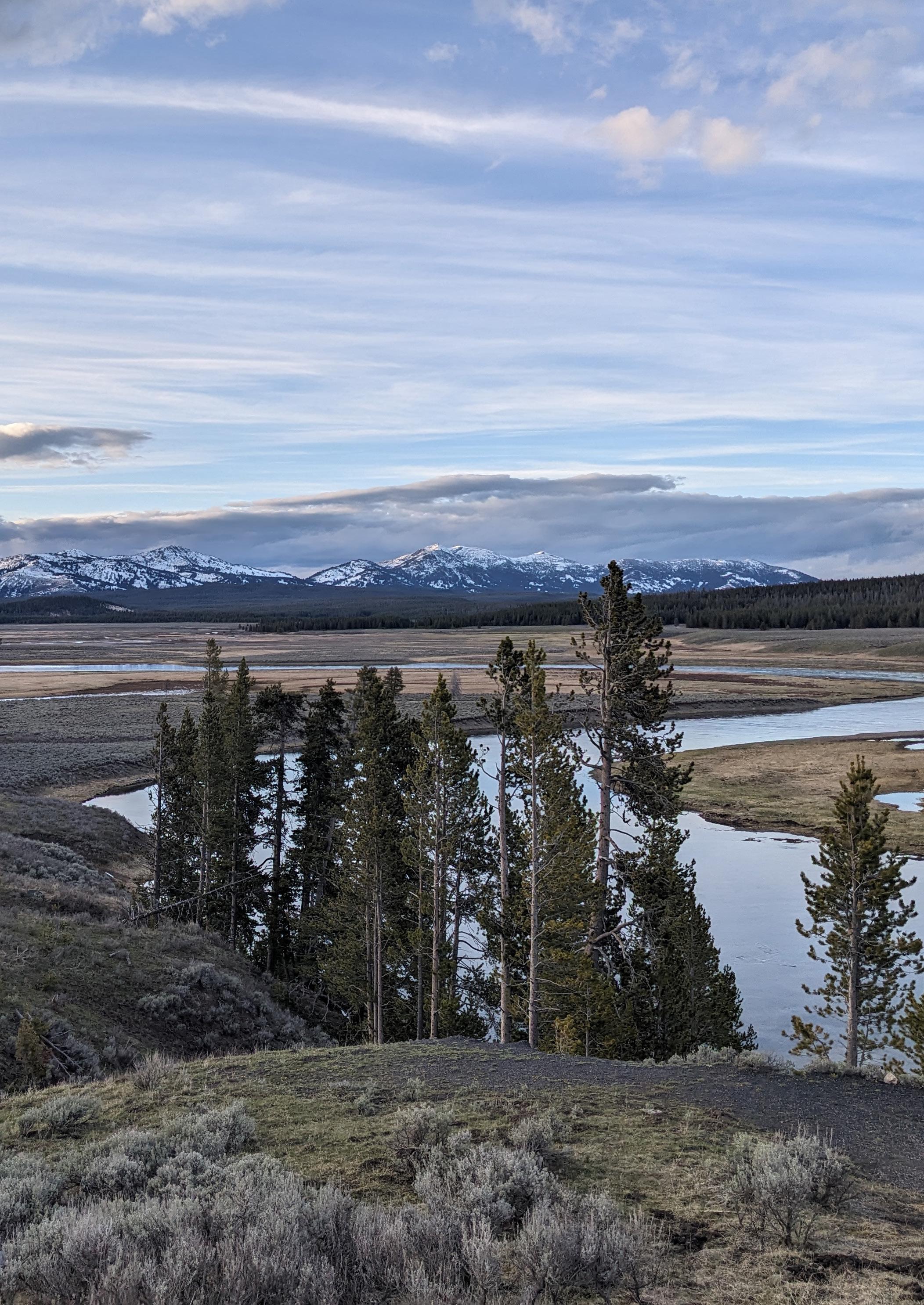
"Though a common response, it is so for very good reason - my Fulbright truly has been a life-changing experience. "
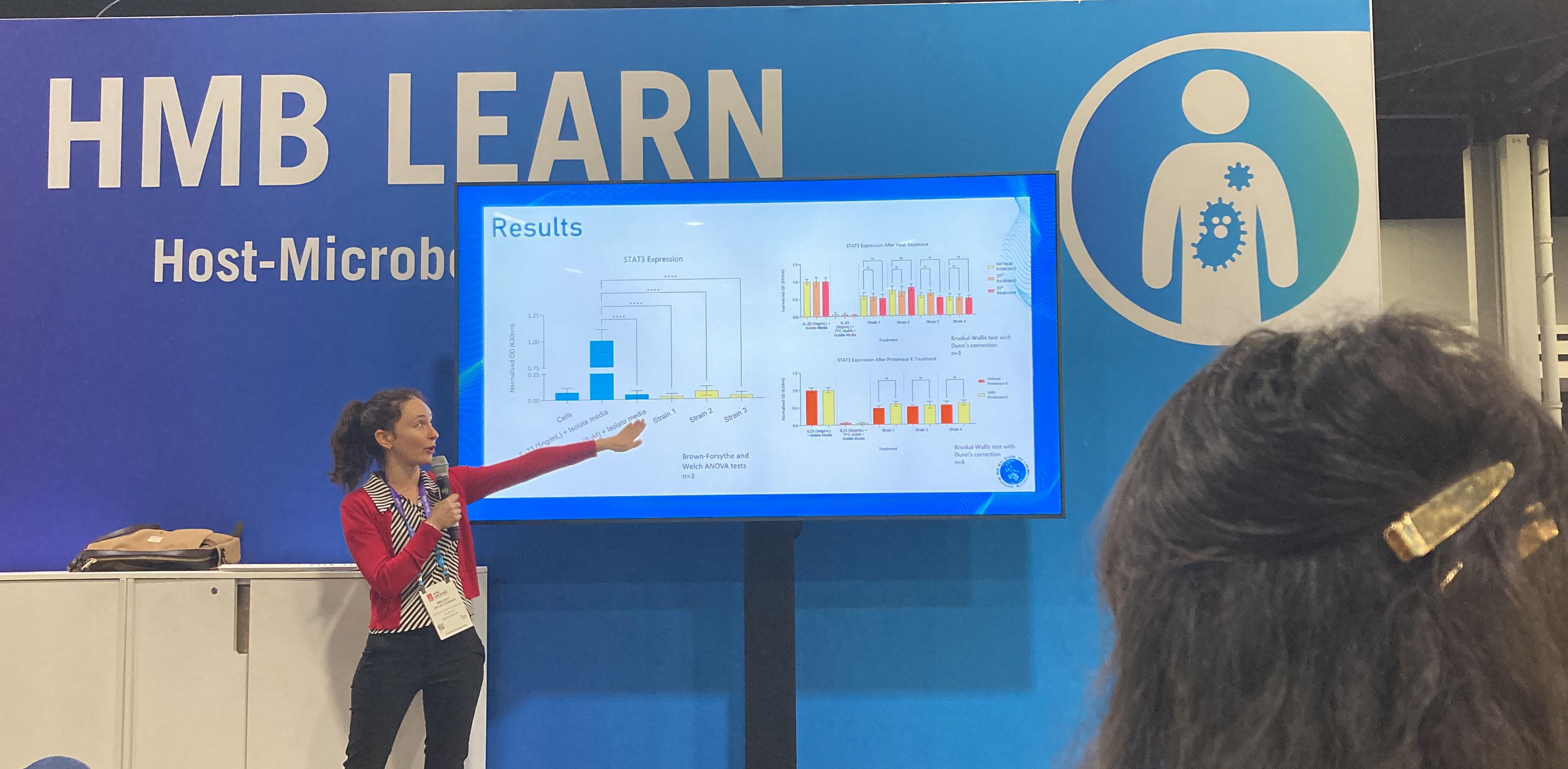
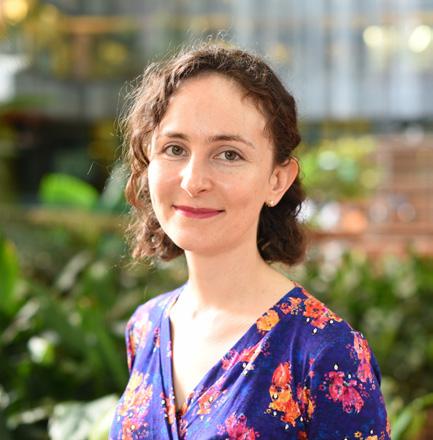
Melody Dobrinin, 2023 Fulbright Future Scholar (Postgraduate - VSR)
Home: Queensland University of Technology
Host: University of Arizona
Field: Biotechnology
The gut microbiome is a complex ecosystem of trillions of microorganisms that reside in the digestive system.
With proper dietary conditions, the metabolites produced by the gut microbiome contribute to a range of beneficial functions, including nutrition, metabolism, and immune regulation. However, an imbalance in this microbial community is linked to several diseases, including inflammatory bowel disease (IBD). This connection between IBD and the gut microbiome opens up the potential for using live biotherapeutics—live bacteria as therapeutic agents—to treat the disease.
Before embarking on my Fulbright scholarship, I had successfully isolated several bacterial species with anti-inflammatory properties, which could potentially be developed into treatments for IBD. These bacteria may progress to clinical trials either as live biotherapeutics or, after isolating the bioactive compounds they produce, as small molecule drugs.
For my Fulbright project, I proposed to collaborate with the Tfaily Lab at the University of Arizona, under the mentorship of Associate Professor Malak Tfaily.
The aim was to extract and isolate antiinflammatory molecules from these bacterial species and investigate their potential as smallmolecule drug candidates.
At the Tfaily Lab, I successfully grew the bacterial cultures and harvested their raw products for further analysis. These products were then sent for LC-MS/MS (Liquid Chromatography-Mass Spectrometry/ Mass Spectrometry) analysis to identify the metabolic components, such as sugars, fats, proteins, and other unknown molecules, present in the extracts.
Statistical analyses were performed to correlate the anti-inflammatory activity with the abundance of specific metabolic features, resulting in a shortlist of promising compounds.
Future research will focus on further validating these compounds. If successful, they could be developed into small-molecule drugs for the treatment of IBD.
Through this project, I have acquired rare interdisciplinary skills that blend microbiology and chemistry—skills that are highly valuable in my field. Upon completion of this project, I will be equipped with expertise across the entire pre-clinical drug development pipeline, positioning me for a successful career in this area of research.
The outcomes of this project could significantly advance the treatment options for IBD. By identifying anti-inflammatory compounds produced by specific bacteria, we are laying the groundwork for developing new, more targeted therapeutic approaches. The identification of promising small-molecule drugs has the potential to offer IBD patients more effective treatments, especially for those who do not respond well to current therapies.
Additionally, the success of this research could pave the way for further exploration into the role of the gut microbiome in other diseases, expanding the therapeutic applications of live biotherapeutics. Beyond the scientific impact, this project has provided me with valuable hands-on experience in pre-clinical drug development, particularly in microbiology, chemistry, and analytical techniques like LCMS/MS. This skill set will be crucial for future research and development in the rapidly evolving field of microbiome-based therapies. Ultimately, this work brings us closer to more personalized, microbiome-based treatments for chronic diseases.
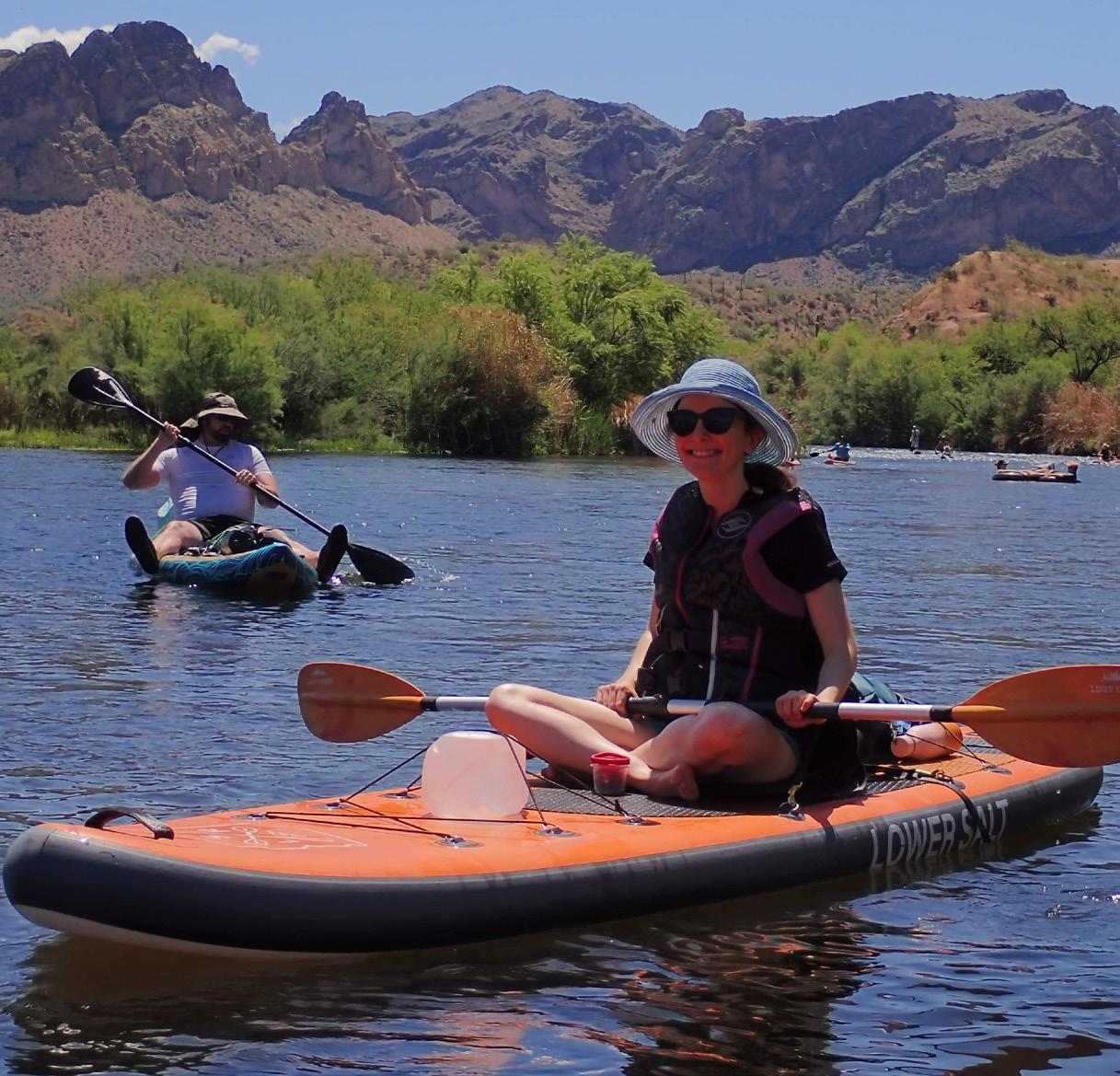
What did this experience mean to you and how has it impacted your life?
One of my greatest challenges in traveling to the U.S. was leaving behind my friends and family. I felt deeply rooted in Australia, comfortable in my surroundings, and confident in my sense of belonging. Moving to Tucson meant stepping out of this comfort zone. However, I knew that to make the most of the incredible opportunity I had been given, I needed to embrace new experiences, live in the present, and fully engage with life in Tucson.
As I settled in, I gradually made this transition. I formed lasting friendships that I know will endure, and I look forward to introducing them to Australia one day. Living in Tucson also gave me the chance to explore new places and cultures. I immersed myself in Native American and Mexican cultures and thoroughly enjoyed discovering new flavors in the local cuisine.
I was pleasantly surprised to learn that Arizona is a hub for scientific innovation, particularly in astronomy. I had the opportunity to visit remarkable sites like one of the world’s largest meteor craters and Lowell Observatory, where Pluto was first discovered.
Tucson also allowed me to reconnect with my passion for West Coast Swing. Surrounded by skilled dancers, I was able to improve significantly and even meet some of the dancers I had previously admired on YouTube. The weekly lessons helped me refine my technique, and I’m excited to rejoin the West Coast Swing community when I return to Australia.
Upon arrival, I immediately visited my lab and met my lab mates, making a point to eat lunch with someone each day. I also spent time with my housemates, going on hikes, dining out, and attending events together. Connecting with others new to Tucson was rewarding, as they were eager to explore with me. I joined local clubs such as the West Coast Swing dance club, ukulele club, and salsa/bachata group.
A few months in, I began organising my own events, especially hikes, and invited everyone I knew. To express my gratitude for their help, I shared Australian treats like Picnics and Freddo frogs, Minties, and Allens lollies. I also made ANZAC biscuits for ANZAC Day and marked Australian occasions with my friends. Additionally, I joined the local Fulbright chapter and the American Society for Microbiology to connect with people both socially and professionally.
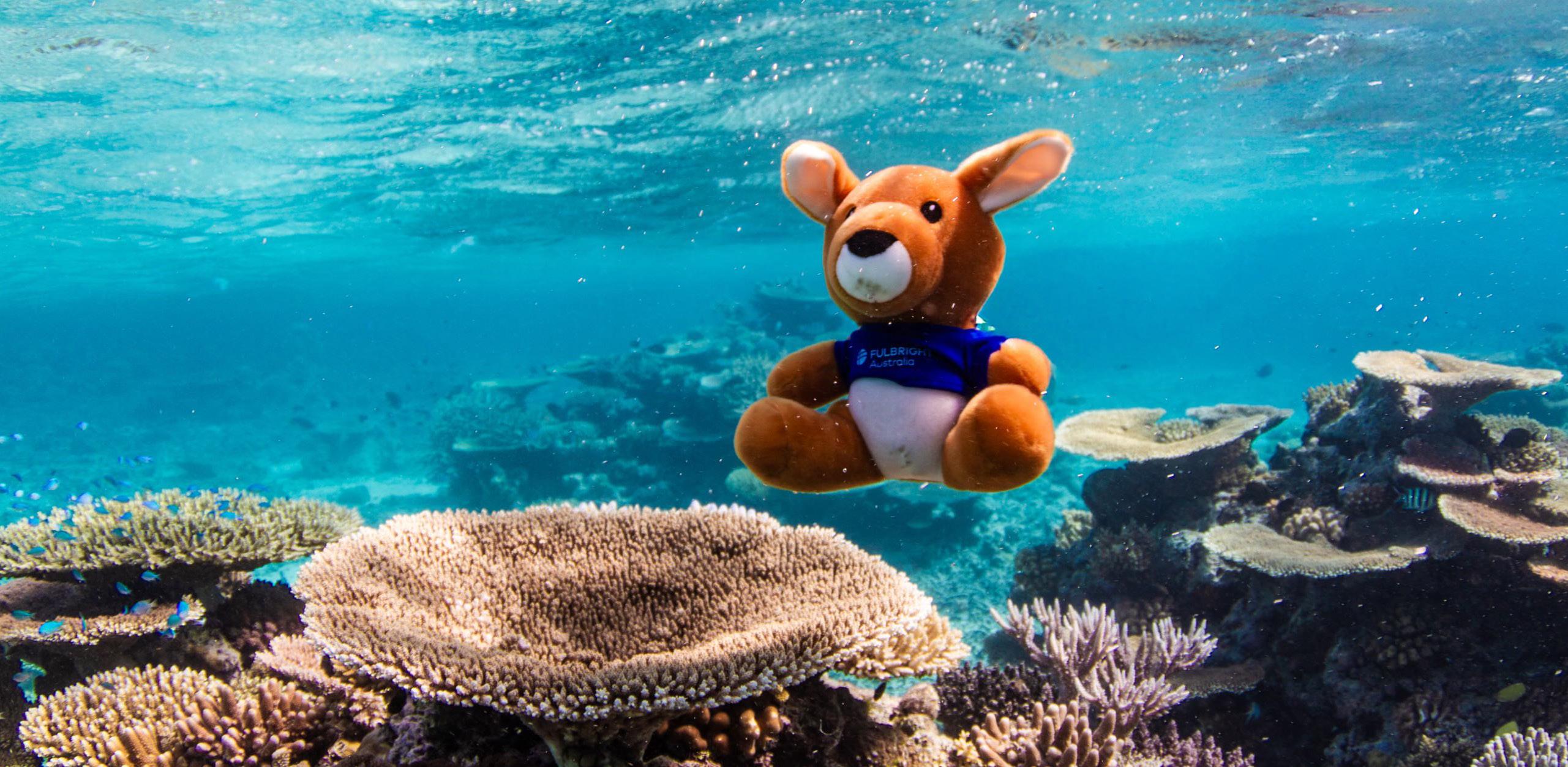
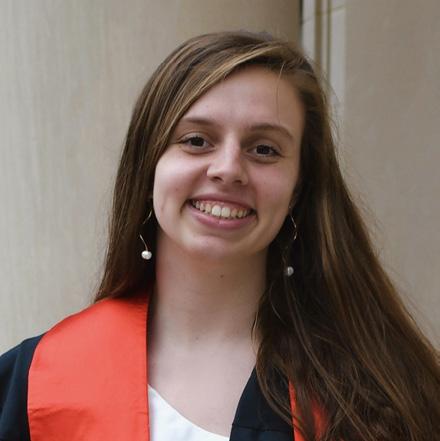
Home: Davidson College
Host: Macquarie University
Field: Marine Science
For my Fulbright project, I assessed the impacts of human activities on coral reef fishes, focusing on the effectiveness of zoning and protection from fishing within the Great Barrier Reef Marine Park (GBRMP).
Specifically, I compared fish populations and biodiversity between Habitat Protection Zones, where fishing is allowed, and Marine National Parks, where fishing is prohibited.
To conduct this study, we utilized remotely operated vehicles (underwater drones) to survey fish and marine habitats across five degrees of latitude in the marine park. This approach enabled us to cover over 26,000 square meters of habitat, representing an order of magnitude greater coverage than most studies in this field.
To my knowledge, this is one of the largest studies by area on fishes and marine habitats across the GBR.
The study revealed complex relationships between fishing, fish responses, and marine habitats. Key findings included:
• Higher numbers of reef fishes were observed in areas protected from fishing (Marine National Parks) compared to areas where fishing is allowed (Habitat Protection Zones).
• Despite these differences in abundance, we did not observe significant differences in the types of fish families between the two zones.
• The results underscored the indirect effects of fishing and highlighted the importance of habitat characteristics in influencing fish populations.
This research demonstrated the value of using new technologies, such as underwater drones, to address complex environmental challenges.
These tools allowed us to gather extensive data across a wide spatial scale, providing insights that smaller-scale studies could not achieve.
The findings have significant implications for marine conservation and resource management, particularly as environmental changes continue to threaten coral reef ecosystems.
I plan to submit my master’s thesis by the end of January and publish this study in a peer-reviewed journal, such as Coral Reefs, within the next few months. To achieve this, I will collaborate with my supervisors and a PhD student in our lab to finalize additional analyses.
Following my Fulbright experience, I intend to return to the east coast of the United States and pursue opportunities in research, public service, and international collaboration. I aim to apply the methods and insights gained from this project to protect marine ecosystems in my home region, possibly through roles in federal or state government, such as in North Carolina. Additionally, I am considering pursuing a PhD, with a focus on programs in the southeastern US, to deepen my expertise and contribute further to global conservation efforts.
My Fulbright experience has inspired a commitment to leveraging research to inform policy and foster international partnerships for marine conservation.
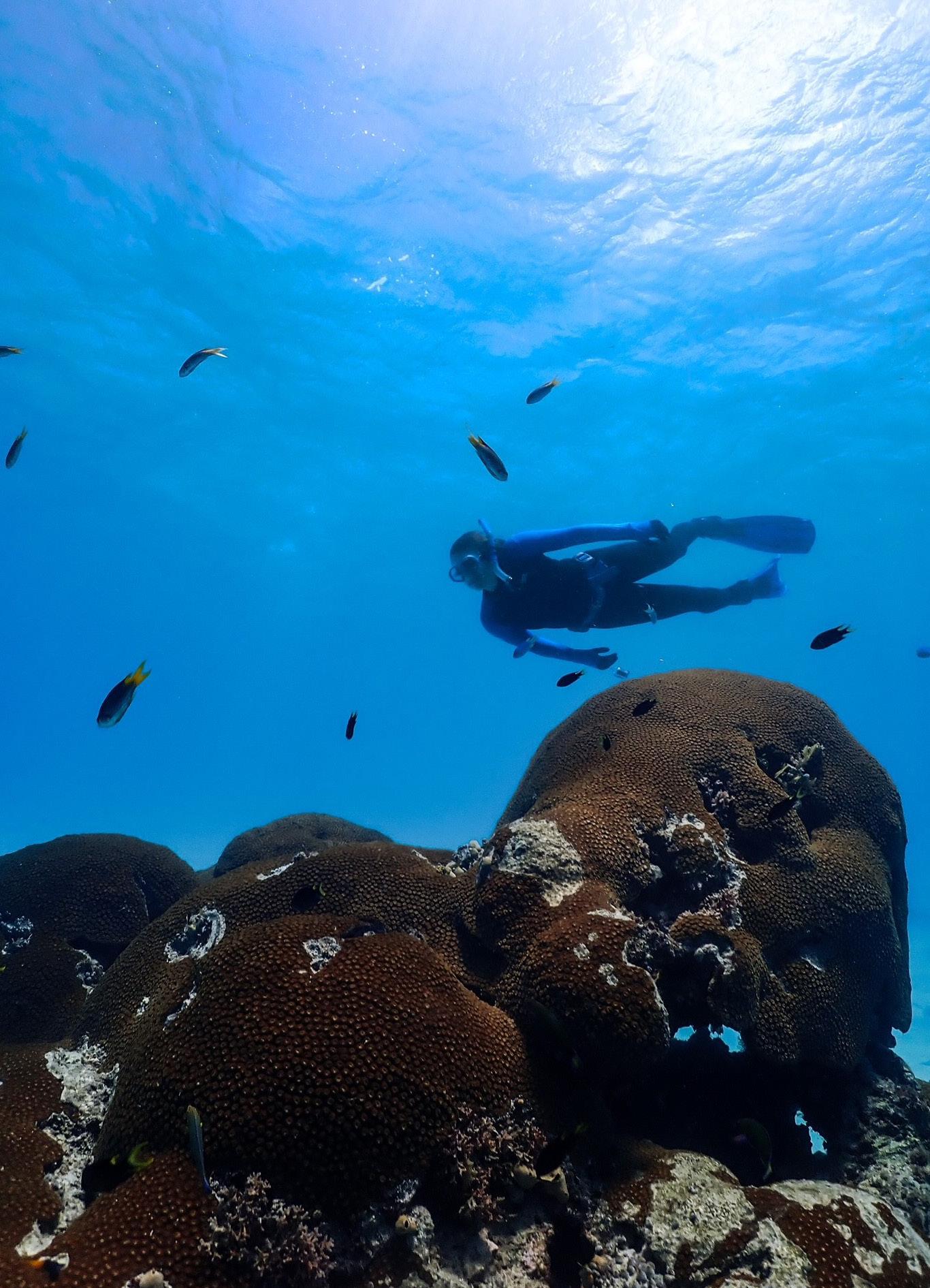
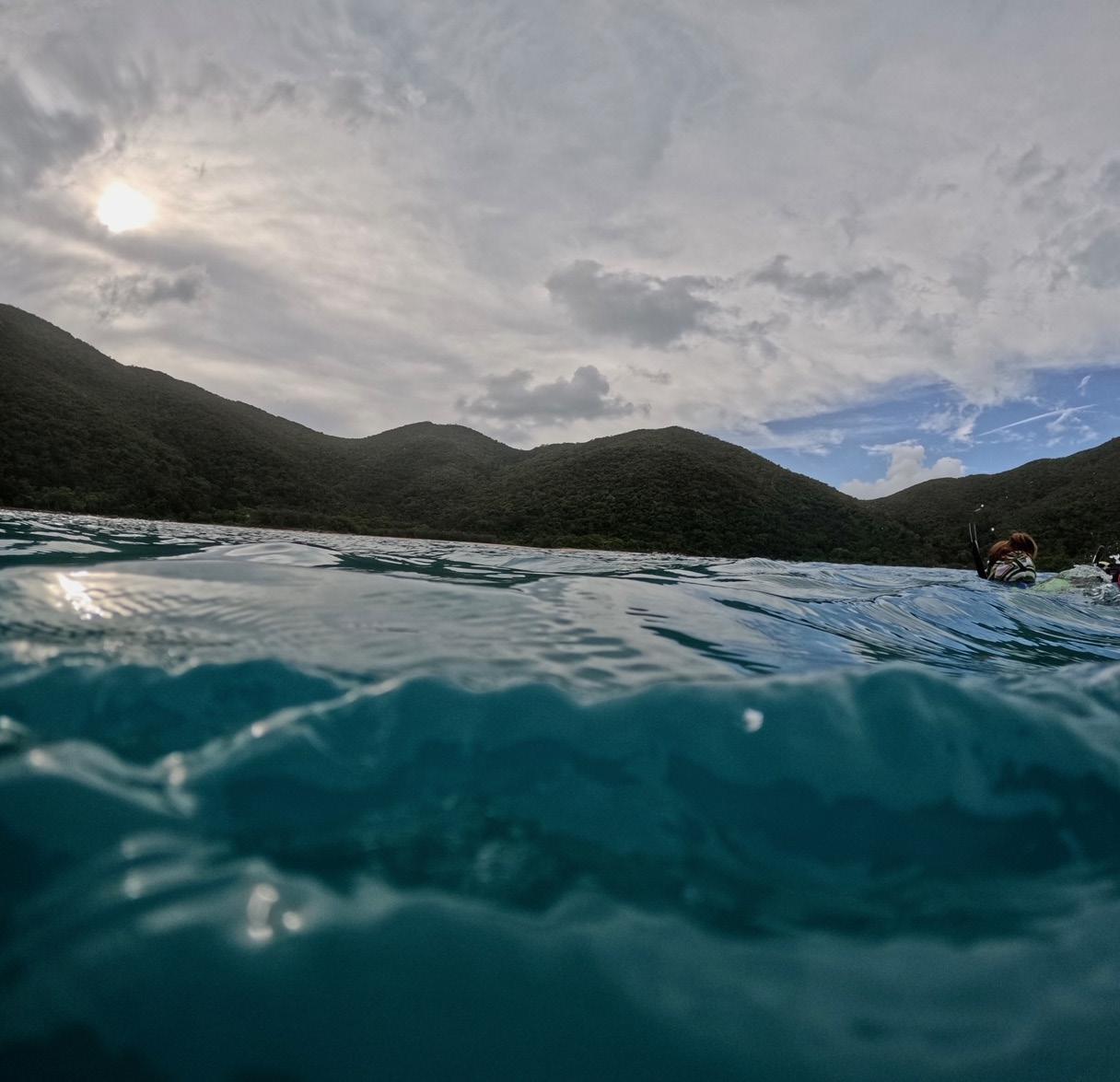
What did this experience mean to you and how has it impacted your life?
These past two years have truly changed my life. As someone who had only ever lived long-term as far as a 1.5-hour drive from their hometown, the experience of living abroad has shown me I am capable of far more than I ever imagined. I stand by this without hesitation: living abroad is not easy. Being away from family and close friends, the comforts of familiar food, and the cultural familiarity of home are significant challenges in the midst of adjusting to a new daily life. However, within these opportunities to push oneself outside of their comfort zone come incredible moments of joy, connection, and built confidence.
Living abroad and interacting with so many people from different nations has instilled a newfound hope and a realization that, at our core, we are all people eager for deep connection and working towards making this world a better place. Fulbright has also shown me the importance of approaching new topics or unfamiliar situations with empathy, a listening ear, and curiosity. I am incredibly grateful for the opportunity to develop this global perspective and to reflect on how my interests and passions align with my goals moving forward.
I have always been interested in the sciences, but now I truly see how complex environmental issues are global challenges, and effective solutions will only come with both cooperation and collaboration. I plan to carry these lessons into the future: the benefits of stepping outside one’s comfort zone, fostering curiosity, and cultivating meaningful connections..
What strategies did you use to connect
To connect with local host communities, I reflected on my own interests and explored ways to engage in Sydney through volunteering. For example, as someone who works in marine science, I enjoy learning more about boating and being out on the water. However, I had never learned to sail. After crossing the harbor bridge by train many times and seeing all the sailboats out the window, I wondered if I could also become a part of the sailing community. I filled out a form on a local sailing club’s website (Sydney Amateurs Sailing Club) and connected with a skipper who invited me to crew on one of his boats (even though I had no experience!).
I started sailing with him during the winter racing series beginning in June 2023 and am looking forward to competing in the summer series throughout the remainder of my time in Australia. I’ve learned a lot about sailing, including the names of all the ropes, which sails are most appropriate for specific weather conditions, and how to tack into the wind (changing the direction of the sailboat). I’ve had the opportunity to get to know his family members who also crew and to engage with other members of the club during the social gatherings after race days. I am pleased to report we have won several races and taken home a few second- and third-place finishes!
Another way I engaged with my host community was through volunteering at the FIFA Women’s World Cup, held across Australia and New Zealand. I grew up swimming and competed for my college’s NCAA Division I team, and I was eager to become involved in activities that promote women’s sports in Sydney. I connected through the volunteer form on their website, completed a follow-up form and interview, and was eventually selected as a transport volunteer at the Park Hyatt in The Rocks. In this role, I welcomed distinguished guests and ensured the smooth functioning of transportation. I also volunteered as a flag holder on the field during matches in Sydney.
One memory I will never forget is holding the Ireland flag on the field before the opening World Cup match at Accor Stadium in front of a crowd of 70,000 people. Another unforgettable moment was walking through the stadium and watching the screens as Courtney Vine scored the winning goal in Australia’s tied shootout game.
The cheers throughout the stadium truly emphasized the power of sports to bring people together, regardless of backgrounds or nations. Getting to know fellow volunteers from the local area, all equally passionate about sports, was incredible. We all felt how special it was to be involved, and I am incredibly grateful to have been part of such a once-in-a-lifetime event.
I was also fortunate to be part of an incredibly welcoming and supportive lab group, many of whom are local to Sydney. They invited me to go fishing, watch State of Origin games (where I learned the rules of rugby), and join day trips to explore the beautiful nature surrounding Sydney. These experiences helped me build meaningful connections and gain a deeper appreciation for my host community.
The highlight of my Fulbright experience truly has been the people I’ve met. I’ve created lifelong friendships with other Fulbrighters in the cohort, fostered connections with lab members who I hope remain close friends and collaborators for years to come, and built community in this city so far from my home country. John, Camille, Eliza, Abigail, and I had the opportunity to explore Sydney together, from attending shows at the Opera House to exploring the incredible beaches and attending local sporting events (the Easter Show at the Sydney fairgrounds, specifically the petting zoo, was one of our favorites). I am incredibly grateful for the lab group I had at Macquarie and my supervisors throughout these past two years. As a master’s student, I was surrounded by other students and interns in the lab who were supportive of each other’s research and pushed each other to think big and bold.
Finally, I’m incredibly grateful to have created such a close-knit community in Sydney through relationships and friendships with other international graduate students, athletes, and at places like the sailing club. Being able to connect with so many people from so many different cultures, nations, and backgrounds over common interests and shared experiences has truly been one of the highlights of living abroad.
The other highlight of my Fulbright experience was getting to experience the beauty of Australia’s natural features and landscapes. My work took me to remote coral reefs and islands across the Great Barrier Reef. We saw sunrises, sunsets, the diversity of colors of reef fishes, and the Milky Way galaxy throughout the night sky.

"I've always been interested in the sciences, but now I truly see how complex environmental issues are global challenges, and effective solutions will only come with both cooperation and collaboration."

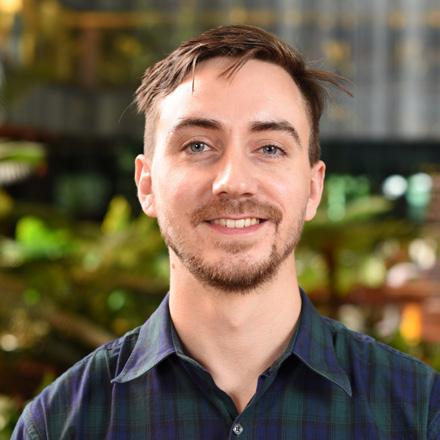
Home: Queensland University of Technology
Host: University of Arizona
Field: Tissue Engineering

My Fulbright project focused on identifying novel therapeutic agents to mitigate the foreign body response (FBR) to biomedical implants. Breakthrough devices such as pacemakers and orthopedic hardware have revolutionized healthcare, significantly enhancing patients' quality and longevity of life. However, up to 30% of biomedical implants elicit an FBR, leading to the formation of a fibrotic capsule around the implant. This encapsulation disrupts the implant's interaction with the body, often resulting in rejection and necessitating surgical removal.
The FBR to biomedical implants poses a significant challenge, increasing healthcare costs, reducing system efficiency, and imposing a substantial burden on patients. My project aimed to identify therapeutic agents capable of reducing or inhibiting the FBR. However, a key obstacle in this effort is the absence of suitable animal models that accurately replicate the human FBR. To address this, I structured my project around three interconnected aims:
Aim 1: Develop an in vitro, cell-based platform for high-throughput screening and dosing of potential therapeutic candidates.
Aim 2: Create an in vivo mouse model to replicate the human foreign body response
Aim 3: Test promising therapeutic candidates identified from the in vitro platform in the developed in vivo FBR model.
Aim 1: A robust in vitro platform has been successfully developed, enabling the screening of potential therapeutic agents. Initial screening efforts are already underway.
Aim 2: The in vivo mouse model has undergone several pilot studies and is nearing finalization.
Aim 3: Once the in vivo model is finalized, therapeutic candidates identified through the in vitro platform will be tested.
To ensure the project's completion, my host laboratory has offered to sponsor a new J1 visa and stipend for me to return and continue the work. Following this, I plan to complete my PhD in Australia and then explore opportunities for a postdoctoral position to further advance research in this critical area.
Through this project, I aim to contribute to developing innovative solutions to a longstanding biomedical challenge, ultimately improving patient outcomes and reducing the societal burden of implant rejection.
What did this experience mean to you and how has it impacted your life?
My Fulbright has been an incredible, highly rewarding and life-changing experience.
From a professional perspective, my Fulbright in Dr Geoffrey Gurtner’s and Dr Kellen Chen’s laboratory at the University of Arizona opened my eyes to the value of having a multidisciplinary team with expertise spanning preclinical research, clinical, and translational. With a strong career focus on translational research and commercialisation, the Gurtner-Chen lab provided an opportunity to understand to process by which research can progress from the benchtop to the bedside. My supervisors were incredibly supportive of my fellowship and project through encouraging me to learn as much as possible, but also share my expertise with my colleagues.
My time at the University of Arizona highlighted the difference in scale of research between Australia and the US, and more importantly, how important it is for sufficient funding to be available to build meaningful and lasting collaborative projects and partnerships. This is something I hope to advocate for back in Australia.
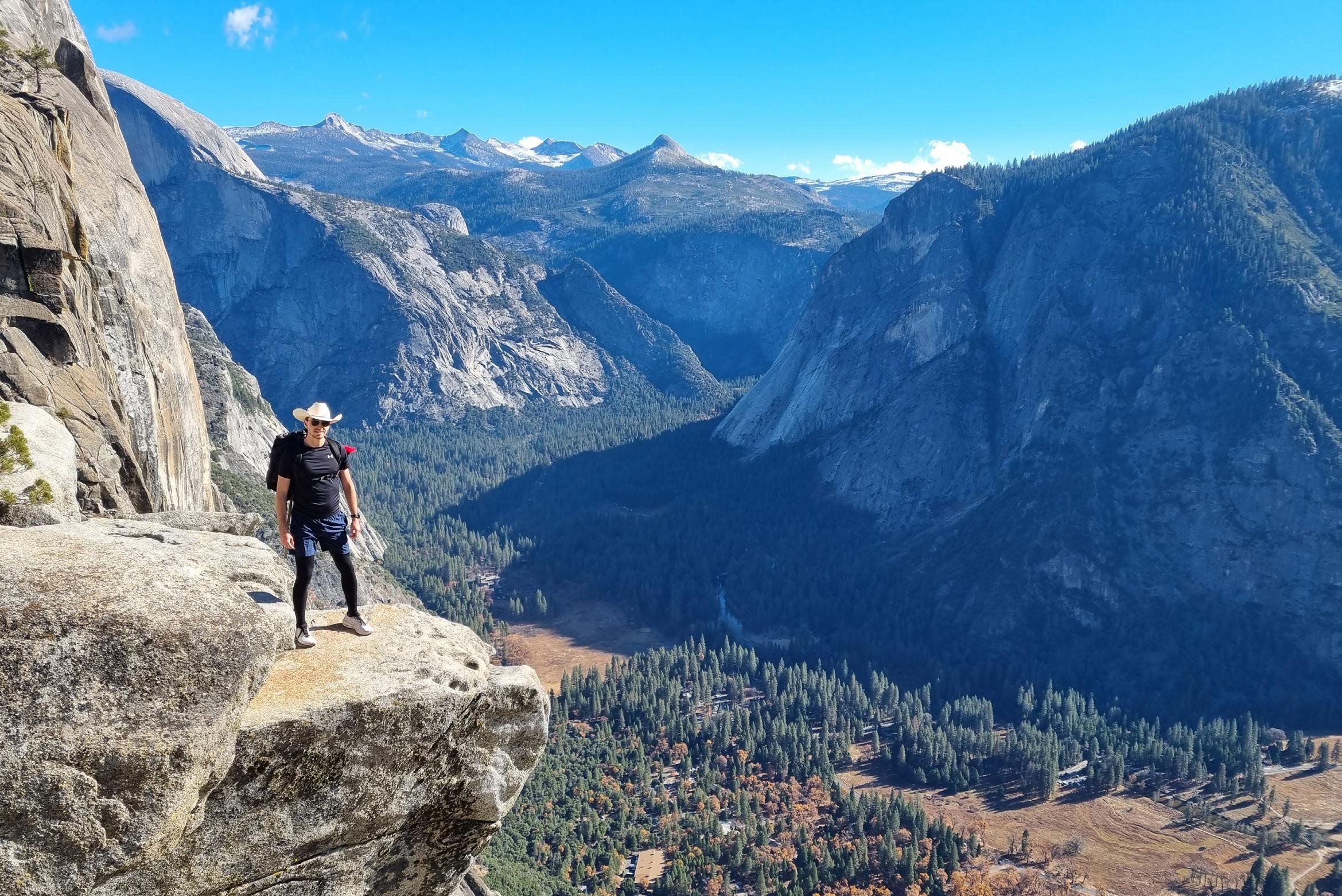
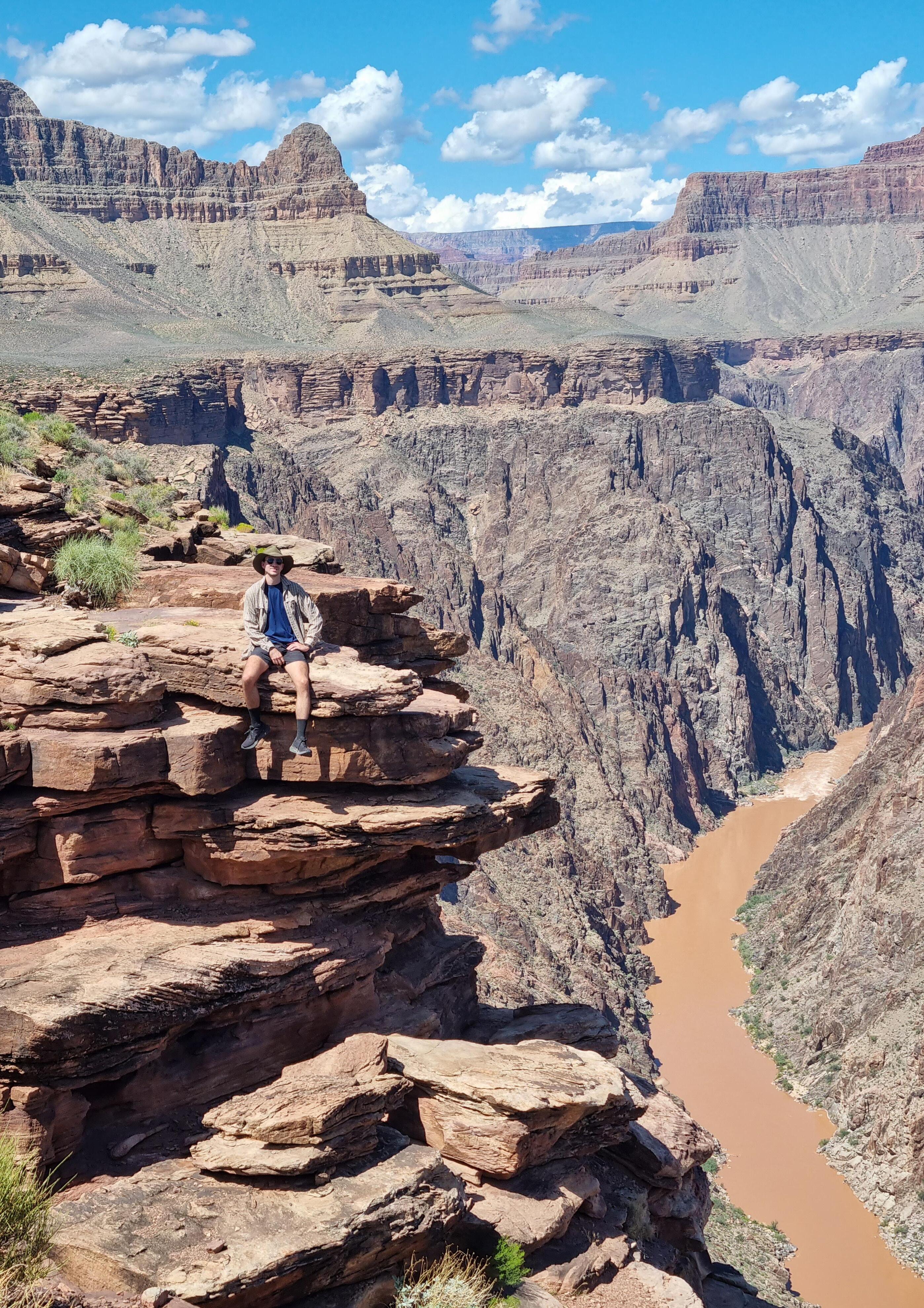
From a cultural perspective, my time in Tucson Arizona was extremely interesting and positive. As an individual who enjoys nature and the outdoors, I found myself very comfortable living in Tucson due to the broad outdoor activities available. From running through Sabino Canyon and the Saguaro National Parks after work, to skiing up on Mount Lemmon in winter, I found Tucson to be one of the most beautiful and interesting places in the US. From a cultural perspective, I enjoyed the strong western (or cowboy) culture, as well as Mexican influence in the region. Tucson is the US’s first UNESCO city of gastronomy, and as such, the food and culture in the city and region was exceptional. From a personal perspective, my Fulbright was an extremely rewarding as it opened my eyes to the importance of education and cultural exchange.
Whilst there are many differences culturally between Australia and the US, I discovered there were more similarities than differences. People were eager to learn and hear about Australia, and similarly eager to share their stories about themselves and life in the US. I have thoroughly enjoyed my time in the US and return as a firm supporter of this program and in the importance of bilateral collaboration and sharing of ideas..
The orientation in particular I found helpful in establishing strategies to help me meet and assimilate with my local host community. When joining the lab, I made sure to speak, interact and get to know each lab member. This allowed me to understand their interests and broader activities they participated in their spare time. I found that initially playing basketball with members of my lab introduced me to broad range of graduate students, particularly in the College of Medicine.
Through my time in Tucson, we played often twice a week, as well as getting together for lunch and other social gatherings.I was also lucky in that my lab was comprised of some interstate members, who were eager to explore Tucson and the broader state of Arizona. As such, I would go hiking, running, and skiing in the National Parks around Tucson with members of the lab, as well as undertake trips to Phoenix, Flagstaff, and the Grand Canyon.
Having out-of-state lab members also meant that when they returned home to visit their families and friends, I was also invited to join them, which I was lucky enough to be able to do. Through my time in Tucson, I also sought to engage in different social, cultural, and sports events with different lab members and their own networks. This included joining the fantasy football league, which I ended up making it to the final round and the Super Bowl.
I also attended multiple college football and basketball games, as well as celebrated cultural events such as 4th of July, Halloween, and Superbowl Sunday. More broadly, I was able to connect with others over the great quality of Mexican food available in Tucson, and visited many different restaurants together to try the food. I think I was able to form strong bonds across a diverse range of different networks due to me approaching new and different activities with an open mind, but also doing my own research to try and offer my own activities and events to engage in. I think this was important in adding reciprocal value to the friendship, despite not being from the area.
"My Fulbright has been an incredible, highly rewarding and life-changing experience."
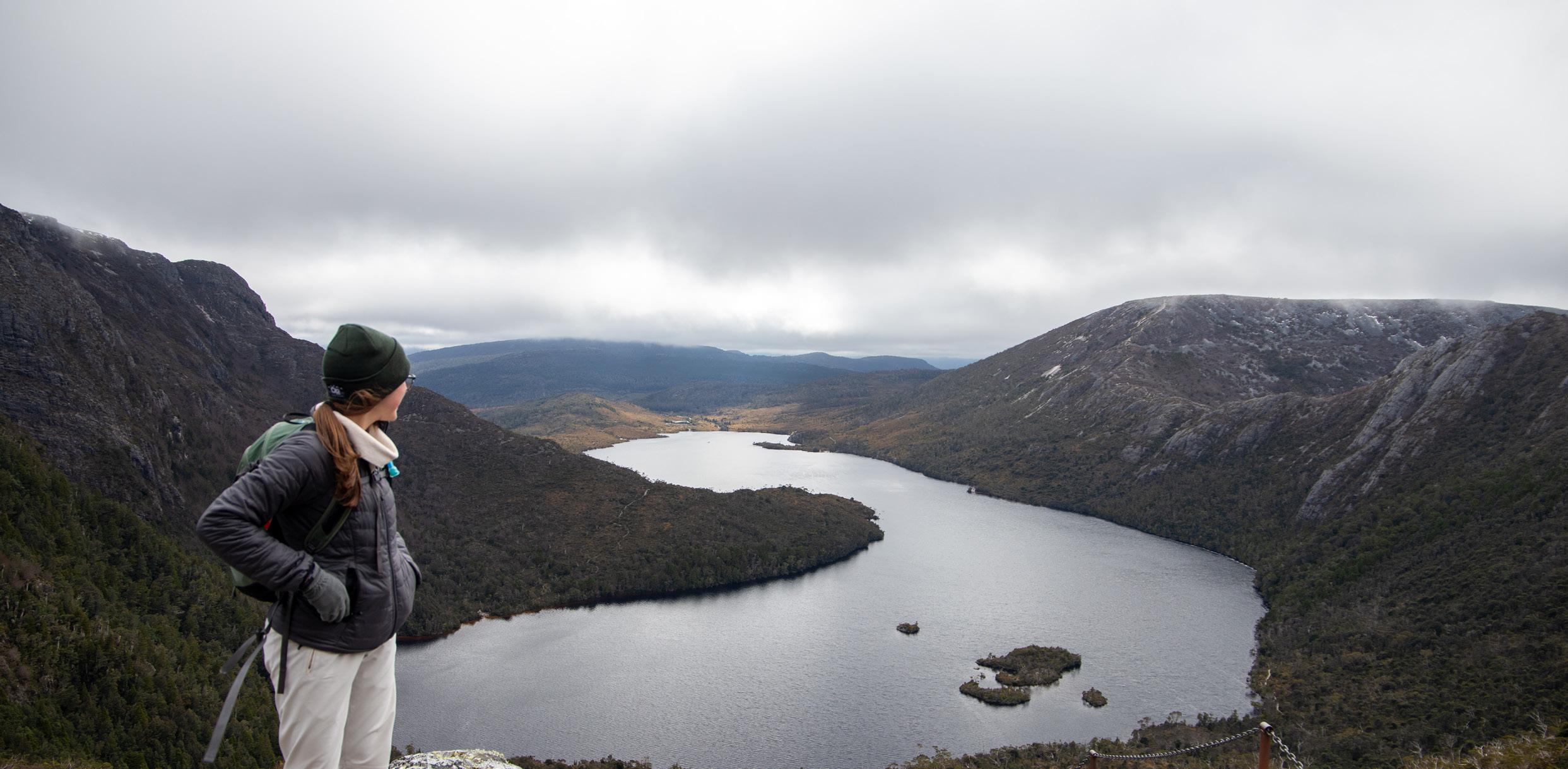
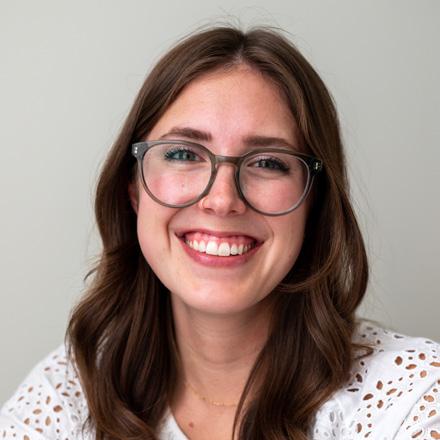
Lillie Haddock, 2023 Fulbright U.S. Future Scholar (Postgraduate - VSR)
Home: University of Arkansas
Host: The University of Melbourne
Field: Environmental Science
My project with Dr. Avril Horne at the University of Melbourne positioned me in the Infrastructure Engineering Department, which focuses on directly improving and informing the management of water resources through policy analysis, market modeling, and interdisciplinary projects. She and I developed a project that would build off and contribute to her current projects that explore environmental water management and allocation under climate change. The University of Melbourne is an excellent place for researching water availability tradeoffs across irrigation, environment, industry, and traditional users, due to the proximity to major water trade regions of the Murray-Darling Basin.
My project consisted of a literature using peerreviewed journal articles, textbooks, policy documents, and state and local level water resources management document. I spent a few months at the beginning of my grant learning everything I could about the MurrayDarling Basin system, from policy, public perception, Cultural importance, and current water modeling efforts.
I feel like a got an unbiased, objective look at how the system works. Next, I contributed to a water resources modeling project that used using existing models of a complex river catchment within the Murray-Darling Basin to understand the behavior of systems if water trade rules were designed to better support environmental water trade. I used MATLAB and ArcGIS to inform this work.
In June and July, I attended two water conferences. Society for Freshwater Sciences in Brisbane and the International Congress on Modeling and Simulation in Darwin. These were fantastic educational and professional experiences, as well as amazing cultural exchange opportunities. I had never attended an international conference before or interacted with so many international researchers. I learned so much and made connections with people from all over the world.
The last few months of my grant I have been working on a stakeholder engagement project for the One Basin CRC and Our Water Futures, of which the University is a collaborator on numerous projects related to water resources in the Murray-Darling Basin.
The Our Water Futures program is understanding the multiple overlapping processes and institutions that shape decisionmaking related to water in the region, identifying the communities of interest, the current and pending planning processes, the opportunities they create, the gaps or overlaps between processes, the roles and relationships between water agencies and those planning processes to help support the engagement and participation in planning processes. To address these challenges, I have been reviewing numerous policy documents and Catchment Management Authority strategies and plans. The aim is to work with stakeholders to understand values and objectives for the future of the region that are “climate ready” and inform trade-off decisions in a future with less water. For this part of the project, I have also been able to attend workshops in rural Victoria with water stakeholders and decisionmakers. It has been a wonderful experience. The outcomes from this project will be a series of journal articles and reports to stakeholders involved in the project.
Through the Fulbright Future Scholarship, I gained valuable exposure to and experience in international research, something I aim to be a part of in my career in global water security and environmental hydrology. My research is transferable to studying and managing water resources issues in the United States and has the potential to inform American policy and management decisions. I learned from Australian water system plans such as the Murray-Darling Basin Plan and regional planning documents, and then have been working towards developing tools and systems that address the implications water resources for user groups.
From this experience, I am confident in saying that I gained personal, professional, and academic benefits. Personally, I feel more confident in myself as an adult—I was able to successfully live in a country on the other side of the world. I built a community, found new hobbies and interests, and traveled around Australia more than I could have ever imagined. Truly unforgettable. Professionally, I feel that I made strong professional connections to people in my department, my advisor, our collaborators at other universities, research groups in Victoria, and through Fulbright alumni.
I plan to maintain these relationships and collaborate on future projects together. Academically, I think I have a clearer idea of what to do about pursuing a doctoral program—that I am not ready to do so and need some years of experience in the field to further develop my research interests in water resources. This clarity came from being surrounded by PhD students in my department who were working on such specific research questions. Many seemed so confident and passionate about their work, and I don’t think there is a topic I am ready to commit to becoming a specialist in at this time.
Upon my return to the United States, I intend to work for the U.S. federal government at a national lab or agency for a few years. Perhaps later I will return to school for a doctoral degree in water resources engineering or a related field.

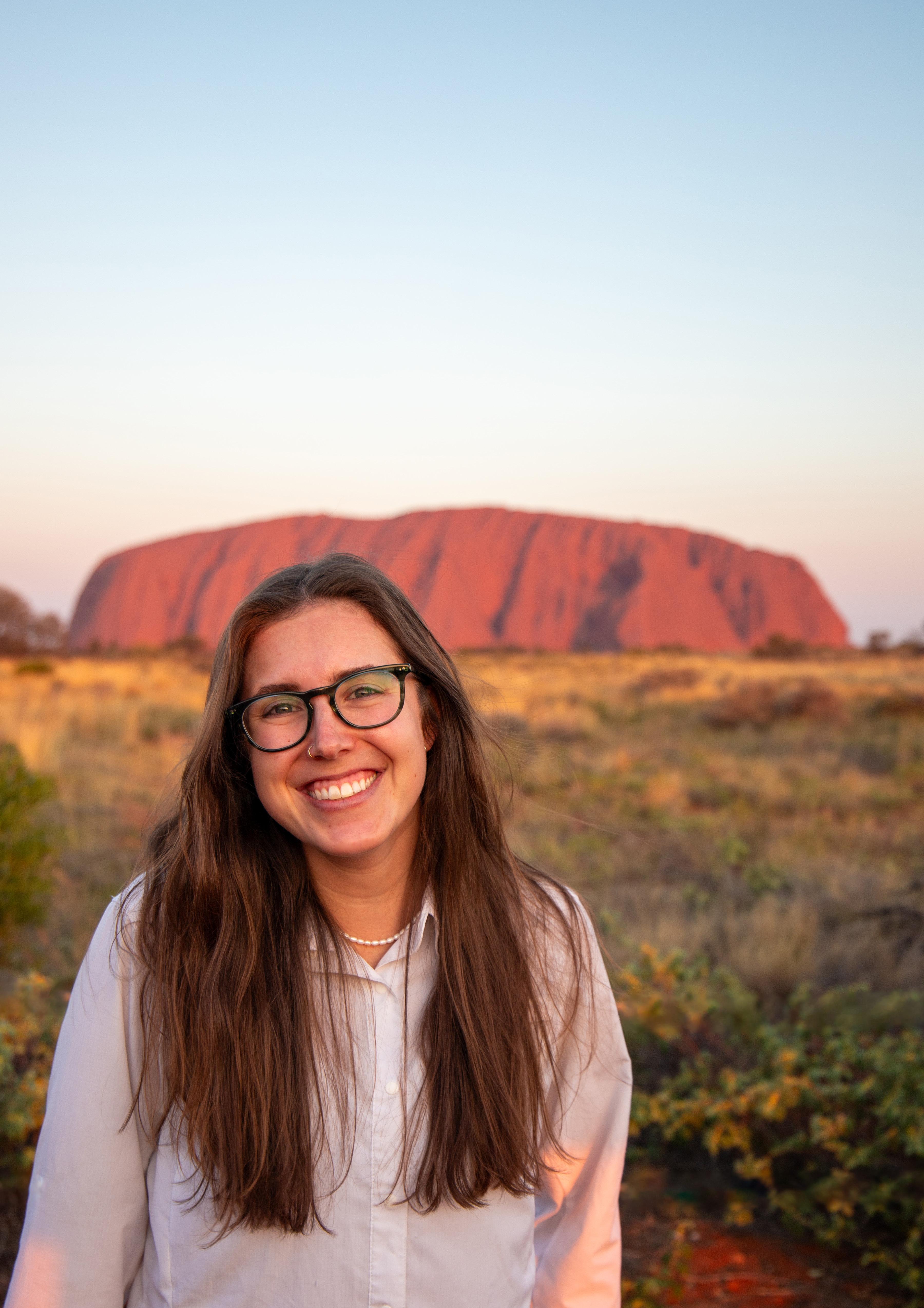
"This year in Australia with the Fulbright Program has been the most incredible and impactful year of my life. "
What did this experience mean to you and how has it impacted your life?
This year in Australia with the Fulbright Program has been the most incredible and impactful year of my life. I feel that I have grown professionally and emotionally and have truly made memories that will last a lifetime. I feel very fortunate to have had this enriching experience.
I got an inside look at an international university and research institution and how it operates. I got to learn about an academic culture and culture in general that I found to be much different from that in the United States.
This experience has impacted my life in ways that I don’t think I will fully realize for years to come. I think that the professional experiences I had will make me a strong candidate for PhD programs, positions with government agencies, and in industry. This experience was well-rounded in that I was exposed to so much— water resources engineering and modeling, policy, and social sciences. The research group’s interdisciplinary approach to solving water resources problems was valuable to be a part of. Additionally, the connections I made will continue to flourish. I hope to maintain professional relationships with my advisor and collaborators to complete projects and papers following my return to the United States.
Through the Fulbright Australia Program I was connected with two Fulbright alumni who will continue to be wonderful connections to Australia. After communicating with both about my professional and educational interests in the United States, they connected me with their former colleagues from their time as Fulbrighters. I hope to build these connections and reach out to their Fulbright networks.
This Fulbright experience has allowed me to travel all over and learn from this amazing Country. I got to explore Darwin and its nearby national parks, ventured into the Outback to see Uluru, went scuba diving in the Great Barrier Reef, climbed mountains in Tasmania (where I got engaged!), and explored cities and cultures in the cities of Melbourne, Sydney, and Brisbane. This year has provided me with invaluable memories and experiences that have changed my outlook and broadened my perspectives. I am so thankful for the Fulbright experience..
The highlight of my Fulbright experience was when I attended an academic conference in Darwin, Northern Territory. The conference was the International Congress on Modeling and Simulation (MODSIM), which I got to attend with many members of my department at the University of Melbourne. MODSIM was an interesting experience because I had never been to a conference where I saw similar methods applied to so many types of problems. I attended talks about municipal water modeling, where city engineers and planners were working on how to manage water resources for drinking water, industry, and irrigation under different climate change scenarios.
I also attended talks from state, federal, and university entities about how to model entire complex river systems like the Murray-Darling Basin, and how the methods they were using could more efficiently and effectively designate seasonal water allocations for water users in the basin. My host/affiliate here in Australia was actually a keynote speaker at this conference which was incredibly inspiring and affirming. During the conference, I went to an early-career mixer where I met a wonderful researcher from Western Australia who is working with Traditional Owner groups to do Ranger training and monitoring and modeling projects in the Kimberley. It was special to meet people from all over the country who work on water modeling. Water modeling is so complex and important; I am fortunate to have attended this conference and learned from the brightest minds in Australia.
Visiting Darwin was very special. Following the conference, I was able to stay for a few extra days to visit Litchfield National Park and Kakadu National Park. Both of these parks were exceptional and mind-blowing. In Kakadu, my partner and I went on many walks and saw lots of Aboriginal rock paintings. We also saw a crocodile in a beautiful wetland area. This was a very special place to visit because we learned that it has been home to Aboriginal people for more than 65,000 years, which makes it the oldest living culture on Earth.
Seeing Darwin and its surrounding natural areas was incredibly special and I feel fortunate to have had the opportunity to experience it.
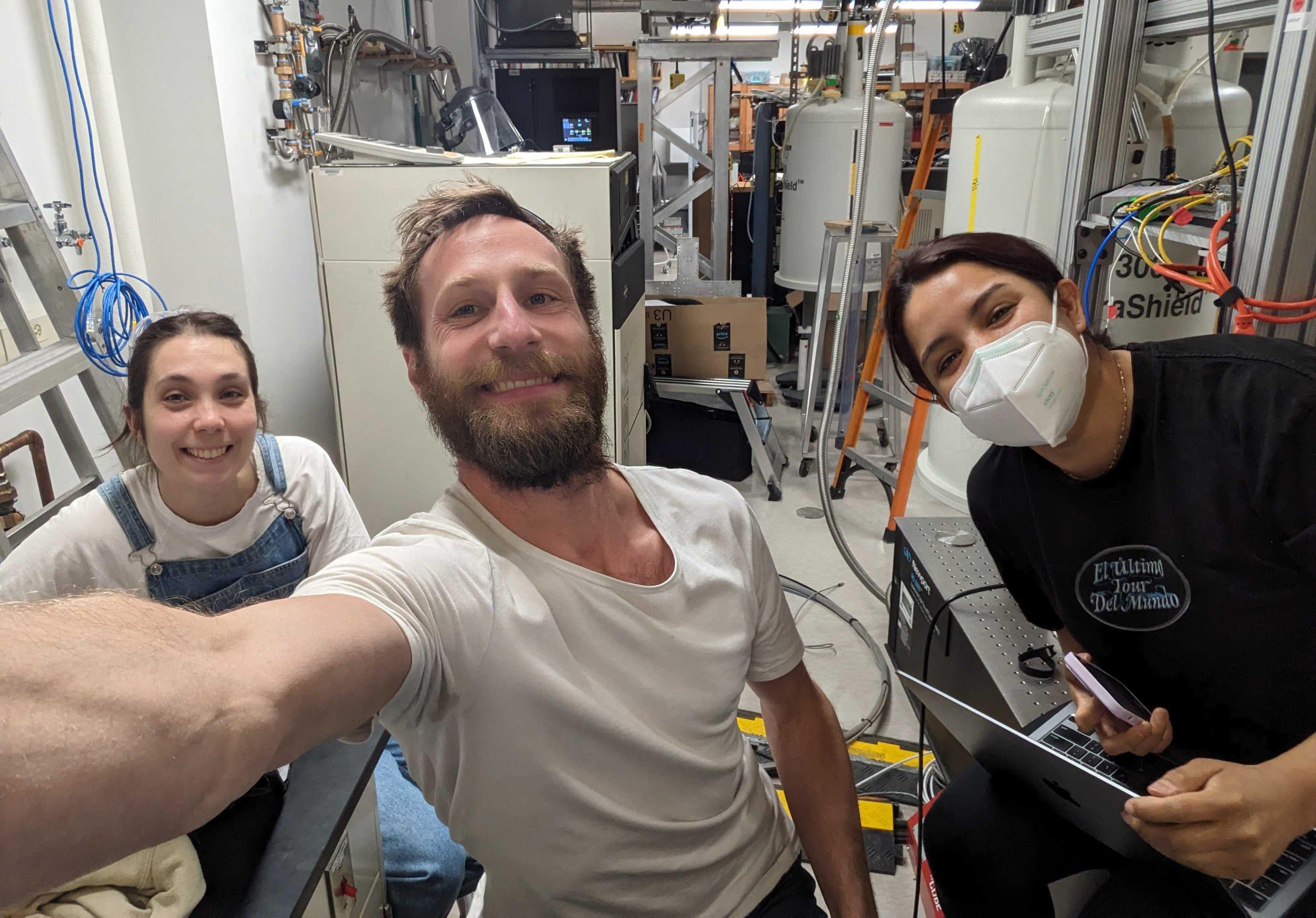
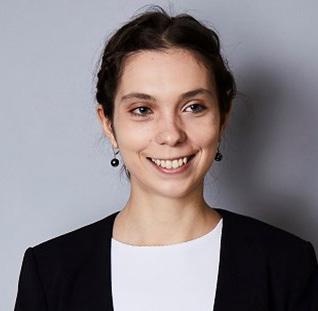
Martyna Judd, 2023 Fulbright Future Scholar (Postgraduate - VSR)
Home: The Australian National University
Host: Northwestern University
Field: Chemistry, Magnetic Resonance Spectroscopy
My project investigated the fundamental mechanisms of electron-nuclear coupling in spin-labelled molecular systems, aiming to uncover new insights into biomolecular structure and function. During my PhD in Australia, I developed advanced magnetic resonance spectroscopy techniques to measure distances of 5–20 Å in proteins. These tools are crucial for understanding how the structure of biomolecules relates to their function, a relationship that underpins processes such as drug binding and the effects of designed molecules on protein or enzyme activity. Such knowledge is vital for advancing biochemistry applications relevant to human health and physiology.
To achieve these measurements, I utilized the state-of-the-art magnetic resonance capabilities at the Australian National University (ANU). By tagging proteins with spin labels—such as the lanthanide metal Gadolinium (Gd), which contains an unpaired electron, and fluorine-19 (19F), a magnetic nucleus—I could probe structural details. These labels interact through dipolar coupling, akin to two bar magnets, and the resulting signals reveal distance and structural information about the tagged regions. However, the precise mechanisms driving these interactions remain poorly understood under the high-field, low-temperature conditions of our experiments.
My Fulbright project at Northwestern University’s Han Lab focused on addressing this gap. The lab's cutting-edge dynamic nuclear polarisation (DNP) instrumentation provided a unique opportunity to directly observe both the electron (Gd) and nuclear (19F) spins, as well as their mutual influence. This capability complemented the advanced electron paramagnetic resonance (EPR) facilities at ANU, where we can detect electron spin labels but not nuclear spins like 19F. By leveraging the Han Lab's static DNP instrumentation, I was able to study the interactions in greater detail and bridge the limitations of my EPR experiments in Australia.
This research aligns with the Han Lab's broader interests in quantum information and quantum sensing systems. Fluorine-19 is particularly promising for quantum sensing due to its ability to be introduced with high specificity and the unique contrast it offers compared to proton spins. Developing precise control over the Gd/19F interaction, whether through distancedependent effects or other means, could open exciting new avenues for applications in this field.
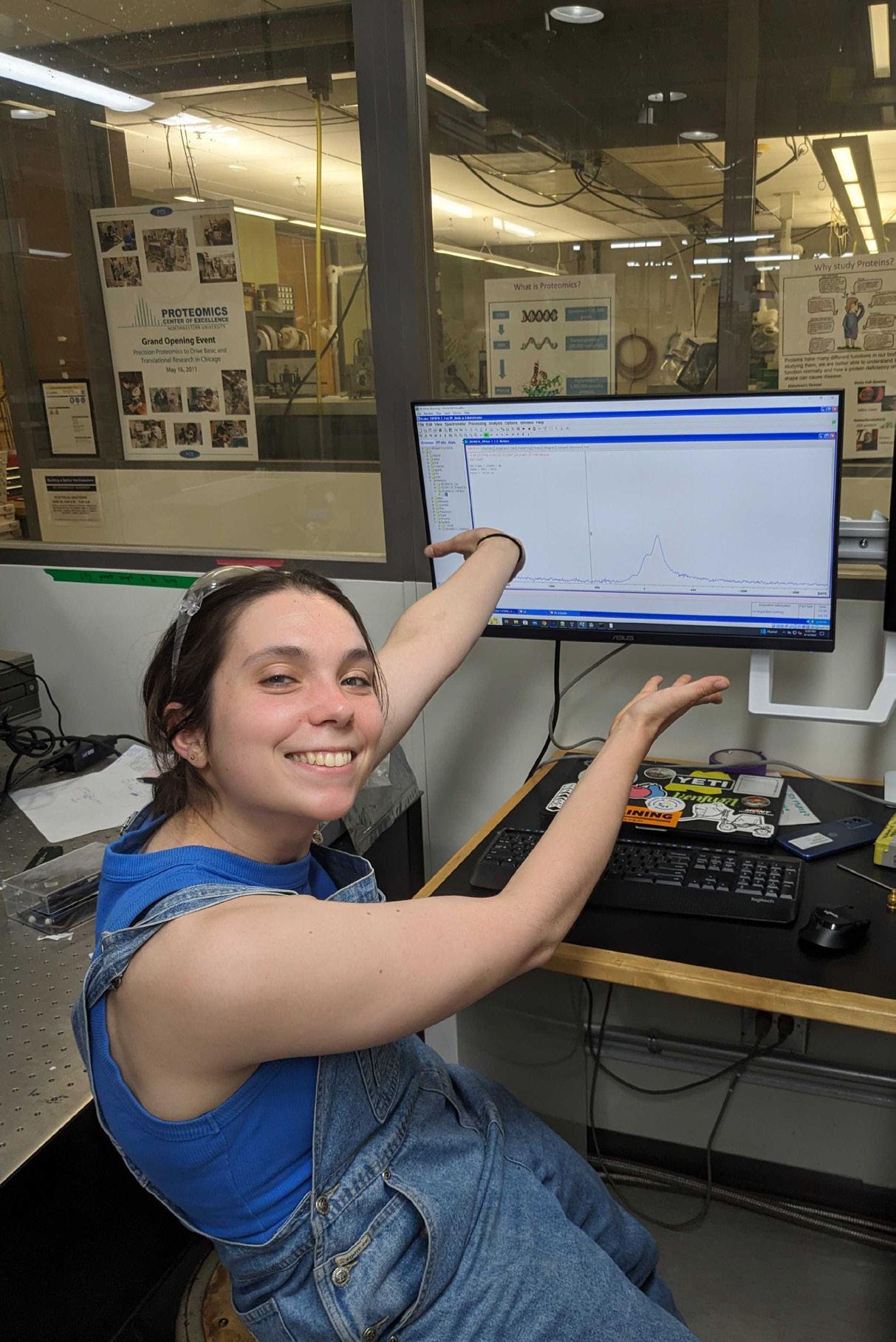
During my Fulbright experience, the relocation of the Han Lab from UC Santa Barbara to Northwestern University presented unexpected challenges. After reassembling the instruments, many were malfunctioning, which shifted my focus toward troubleshooting and working with my team to get the experiments back on track. This situation provided a unique opportunity to gain in-depth knowledge of the instrumentation, moving beyond a basic understanding to a more technical, hands-on approach. Working with custom-built instruments and managing spontaneous malfunctions are core aspects of magnetic resonance research and development. Given that dynamic nuclear polarization (DNP) is still in its early stages in Australia, this experience was invaluable. I was able to acquire skills and insights that I can bring back to the Australian magnetic resonance community.
Troubleshooting the instruments also helped me hone skills in thorough documentation, using shared electronic lab books, managing information systems, and preparing clear, concise progress reports. Our team divided tasks and met each morning to consolidate our progress and decide on the day’s next steps.
Despite the shifting priorities and numerous moving parts, we successfully restored the basic functionality of the instruments within two months and all advanced capabilities within six months. This progress allowed me to return to part of my original proposed experiments during the final three weeks. As a result, my project shifted focus to understanding the measurement architectures and considerations necessary for detecting 19F/Gd signals using DNP.
Another key outcome of my time at Northwestern was designing and building my own radiofrequency (RF) probe for detecting fluorine in the Han Lab’s DNP setup. After getting the RF signal detection working, I initially attempted to tune an existing probe to the frequency required for 19F detection by adding a capacitor to its original resonance circuit. However, I soon realized this was not feasible due to the high fluorine content in the probe’s materials, which created a large background signal that obscured the actual sample’s lowintensity signal.
This challenge led me to design and construct a new RF probe using fluorine-free materials, tailored to the existing setup. To achieve this, I utilized Northwestern’s student machine shop and took a ten-session milling and lathe course to learn how to machine custom parts.
I also learned CAD design and RF circuit simulations to optimize the probe’s design. With the help of a collaborator from JEOL, a leading instrument and metrology company, I successfully built and tested a functional RF probe, detecting a 19F signal in a test sample of trifluoroethanol.
Although I identified the need for further mechanical optimization to make the probe work reliably at cryogenic temperatures, the probe interfaces well with the existing instrumentation and can easily be implemented by anyone in the lab. My documentation of the probebuilding process will also be part of my thesis, where I detail machining techniques, design considerations, and performance tests.
In addition to working on the RF probe, I contributed to DNP measurements on nanoand microdiamond samples at 14T over a range of temperatures. Diamond has become a popular material in magnetic resonance and DNP studies because it serves as an effective source of polarizing spins at room temperature. This project allowed me to gain experience with a new type of instrumentation—Magic Angle Spinning (MAS) DNP—and to further develop my skills in analyzing DNP data to understand mechanisms under different conditions. Specifically, I measured the frequency-sweep profiles of the DNP effect in various diamonds and characterised their spin relaxation properties, which ties into my broader interest in the 19F/Gd system. This work on diamond MAS DNP, including my data contributions, was a collaborative effort within my lab subgroup and is currently being written up for publication.
The technical experience I gained at the Han Lab, coupled with the invaluable connections I made with collaborators in both academia and industry, would not have been possible without the Fulbright program. Navigating unexpected instrumentation challenges, learning new circuit design skills, and working in a large team all contributed to my personal and professional growth. I returned from my time in the U.S. as a better scientist, equipped with new knowledge and skills.
I am eager to bring this expertise back to Australia and contribute to the development of advanced magnetic resonance technologies in the southern hemisphere. Whether I continue in academia or transition to industry, the lessons I learned during this exchange will enable me to effectively contribute to Australian science in the future.
What did this experience mean to you and how has it impacted your life?
One of the most profound impacts of my Fulbright experience was the restoration of my optimism about pursuing a research career in science. My lab work during the COVID-19 pandemic often felt isolating, with lab shutdowns and restricted progress making it difficult to maintain momentum. Collaborations—especially across domestic or international borders—were particularly challenging to sustain.
While Australia boasts exceptional magnetic resonance spectroscopy scientists and cuttingedge research facilities, our community is relatively small. Being geographically distant from major global research hubs sometimes made it hard to see the broader context and significance of the work I was doing. The Fulbright exchange, however, changed that. By forging meaningful cross-continental collaborations and immersing myself in the dynamic research environment in the U.S., I rediscovered my excitement for science and the unexpected opportunities it can present. This experience reminded me how much I thrive in collaborative team settings, where I feel connected to a larger purpose and can contribute meaningfully to collective goals. Additionally, being supported by an organisation like the Fulbright Commission significantly boosted my confidence as a scientist. It validated my ability to contribute value to Australian science and reaffirmed the importance of my vision.
"One of the most profound impacts of my Fulbright experience was the restoration of my optimism about pursuing a research career in science."
Like many in academia, I continue to work on overcoming impostor syndrome. But the Fulbright experience serves as a powerful reminder of a time when others believed in me and my project enough to grant me this extraordinary opportunity—a memory I will carry with me for years to come.
I was also fortunate to join a research lab during my Fulbright that fostered a highly supportive and collaborative environment. My principal investigator (PI) genuinely cared about her students as individuals, cultivating a culture that valued curiosity and encouraged questions, no matter how basic they might seem. This openness not only enriched my research experience but also reinforced the importance of collaboration, curiosity, and mutual support in science.
What strategies did you use to connect with your local host communities?
I sought out groups in Chicago that reflected activities I enjoy in Australia. One example is the Evanston Running Club, a local group that meets for regular runs and social events.
Arriving during Chicago’s winter, I quickly embraced frosty, snowy runs and appreciated the flat terrain. I also participated in the F3 February Chicago Half Marathon, which gave me the chance to experience the lakefront in a new way and connect with my community.
In the summer, a running friend introduced me to the Evanston Open Water Swimming group. At first, I missed Canberra’s bush trails, but joining these early morning swims in Lake Michigan helped me appreciate how Chicagoans find adventure in unexpected places. I also joined the Windy City Grotto, a caving club where I met many welcoming people. I spent Memorial Day weekend at the Speleofest Convention, connecting with cavers from across the Midwest. Along the way, I had quintessential American experiences: watching a bald eagle take off by the I-70, trying a root beer float in Galena, and enjoying s’mores by the campfire.
I also found new connections through Facebook and Meetup, including a rock climbing group at the local gym. It was great meeting others who were also adjusting to life in Chicago and hearing their unique stories.
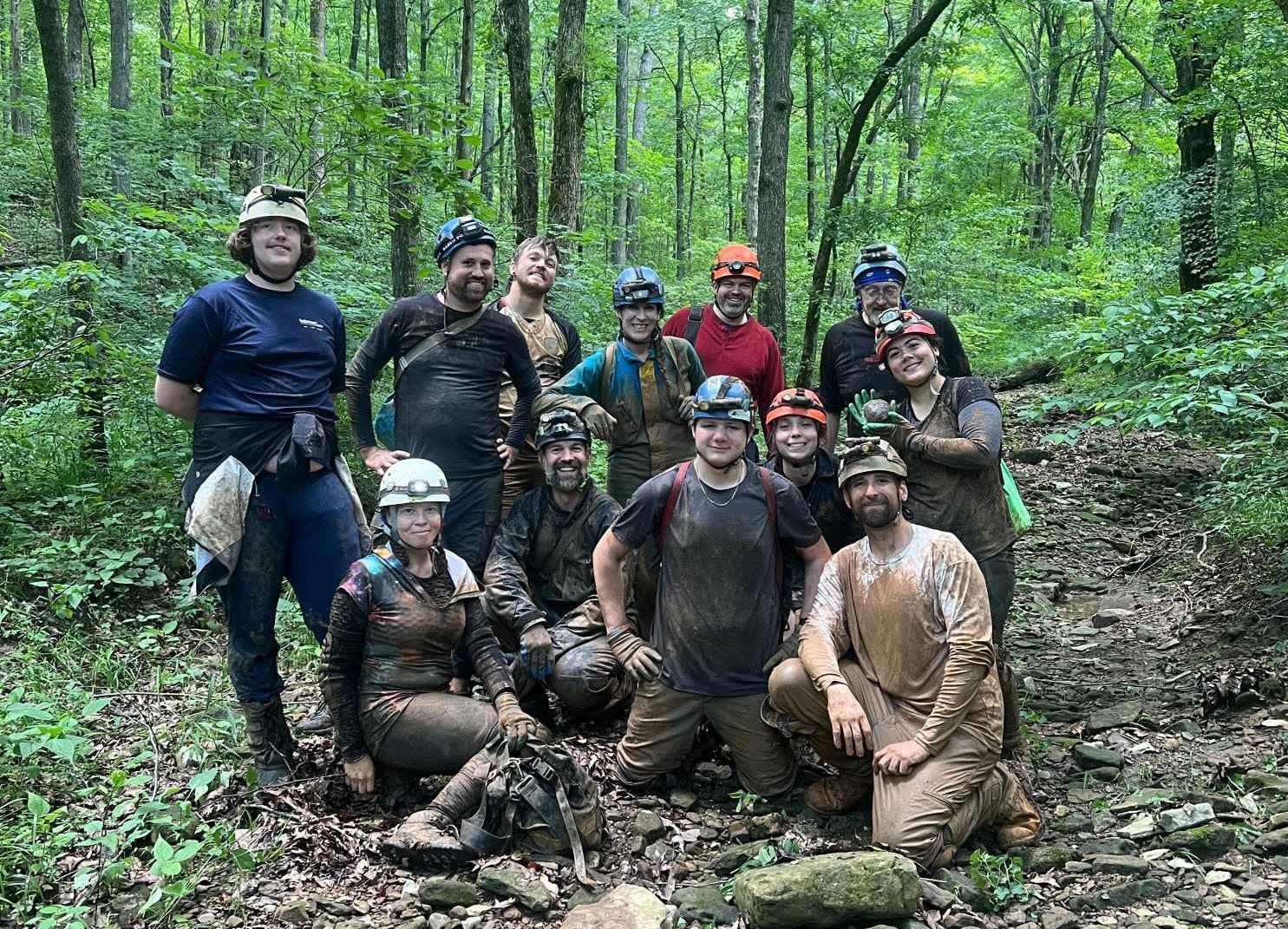
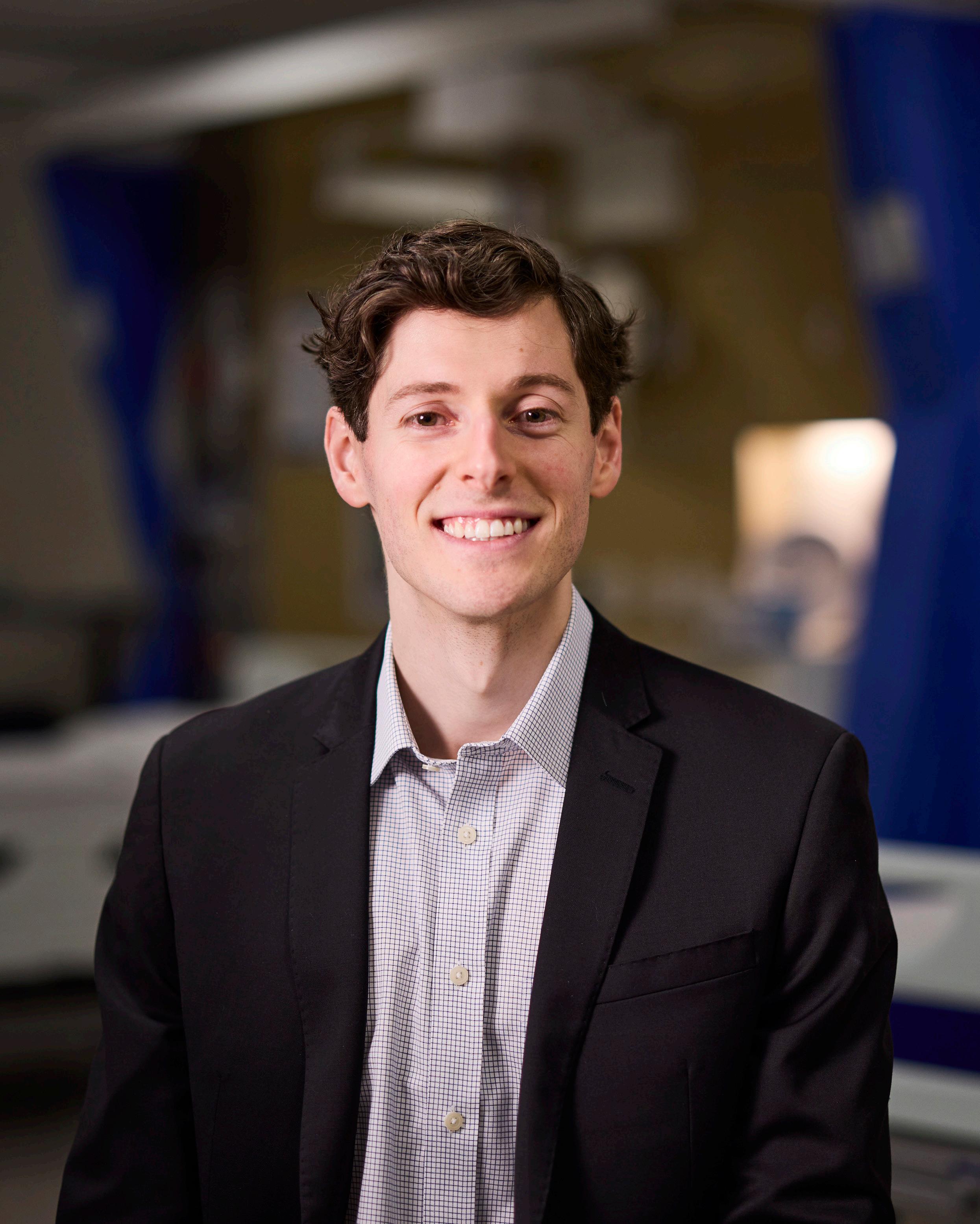
Fulbright Sponsors play a vitally important role in the Commission's long-term sustainablility. In order to advance Fulbright’s influence and impact, we must cultivate strong partnerships with our alumni, universities, current and potential sponsors, think-tanks and like-minded institutions, and the general public.
Sponsor Scholarship/s
Universities
Charles Darwin University
Florida Polytechnic University
Kansas State University
Monash University
RMIT University
University of Tasmania
University of Wyoming
Rice University
University of Maryland
Federal Government
Australian Government, Department of Education
Australian Government, Department of Foreign Affairs and Trade
Australian Government, National Indigenous Australians Agency (NIAA)
State Governments
New South Wales Government
Victorian Government
Tasmanian Government
Northern Territory Government
Queensland Government
Government of South Australia
Government of Western Australia
Private Organisations
Australian Fulbright Alumni Association (AFAA)
Coral Sea Commemorative Council
The Kinghorn Foundation
Fulbright Northern Territory Scholarship (co-sponsor)
Fulbright Scholar Award
Fubright Distinguished Chair in Agriculture and Life Sciences
Fulbright Scholar Award
Fulbright Postdoctoral Scholarship
Fulbright Postdoctoral (Vice-Chancellor's Postdoctoral Fellow) Scholarship
Fulbright Tasmania Scholarship (co-sponsor)
Fulbright Scholar Award
Fulbright Postgraduate Scholarship (co-sponsor)
Fulbright Postgraduate Scholarship (co-sponsor)
Fulbright Scholarship in Vocational Education & Training
Fulbright Anne Wexler Scholarship in Public Policy
Fulbright Professional Scholarship in Australian-American Alliance Studies
Fulbright Indigenous Scholarship
Fulbright New South Wales Scholarship
Fulbright Victoria Scholarship
Fulbright Tasmania Scholarship (co-sponsor)
Fulbright Northern Territory Scholarship (co-sponsor)
Fulbright Queensland Scholarship
Fulbright South Australia Scholarship
Fulbright Western Australia Scholarship
Fulbright WG Walker Scholarship
Fulbright Coral Sea Scholarship (Business/Industry)
Fulbright Future Scholarships
Sponsor
Universities
CQUniversity Australia
Curtin University
Deakin University
Flinders University
Regional Universities Network of Australia (RUN)
RMIT University
The Australian National University
University of Newcastle
University of Canberra
University of Technology Sydney
University of Wollongong
Western Sydney University
The University of Adelaide
Federal Government
Australian Government, Department of Education
Commonwealth Scientific and Industrial Research Organisation (CSIRO)
Private Organisations
The Kinghorn Foundation
Fulbright Scholar Award
Fulbright Scholar Award in Resources and Energy
Fulbright Postdoctoral Scholarship
Fulbright Distinguished Chair in Applied Public Policy (Democratic Resilience)
Fulbright Scholar Awards
Fulbright Distinguished Chair in Entrepreneurship and Innovation
Fulbright Distinguished Chair in Arts, Humanities and Social Sciences
Fulbright Postdoctoral Scholarship
Fulbright Scholar Award
Fulbright Scholar Award
Fulbright Scholar Awards
Fulbright Postgraduate Scholarship
Fulbright Distinguished Chair in Cyber Information Influence
Fulbright Anne Wexler Scholarship in Public Policy
Fulbright Distinguished Chair in Science, Technology and Innovation
Fulbright U.S. Future Scholarships
Major Sponsor
Platinum Sponsors
Gold Sponsors
Flinders University/The Jeff Bleich Centre for Democracy and Disruptive Technologies
The Australian National University
CQUniversity Australia
Kansas State University
The University of Notre Dame Australia
The University of Queensland
The University of Adelaide
Monash University
Silver Sponsor Australian Catholic University
The University of Newcastle
Bronze Sponsors
Deakin University
University of Tasmania
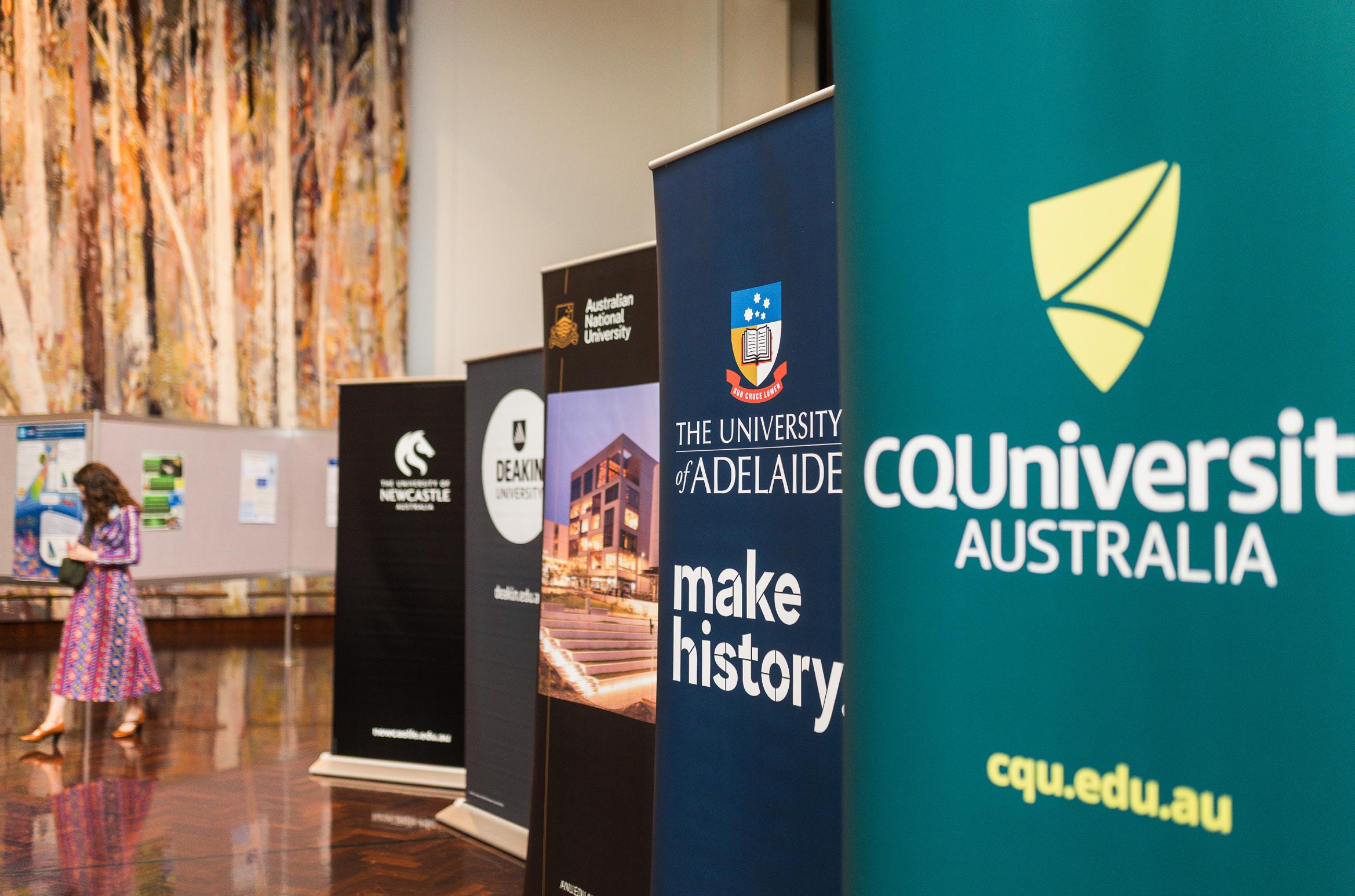
In 2024, the Australian-American Fulbright Commission proudly established three significant partnerships, each designed to enhance academic exchange and foster innovation across borders. These collaborations with The University of Notre Dame Australia, Rice University, and the University of Maryland underscore Fulbright’s commitment to providing diverse opportunities for scholars and students alike.

Scholar Award (funded by The University of Notre Dame Australia)
The Fulbright Scholar Award, funded by The University of Notre Dame Australia, offers distinguished U.S. academics the opportunity to conduct research at one of Notre Dame’s campuses in Fremantle, Broome, or Sydney. This initiative aligns with the university’s 2022 Strategic Plan, which emphasizes transformative research aimed at addressing real-world challenges and promoting the common good. By hosting up to two scholars annually, the program seeks to foster collaborative research that benefits both nations.

Fulbright Postgraduate Scholarship (co-funded by Rice University)
In collaboration with Rice University, the Fulbright Postgraduate Scholarship enables Australian students to pursue master’s degrees at this esteemed institution in Houston, Texas. Rice University, known for its rigorous academics and vibrant campus life, offers a full tuition waiver for up to two academic years, along with a monthly stipend and travel support. This partnership reflects a mutual dedication to academic excellence and international cooperation.
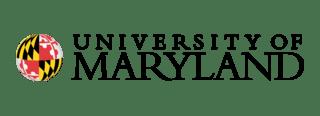
The Fulbright Postgraduate Scholarship at the University of Maryland provides Australian students with the chance to enroll in the Master of Public Policy program at the School of Public Policy. This two-year degree focuses on developing compassionate leaders and advancing innovative policy solutions. Awardees benefit from tuition remission, a graduate assistantship, and comprehensive support throughout their studies, reinforcing the shared goal of addressing global policy challenges.
These new partnerships exemplify Fulbright’s ongoing mission to promote mutual understanding and academic collaboration between Australia and the United States. By expanding opportunities across various disciplines and institutions, Fulbright continues to empower scholars and students to make meaningful contributions on a global scale.
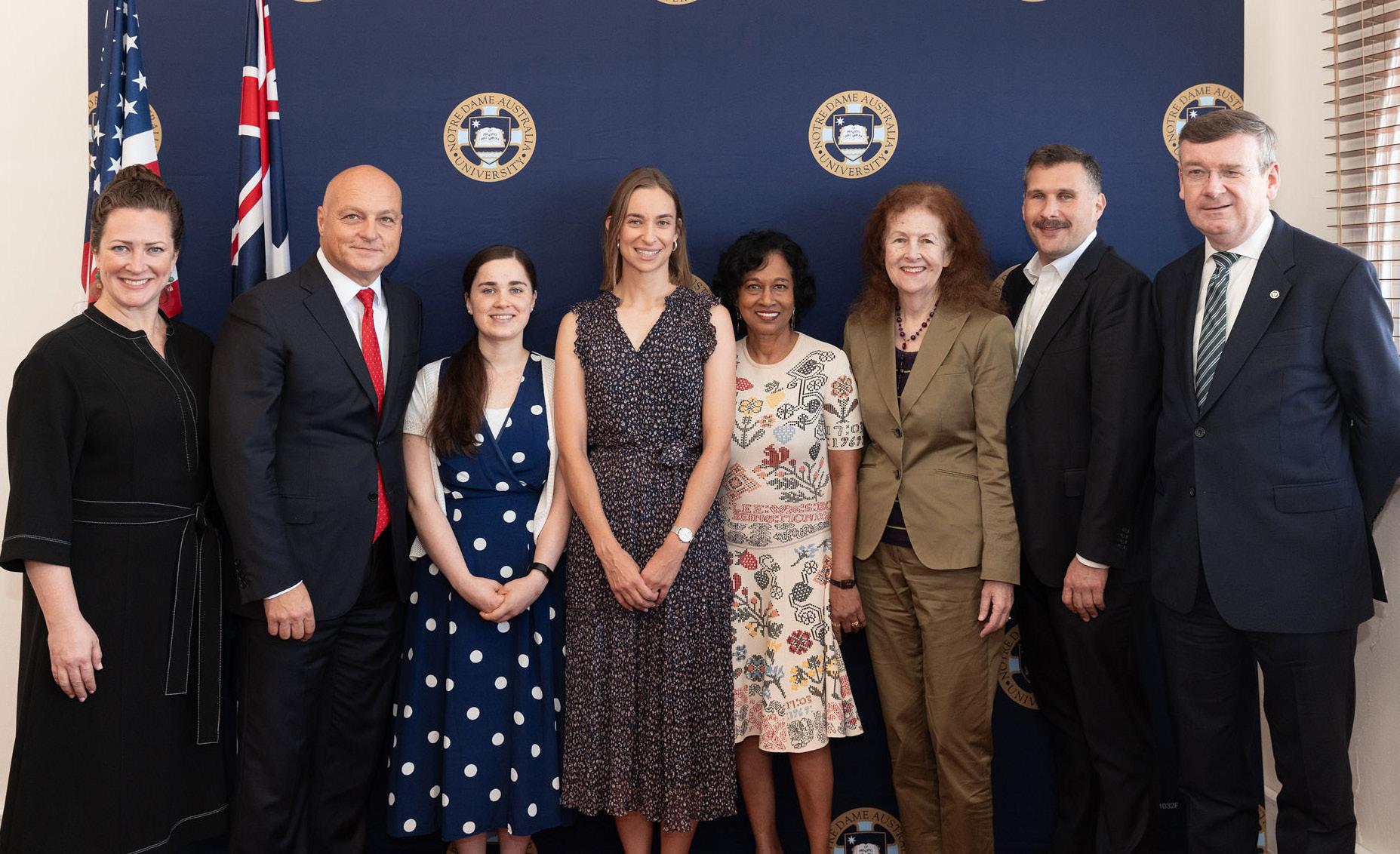
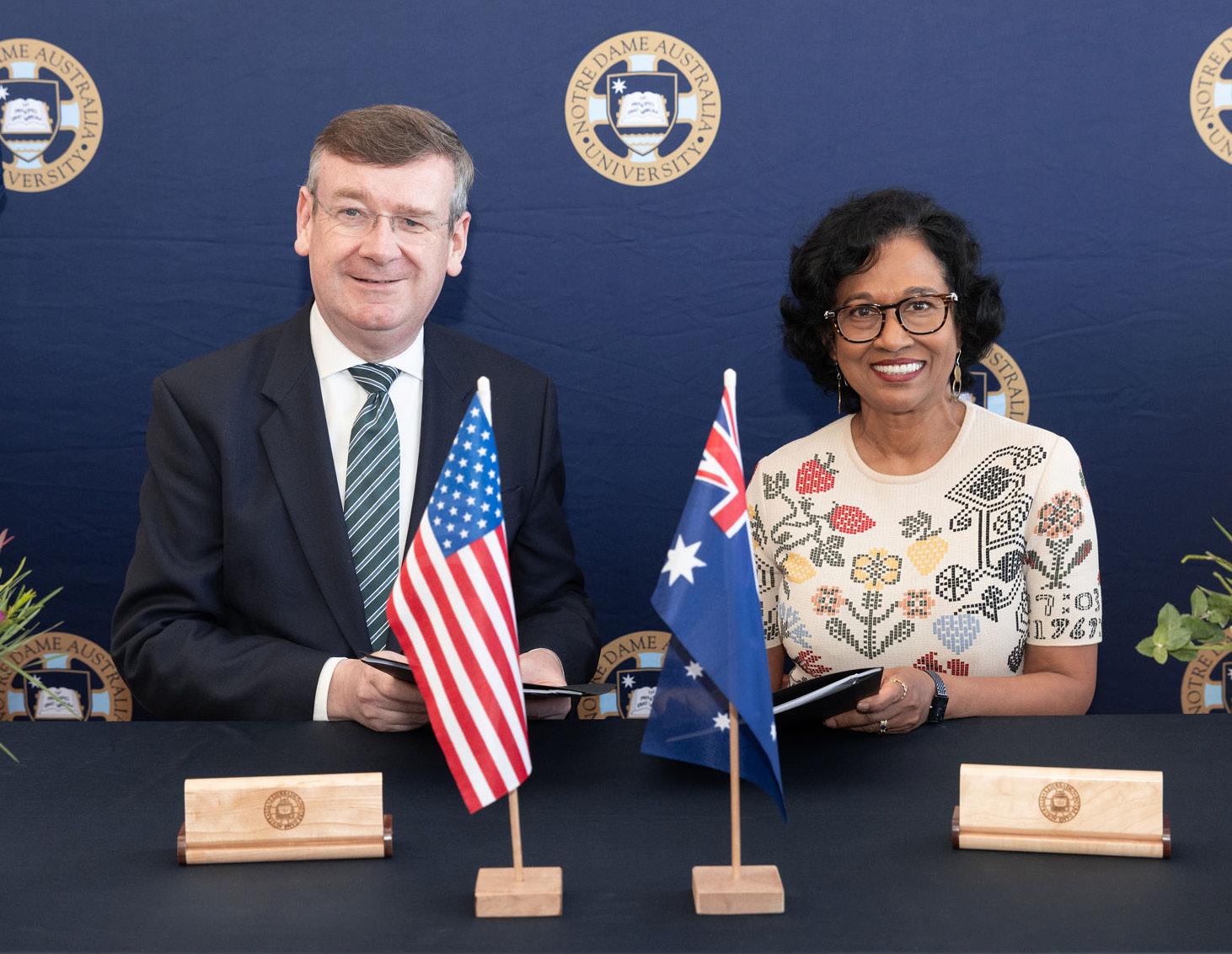
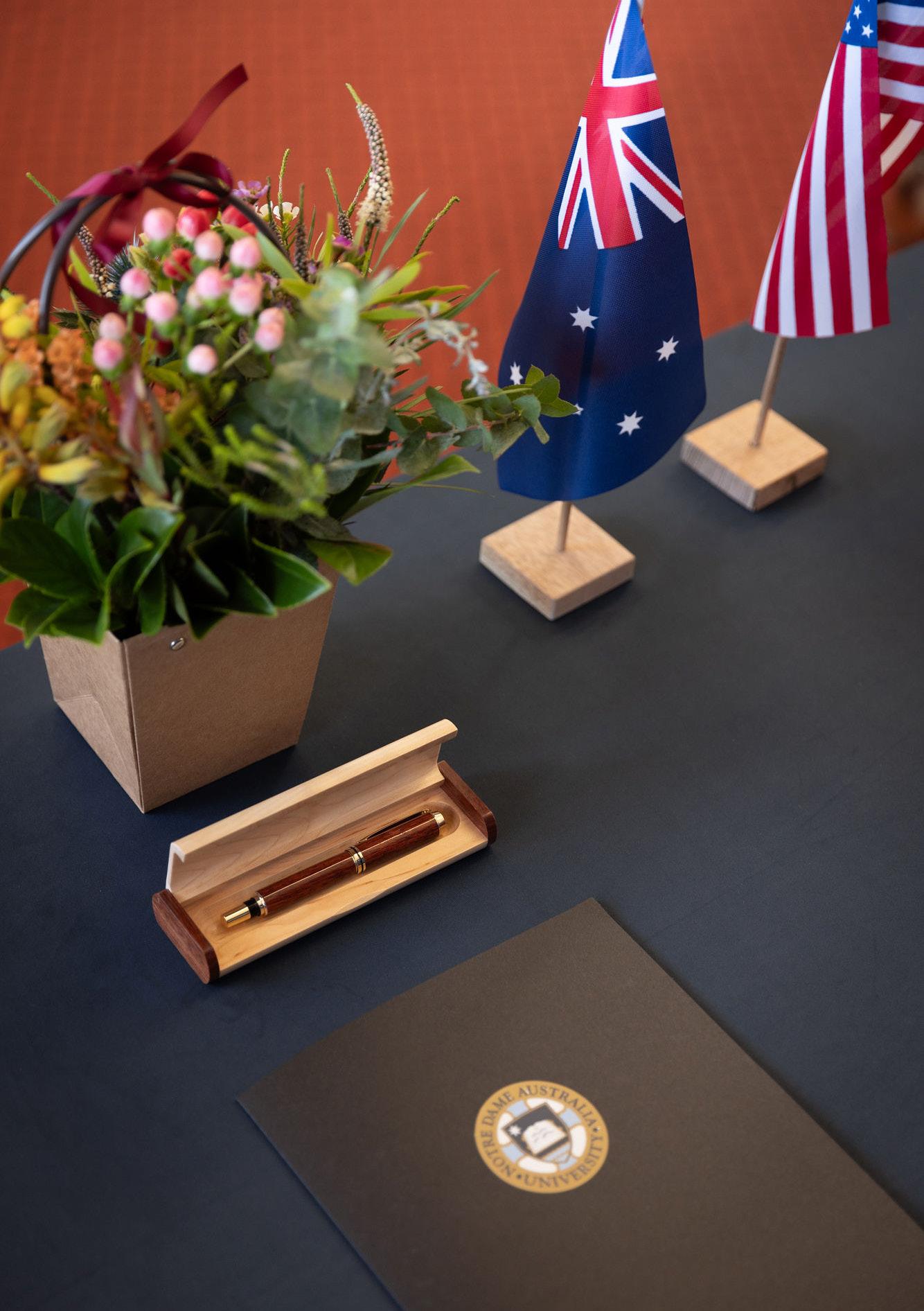
Fulbright Australia
75th Anniversary Fulbright Gala Presentation Dinner, February 2024
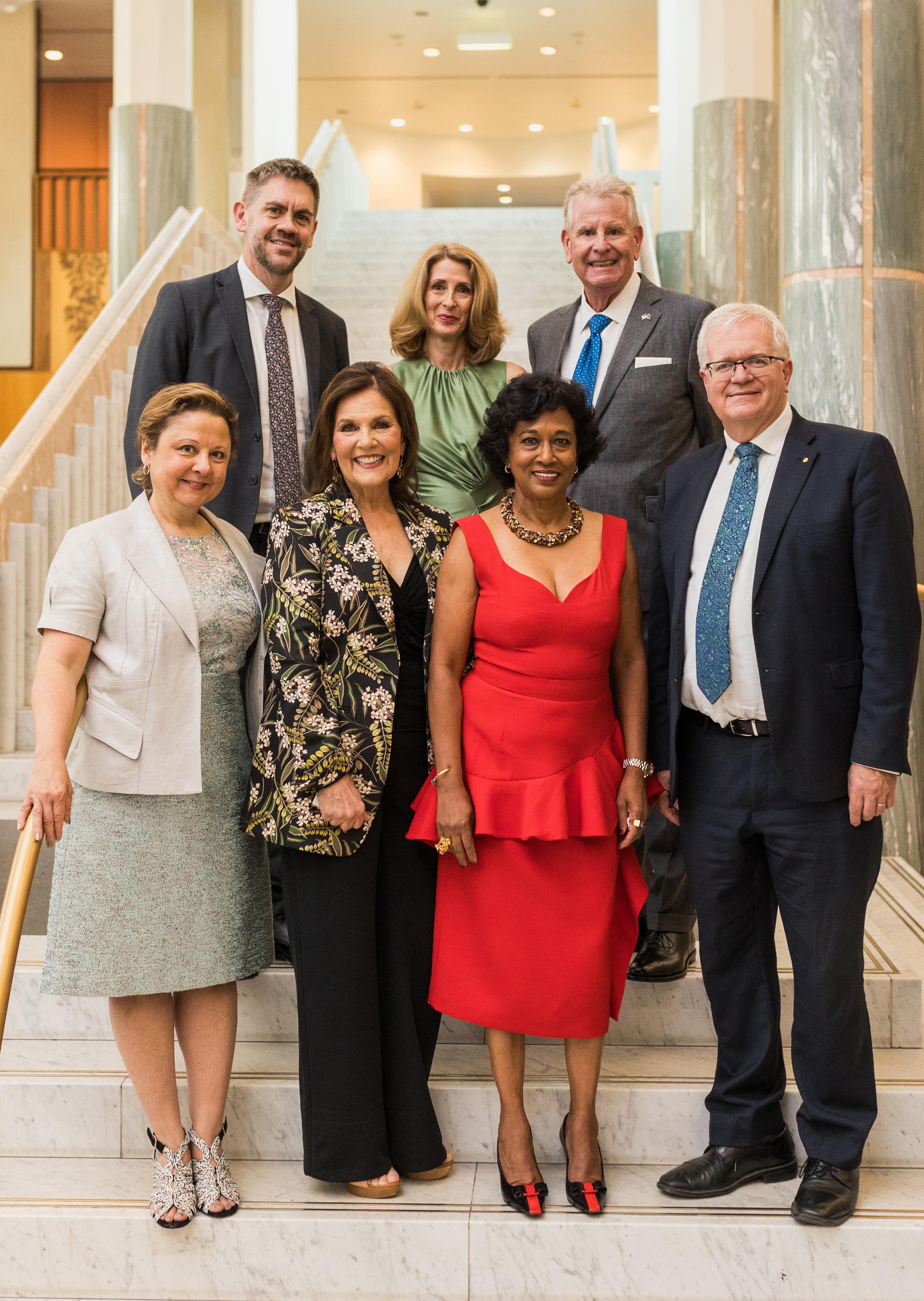
The Fulbright Program can continue to thrive only if we leverage minimum resources to maximum effect. Operational and administrative procedures must be continually reviewed and refined, and our programs must be effectively monitored and managed. We must ensure that we have effective scholar selection and staff recruitment processes, that professional development be a priority, and that we are appropriately funded to achieve our core goals.

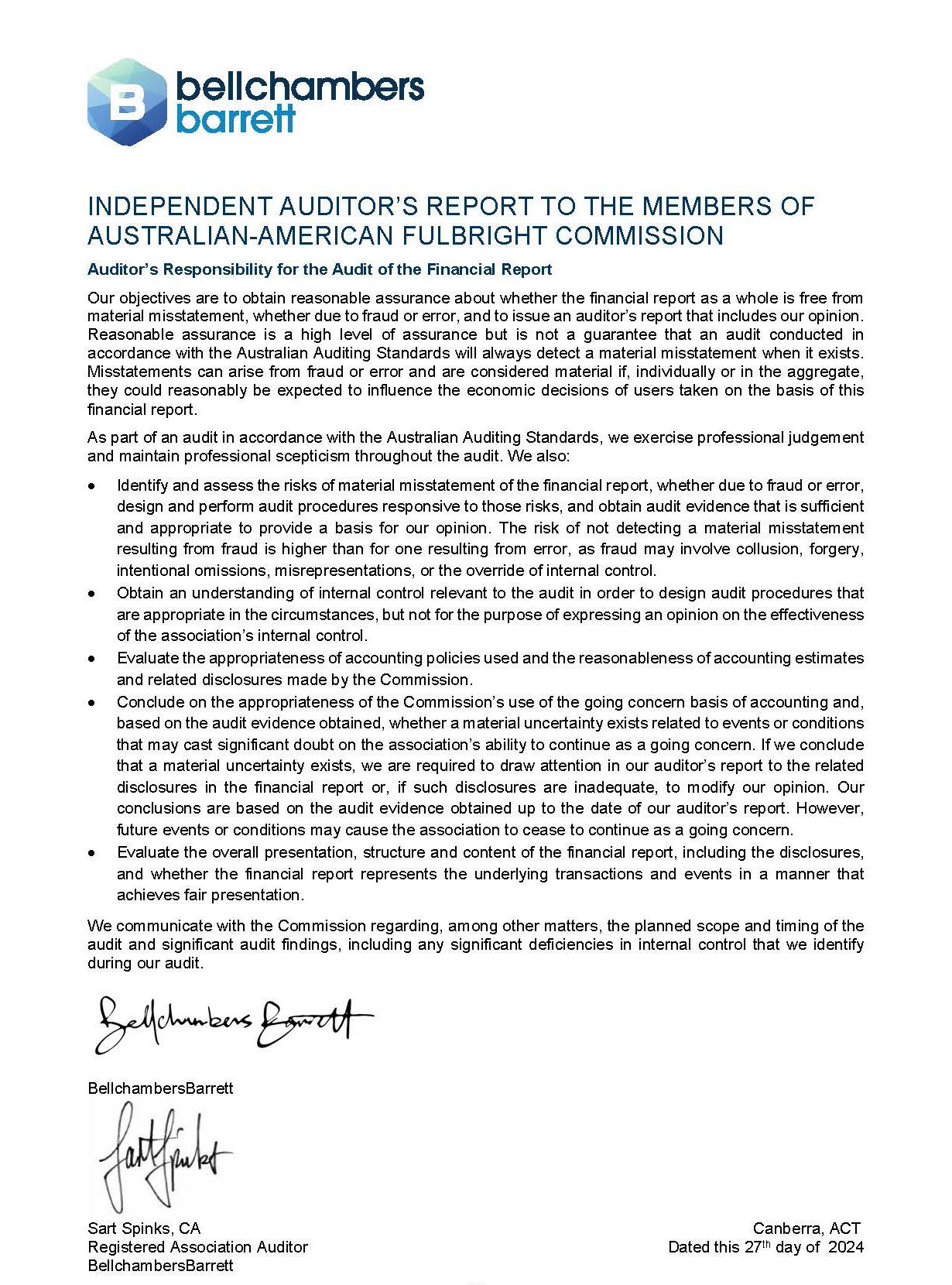
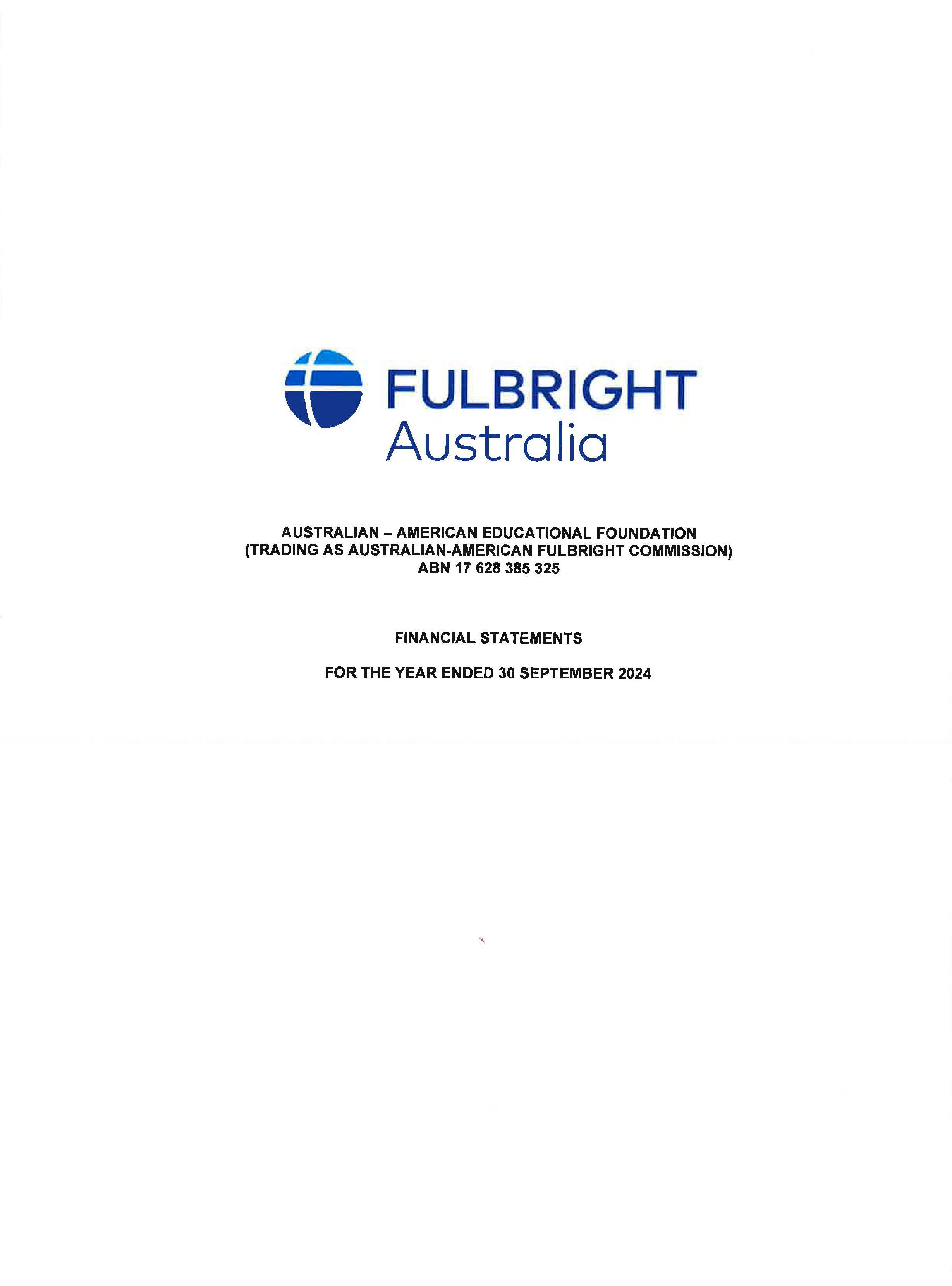
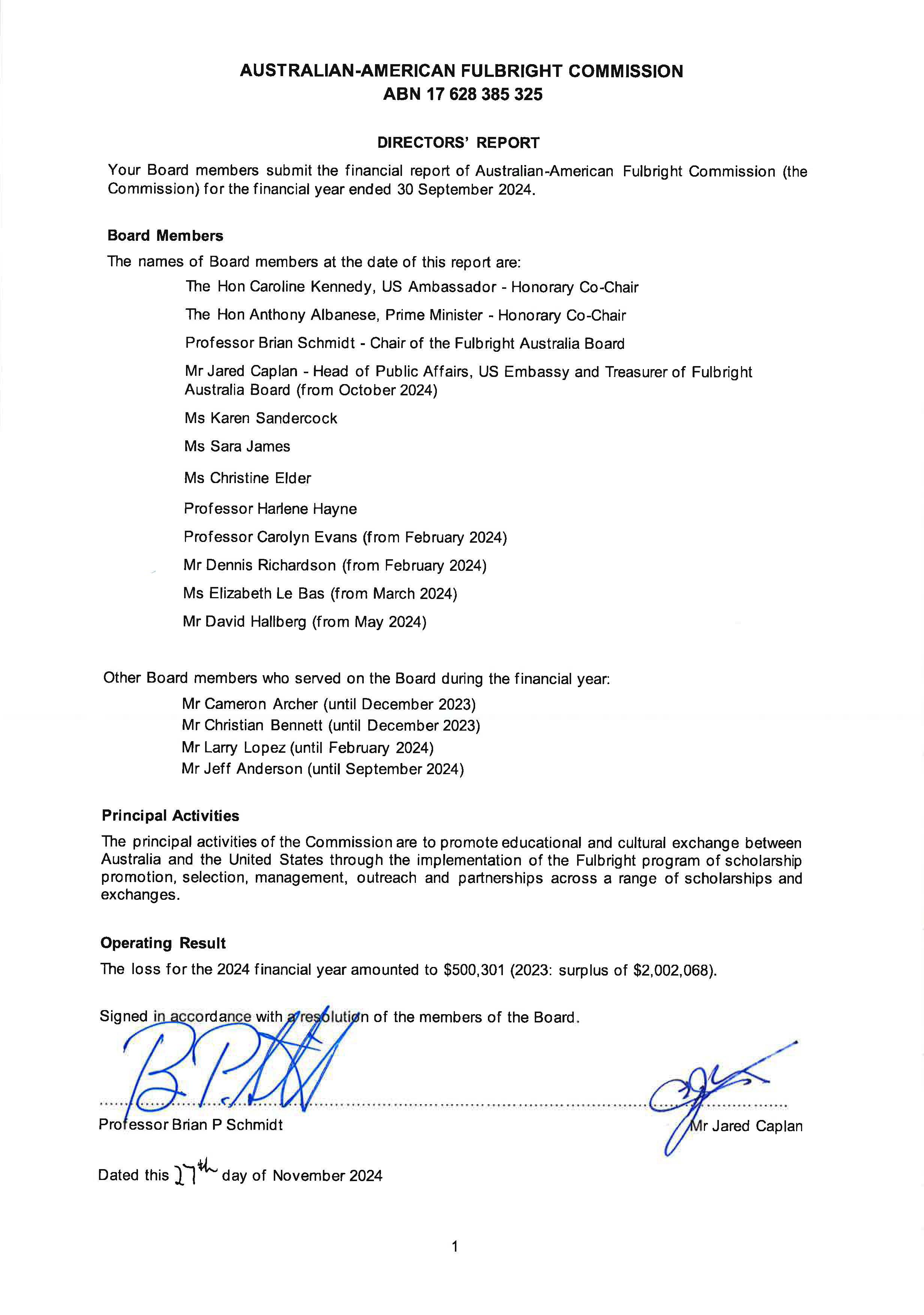
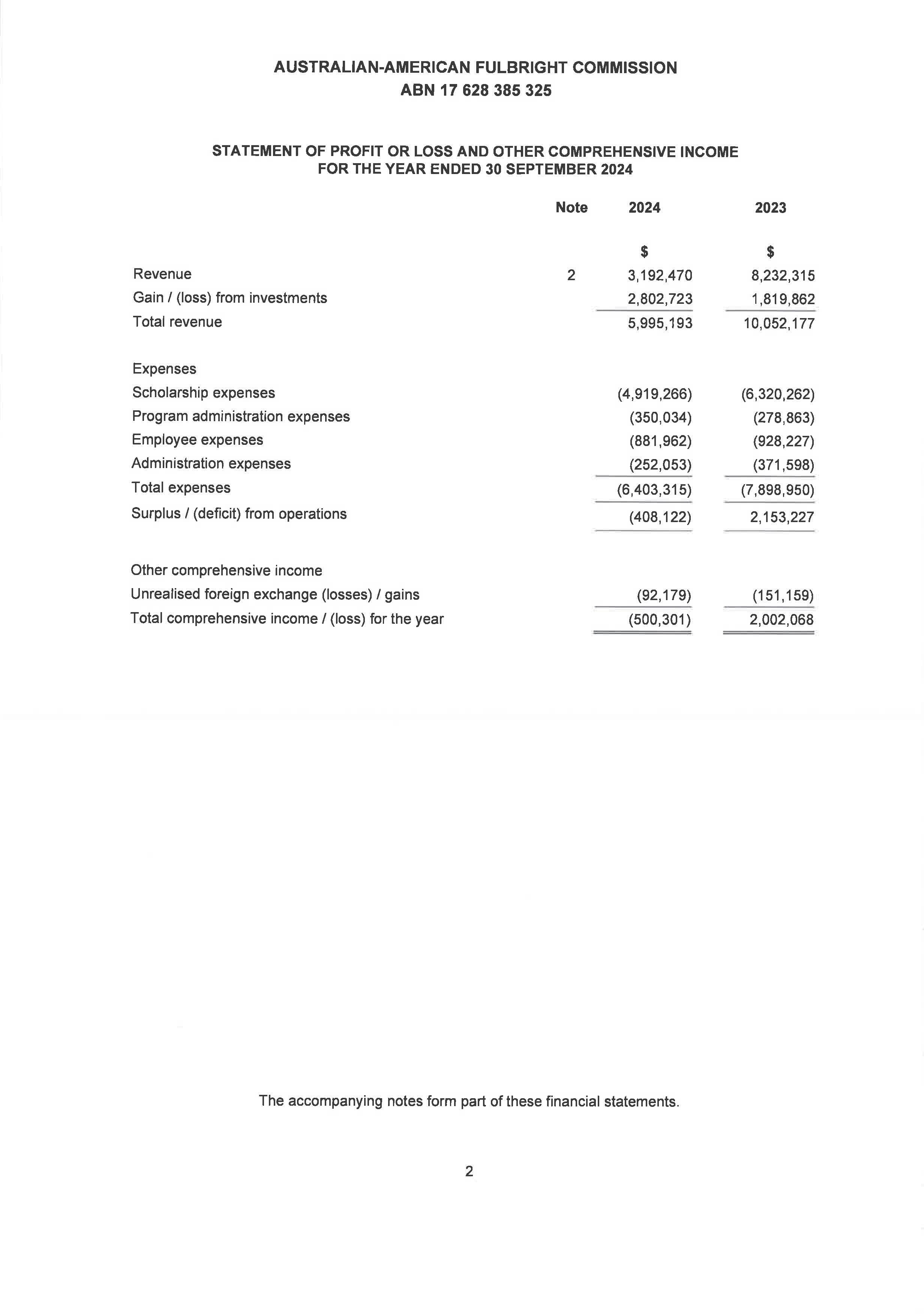

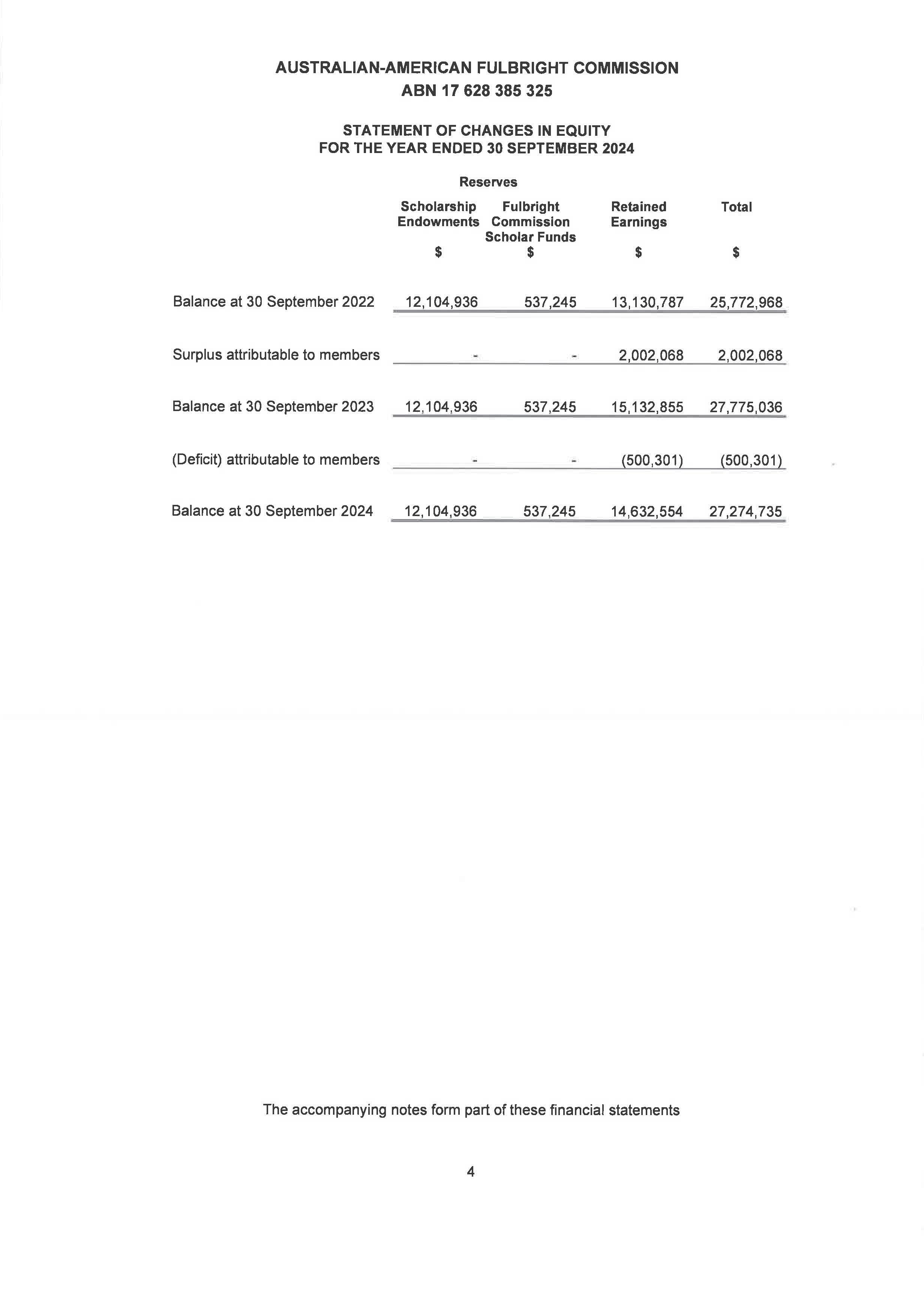
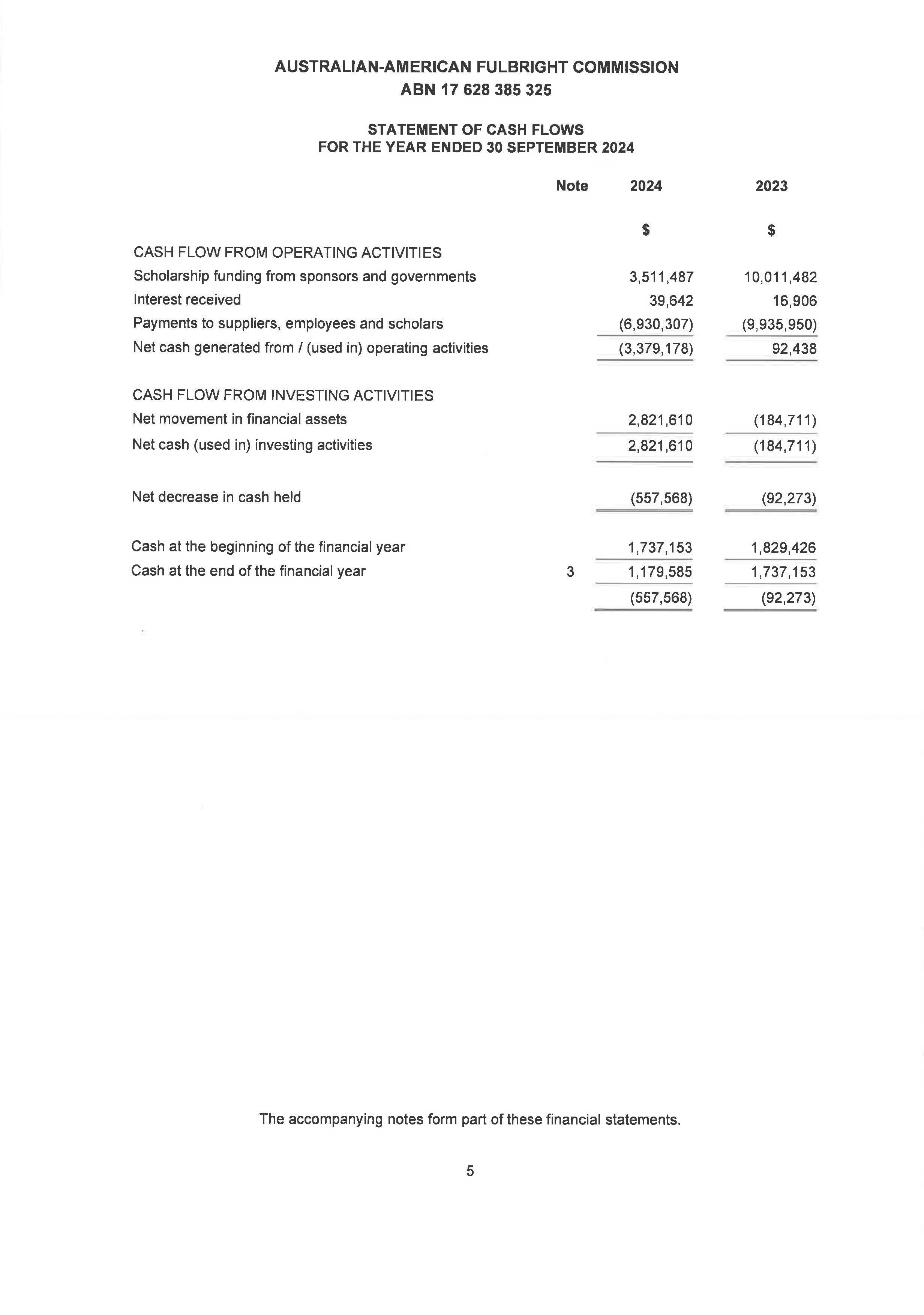
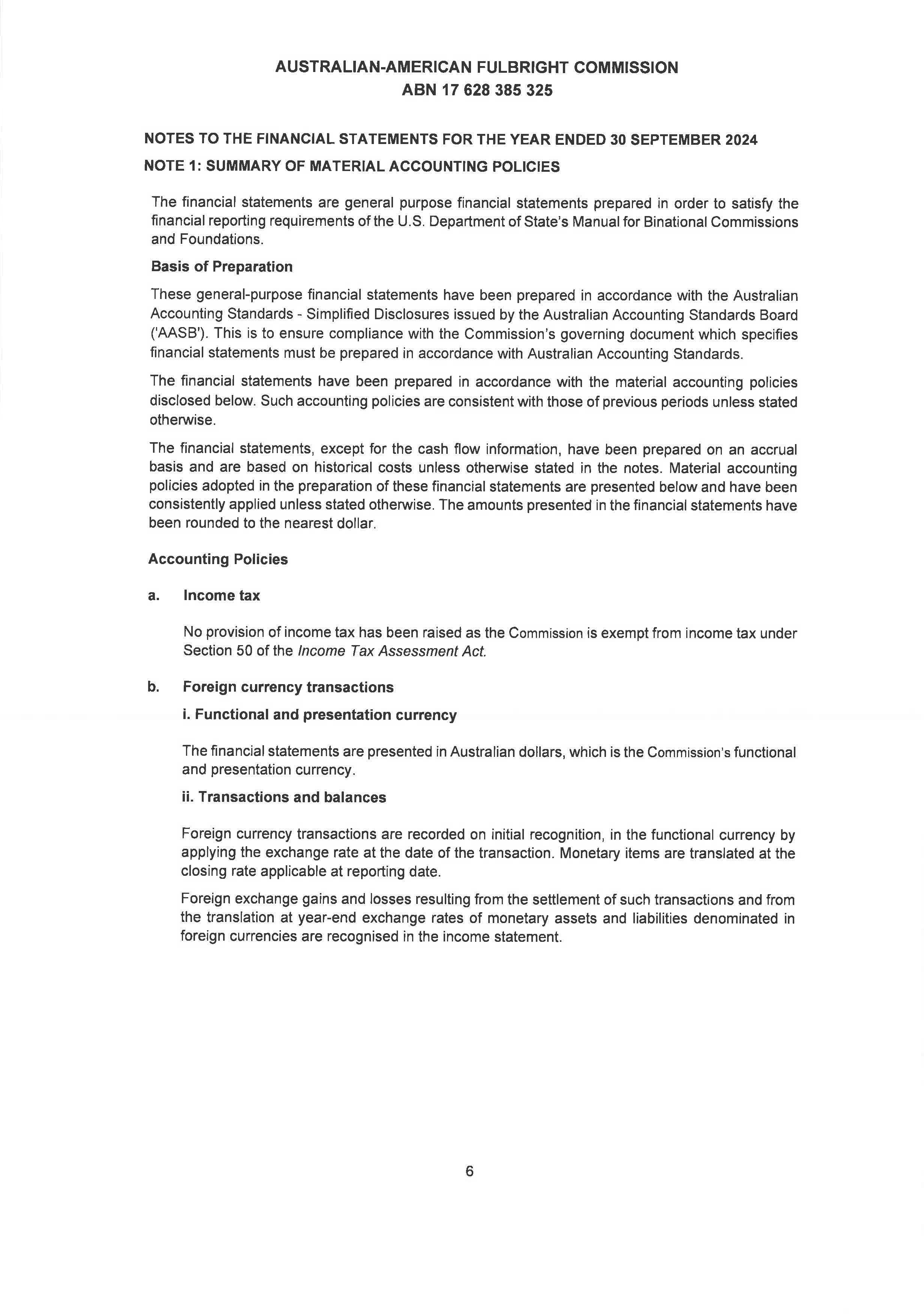
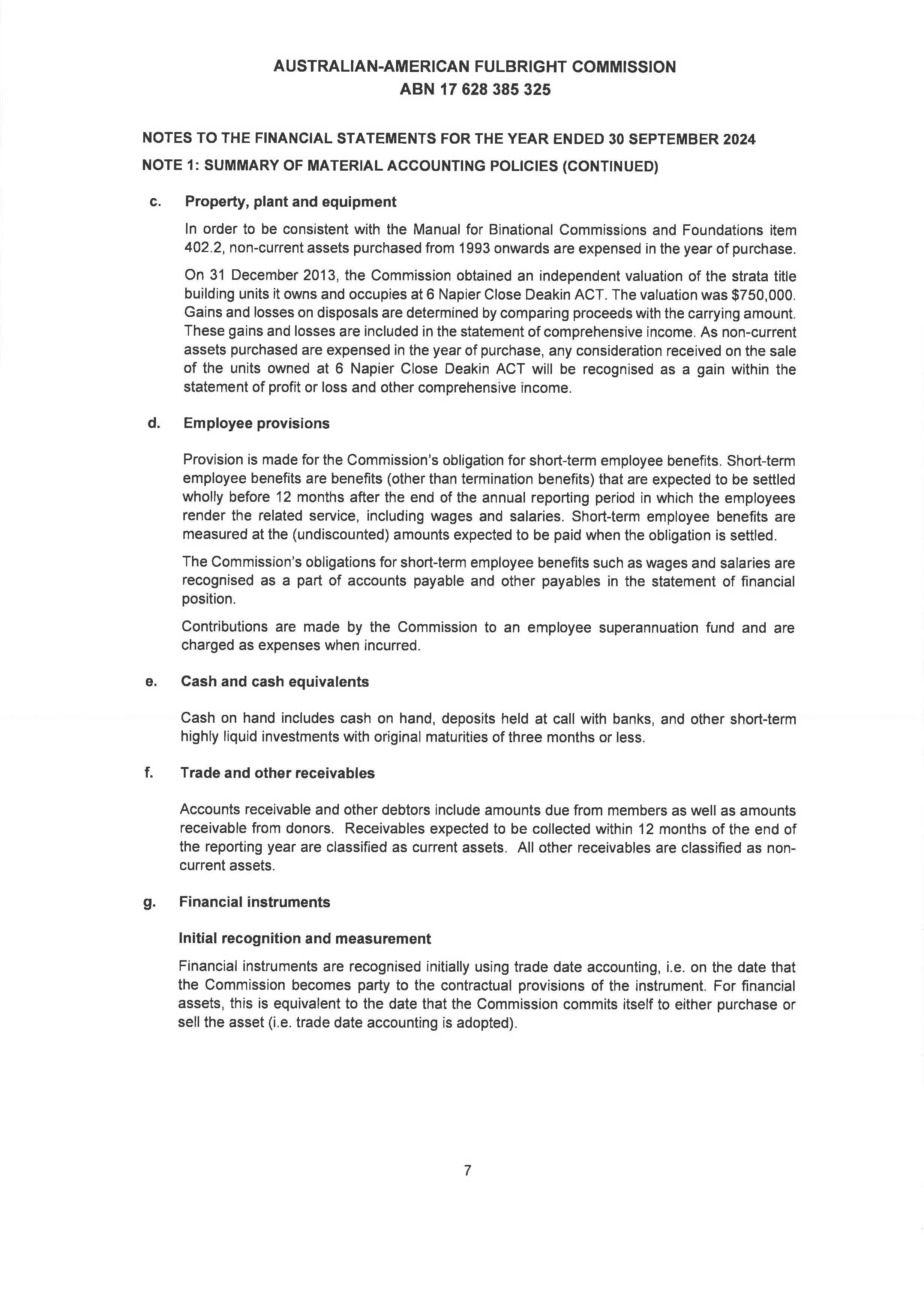
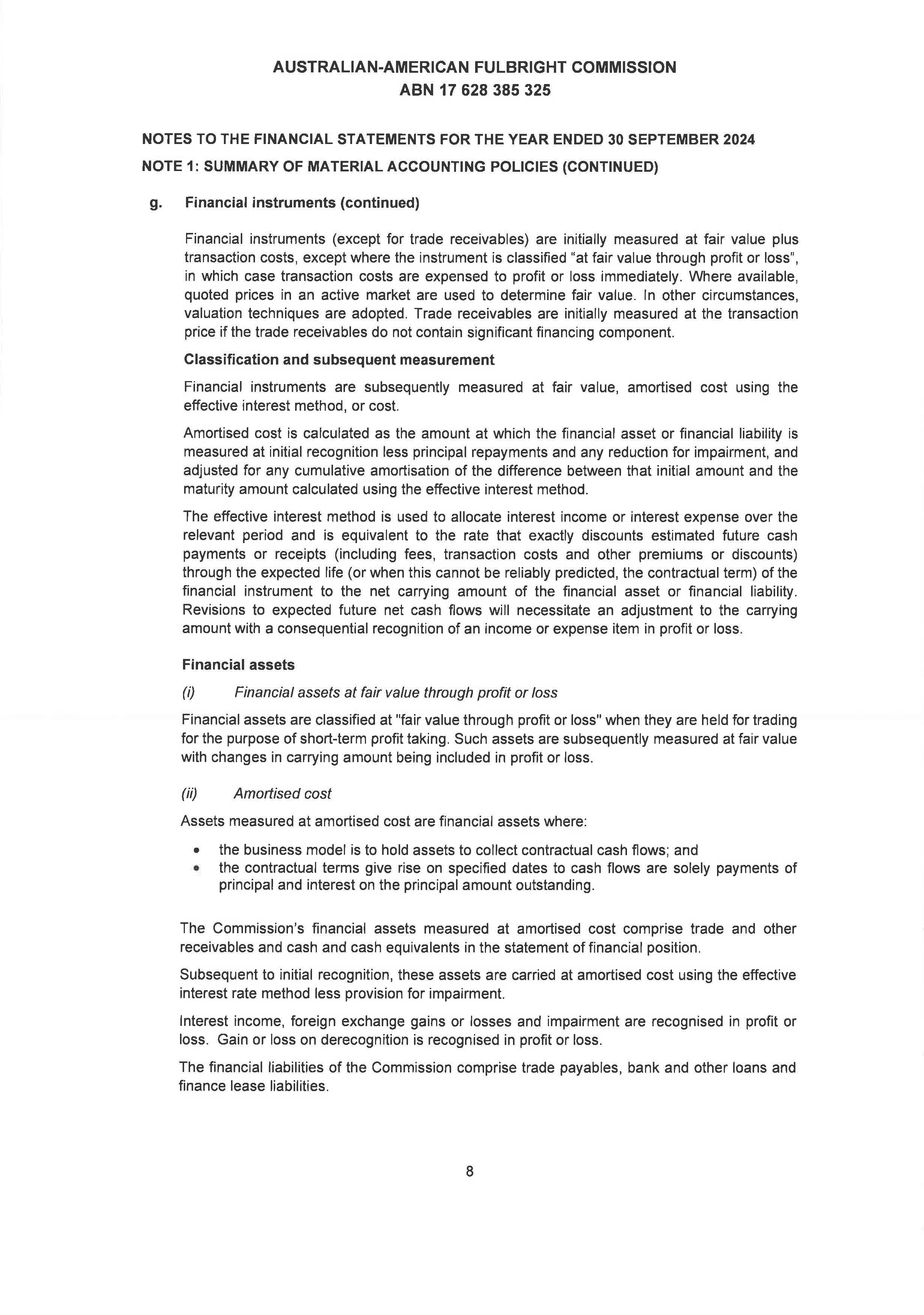
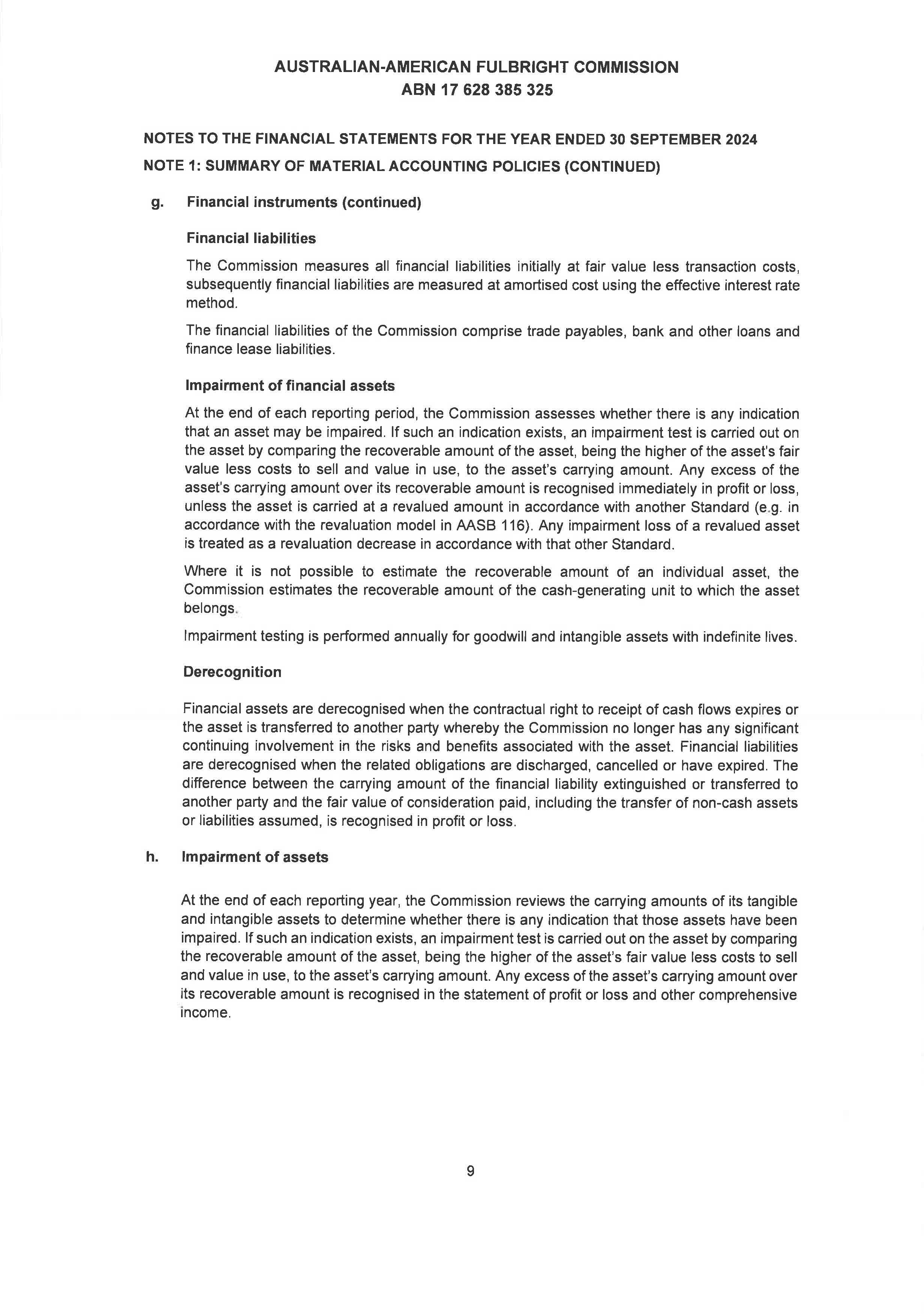
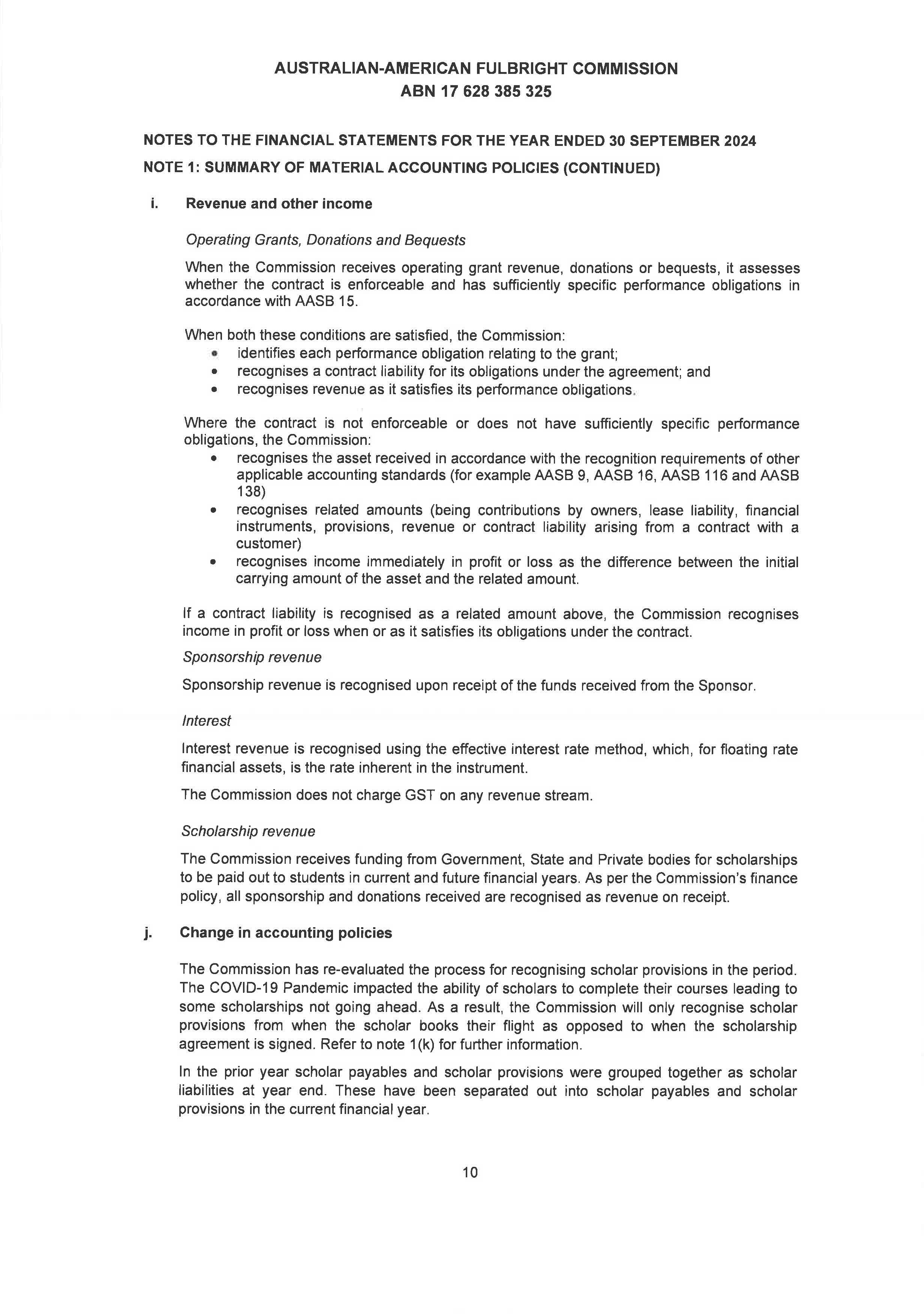
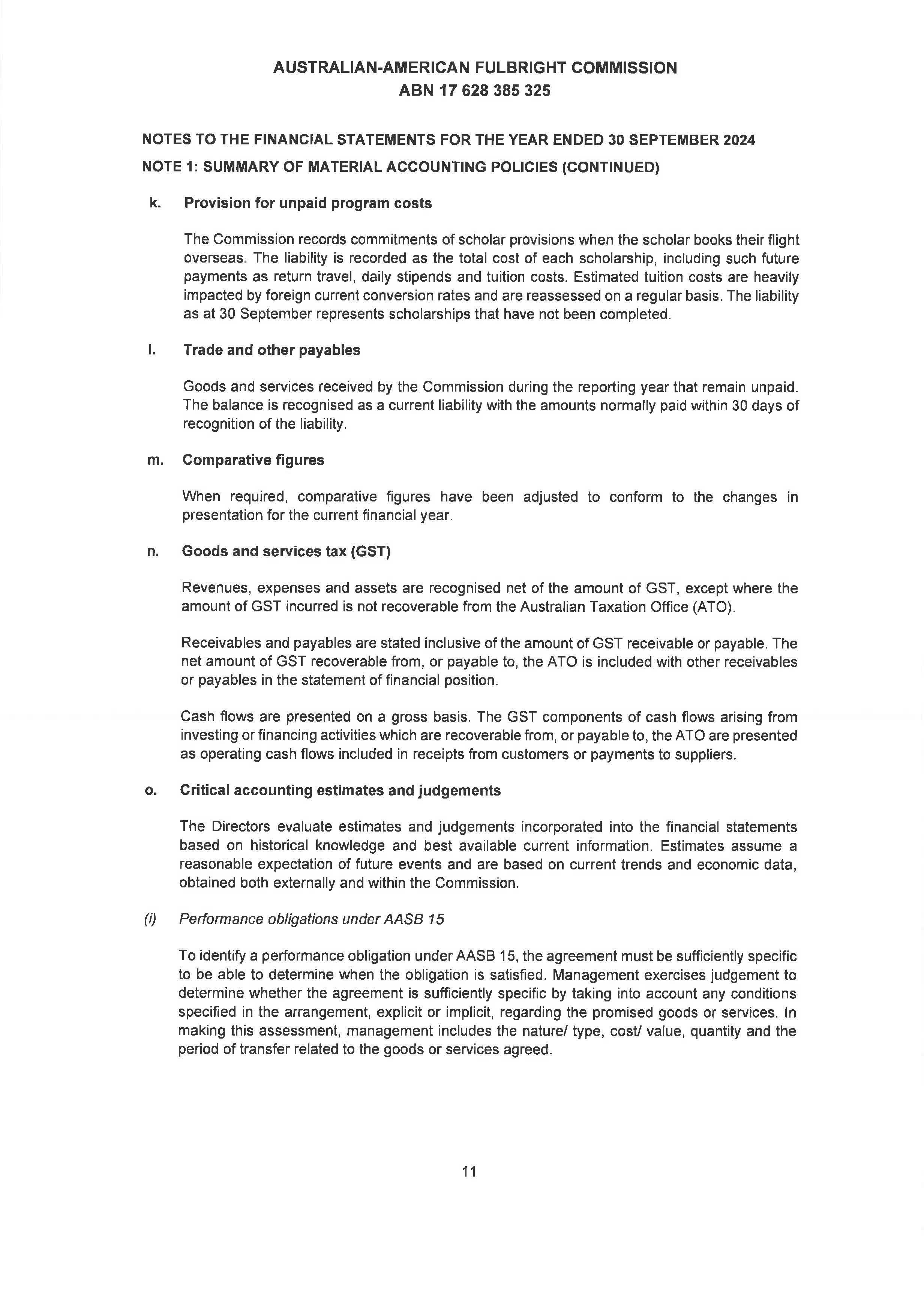
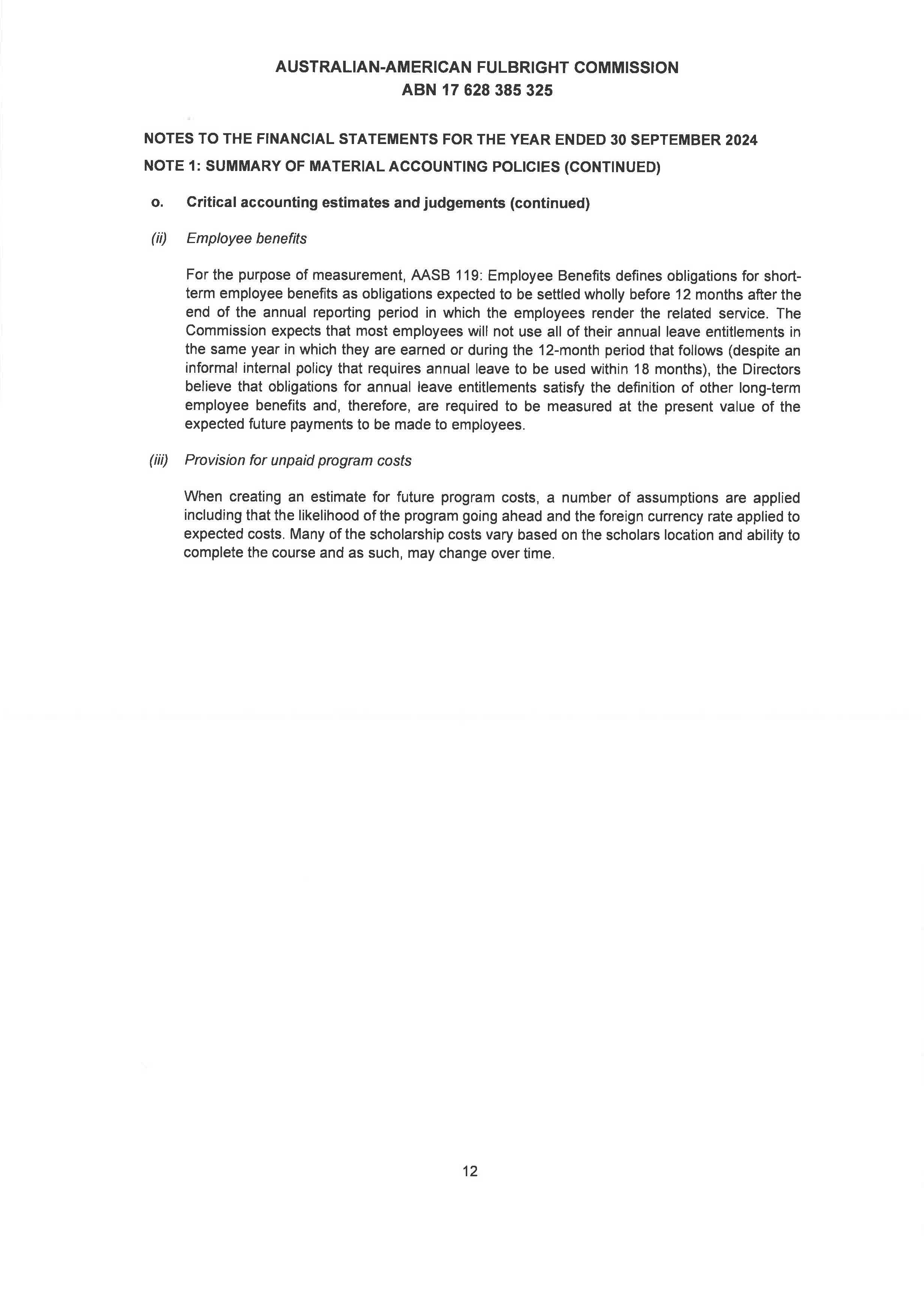
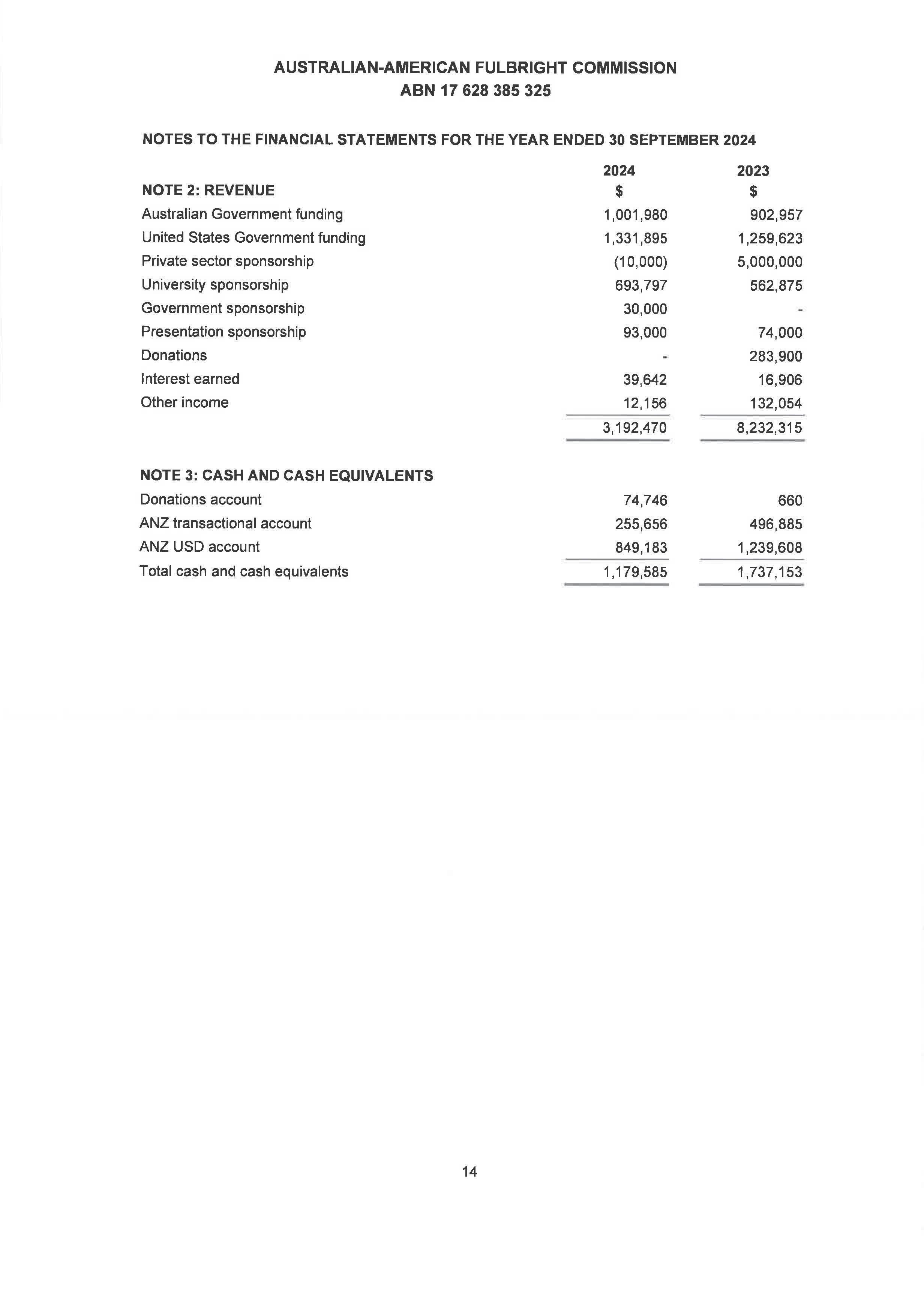
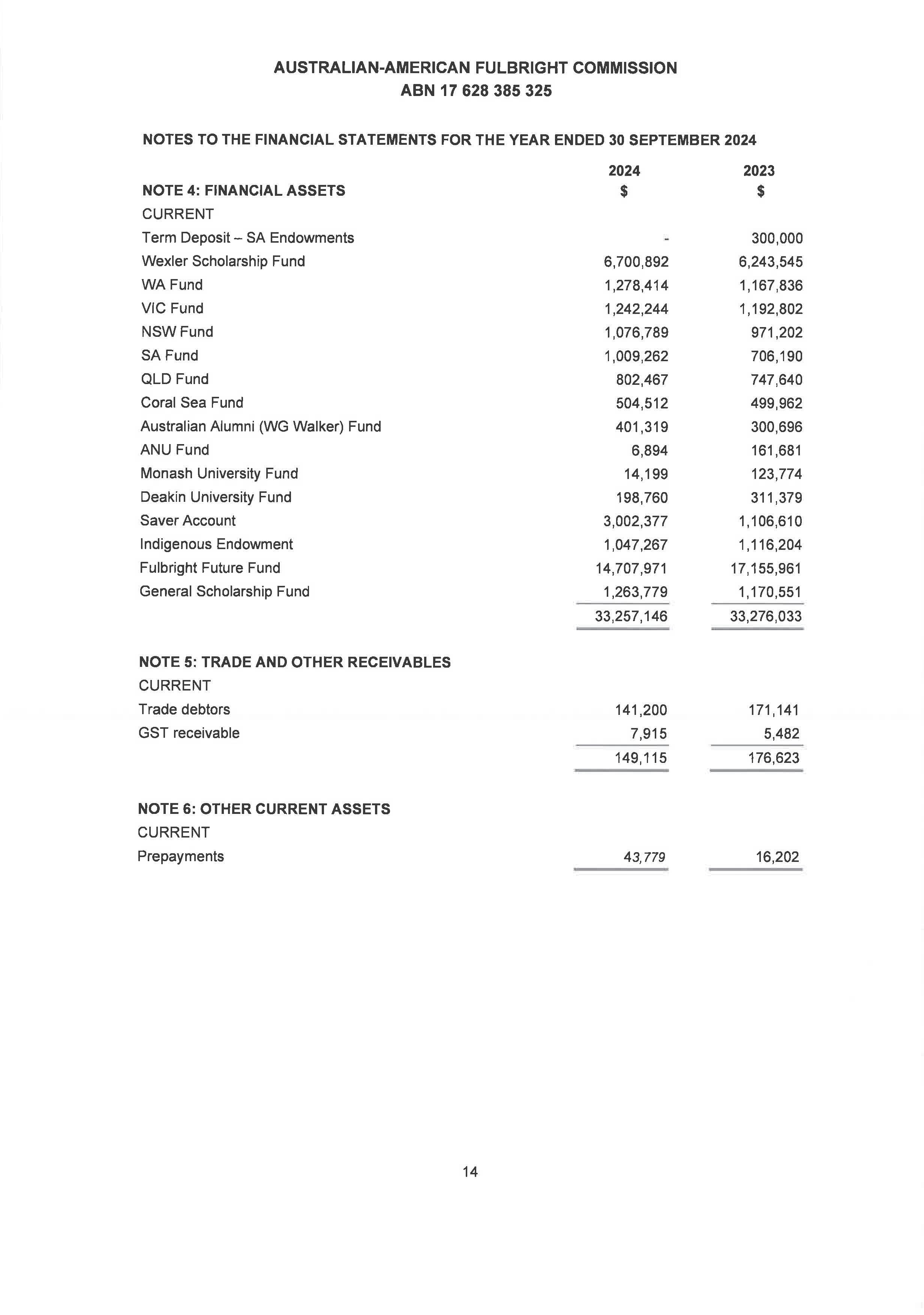
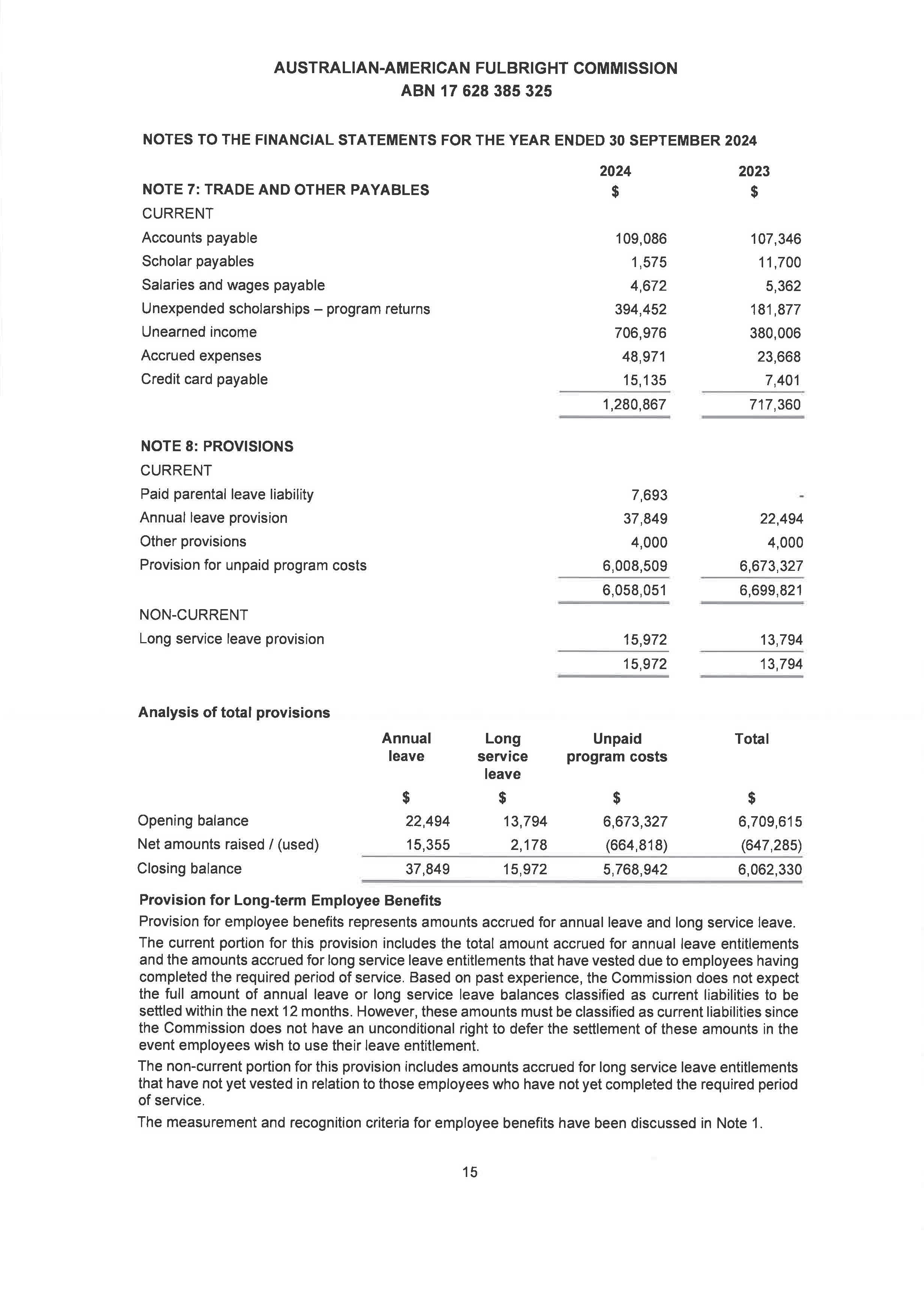
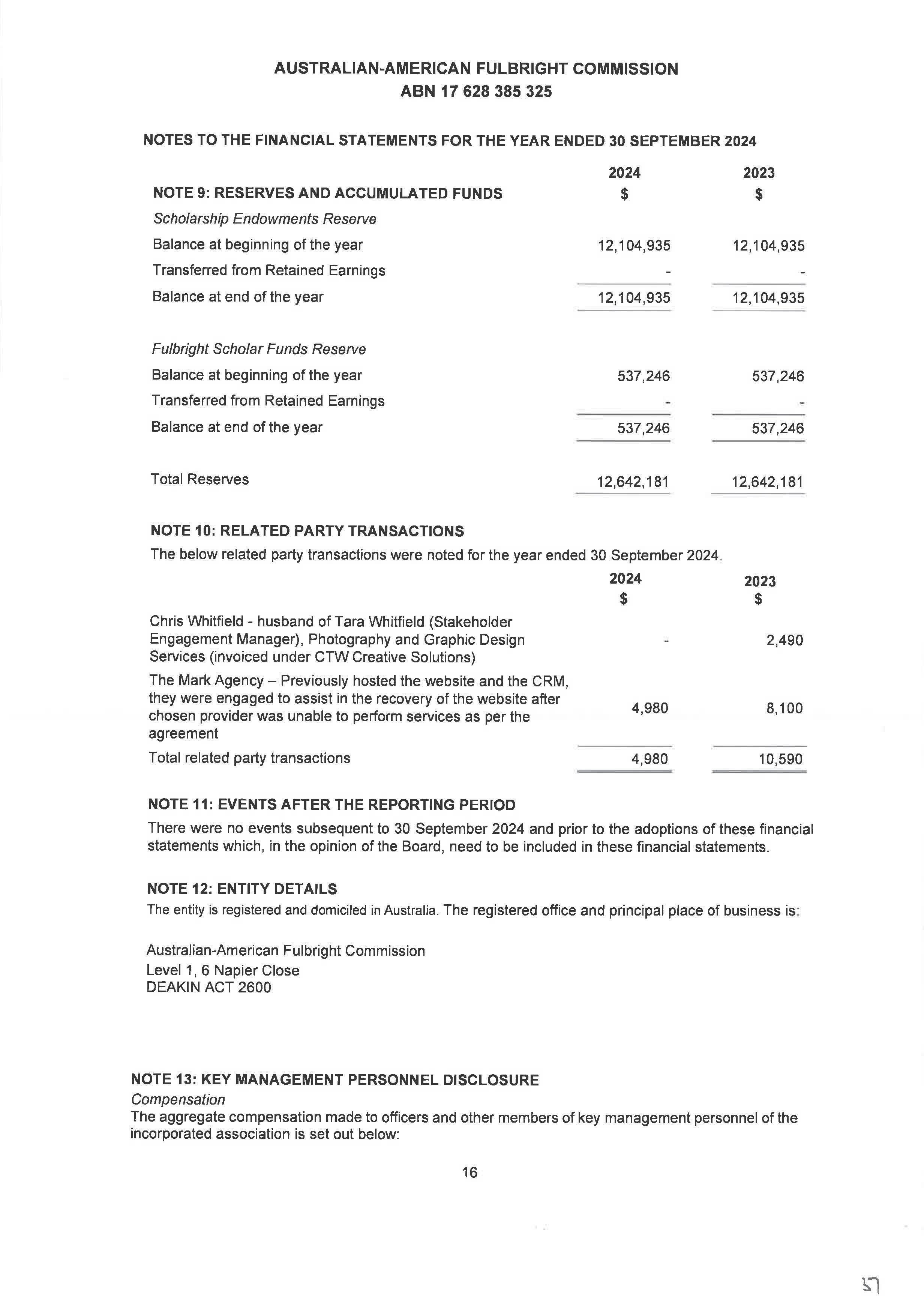
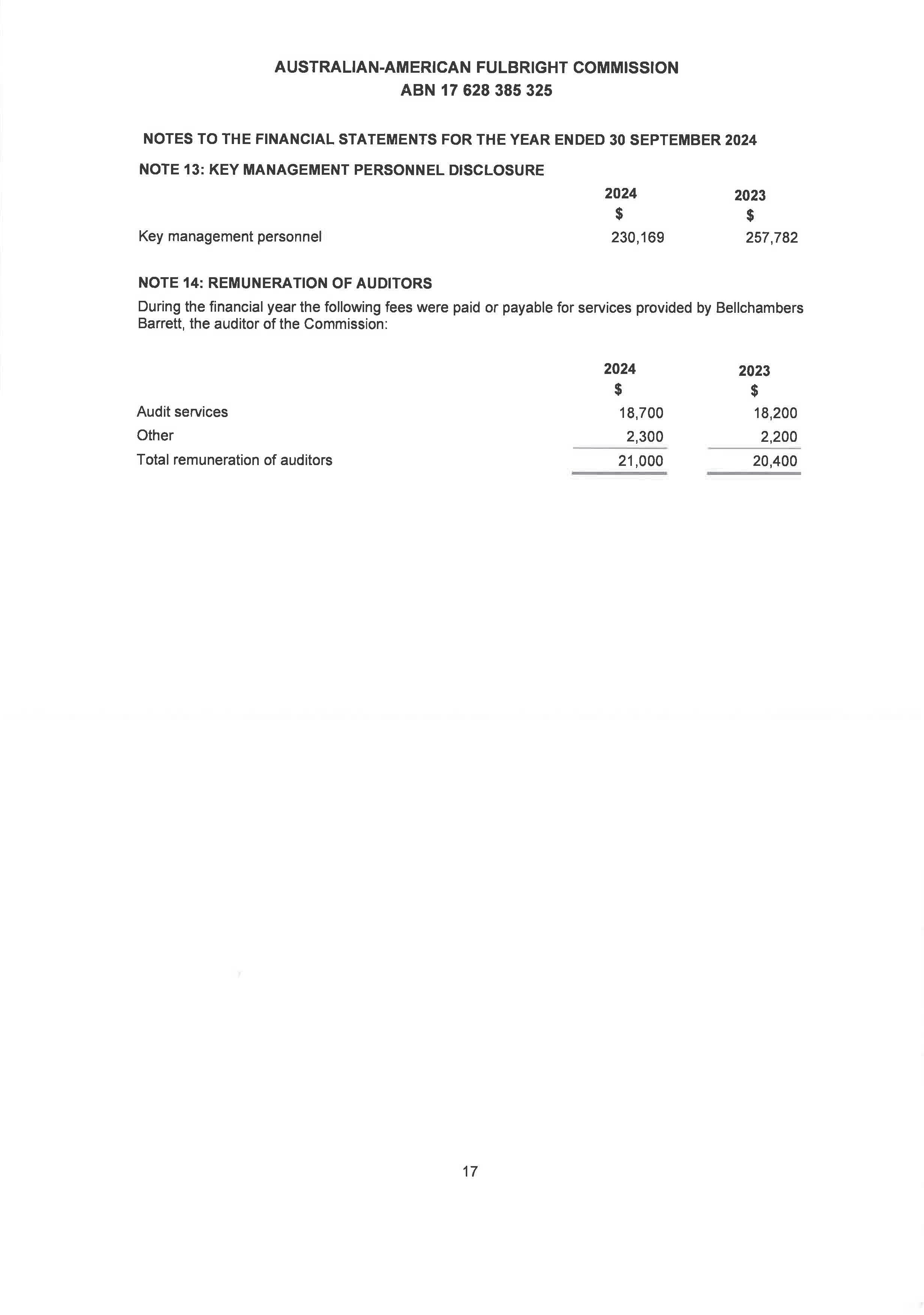
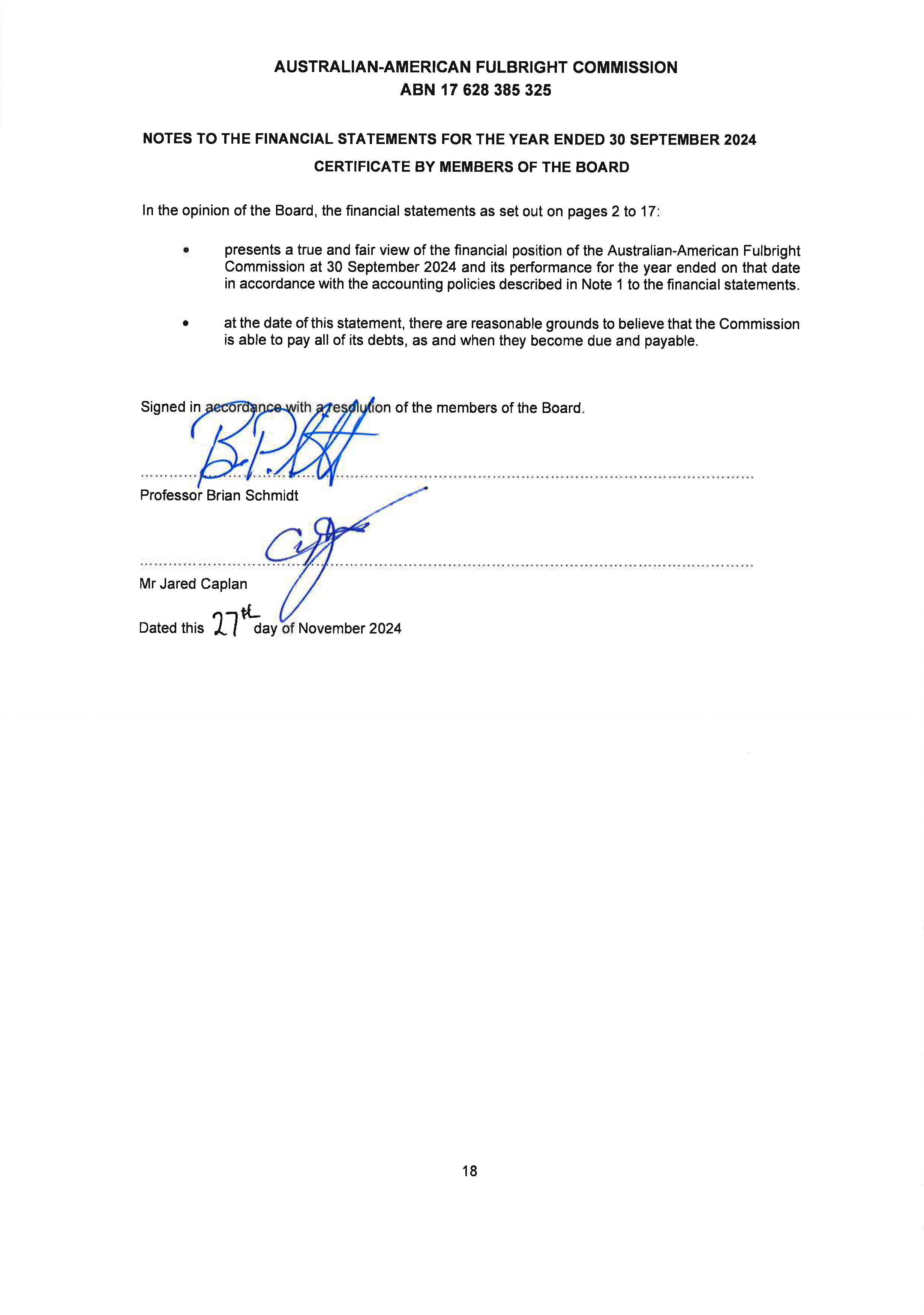
“I have thought of everything I can think of, and the one thing that gives me some hope is the ethos that underlies the educational exchange program. That ethos, in sum, is the belief that international relations can be improved, and the danger of war significantly reduced, by producing generations of leaders, especially in the big countries, who through the experience of educational exchange, will have acquired some feeling and understanding of other peoples’ cultures--why they operate as they do, why they think as they do, why they react as they do--and of the differences among these cultures. It is possible--not very probable, but possible--that people can find in themselves, through intercultural education, the ways and means of living together in peace. ....Man’s struggle to be rational about himself, about his relationship to his own society and to other peoples and nations involves a constant search for understanding among all peoples and all cultures--a search that can only be effective when learning is pursued on a worldwide basis.”
-- Senator
J. William
Fulbright, The Fulbright Program: A History